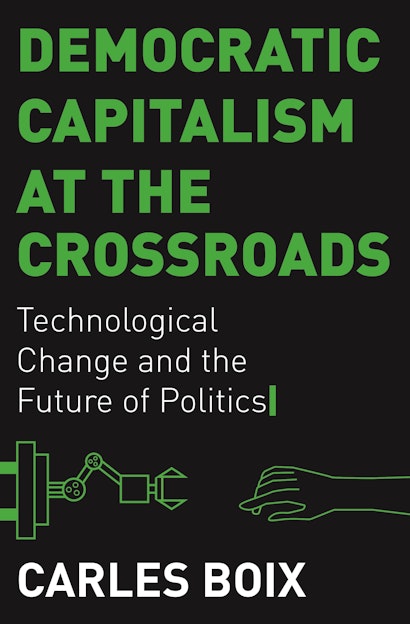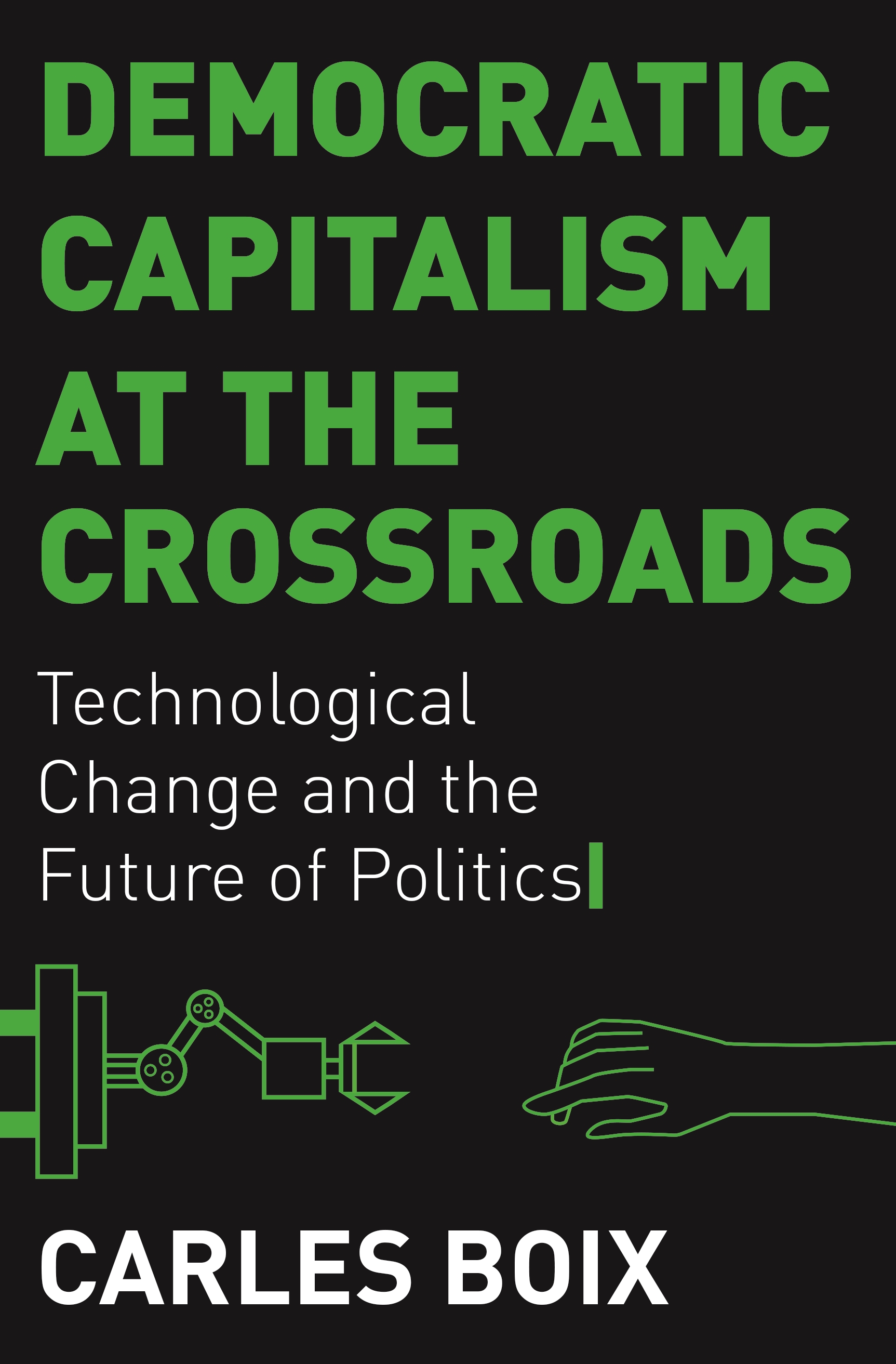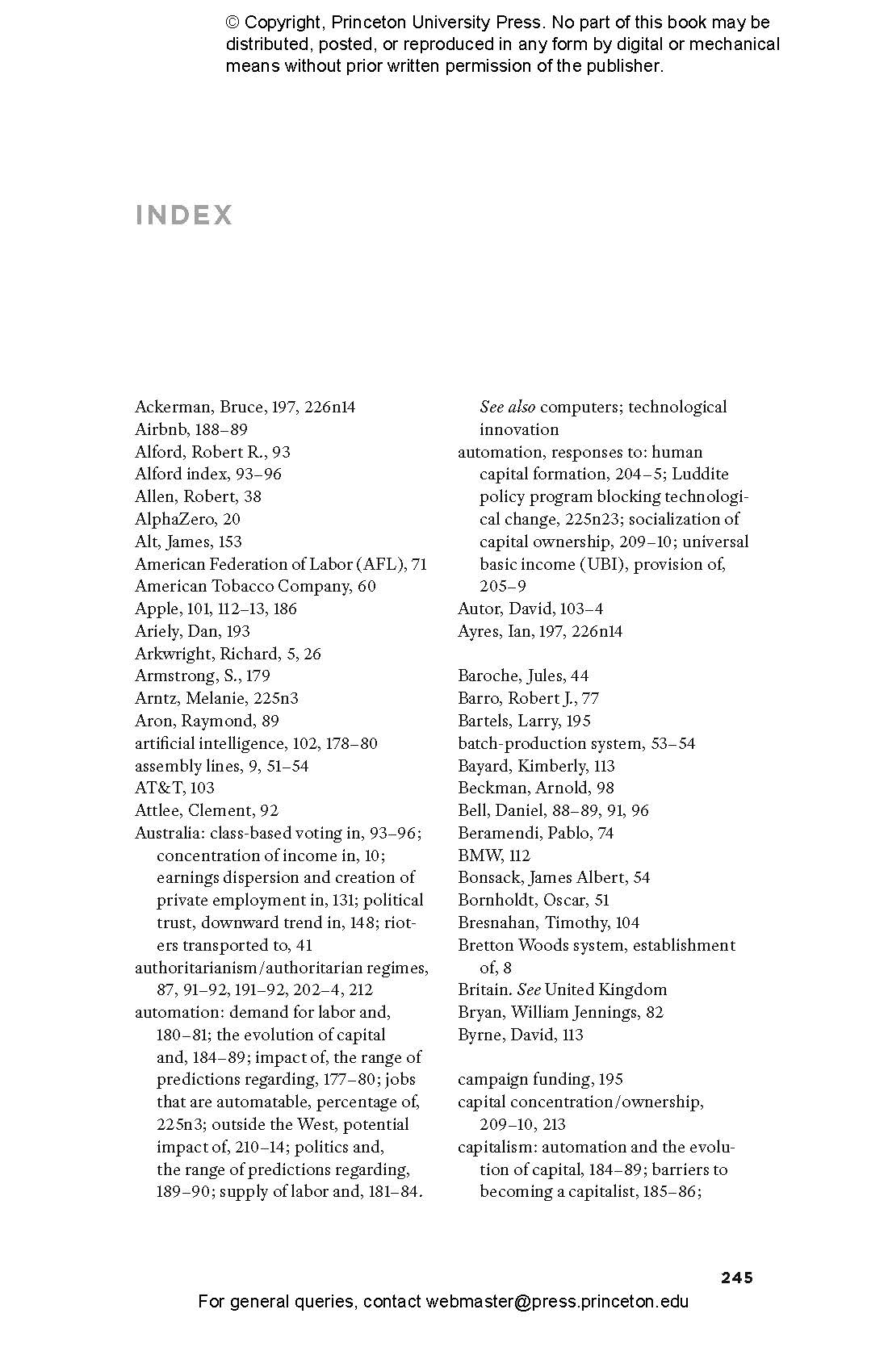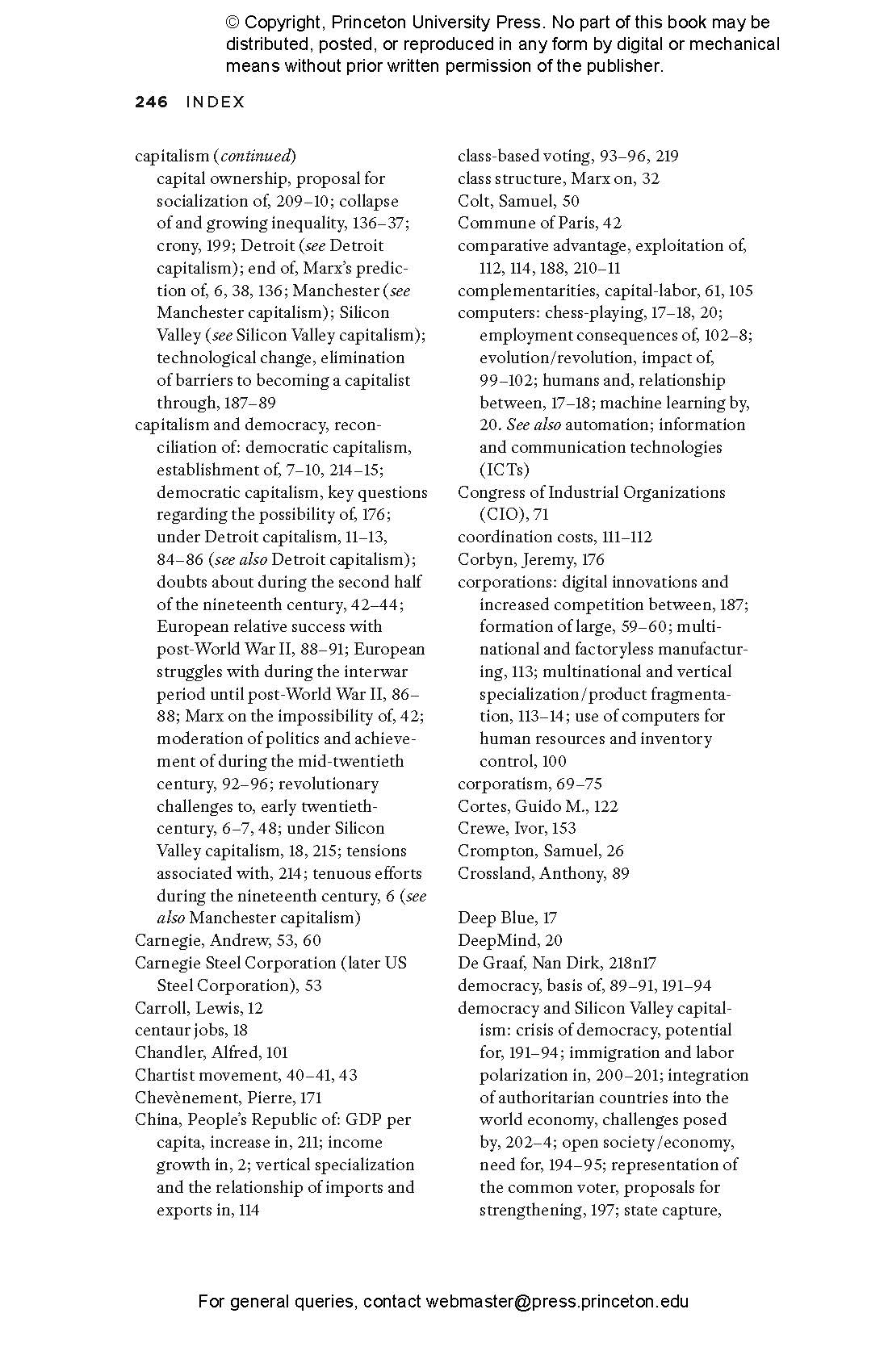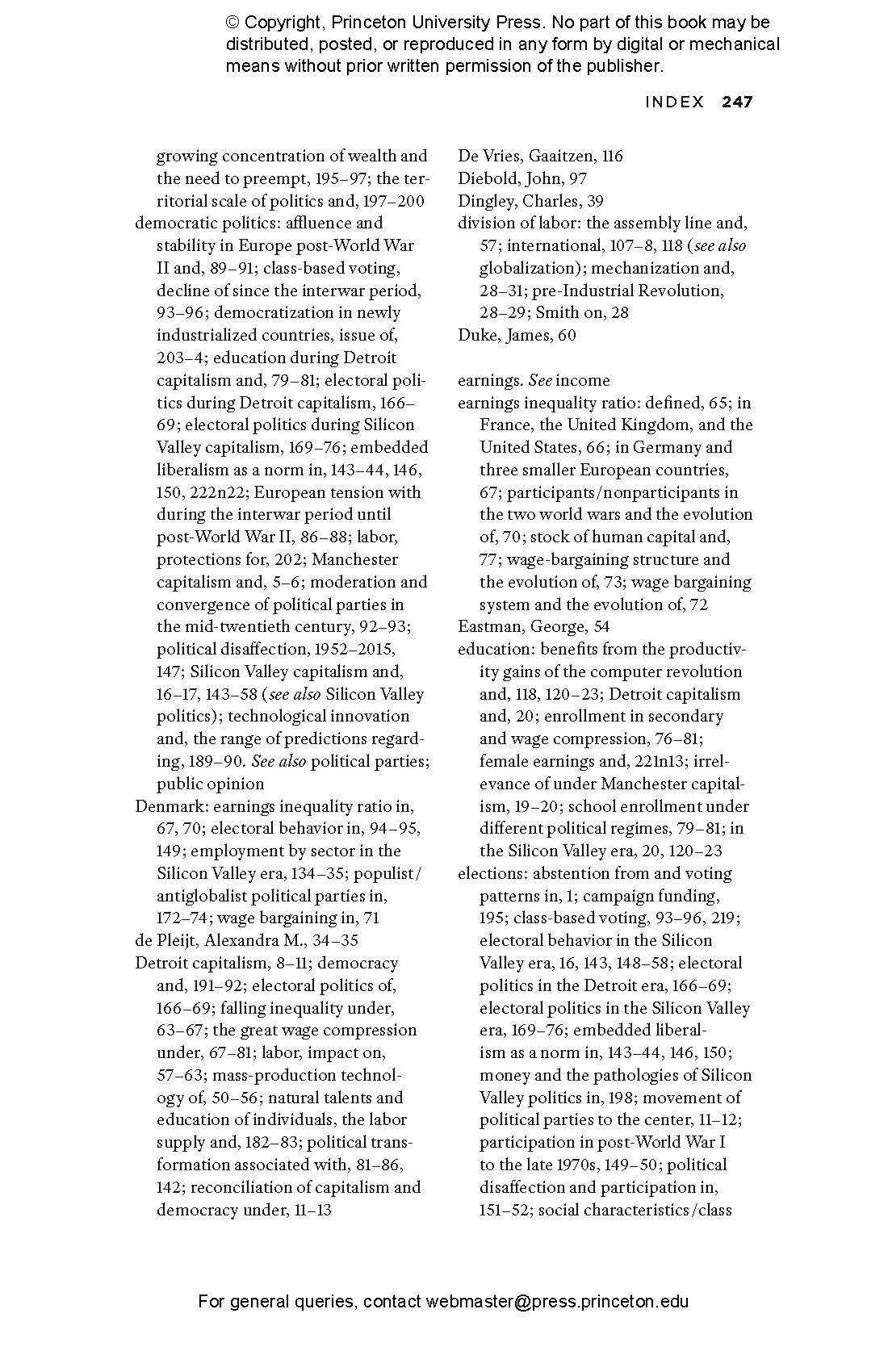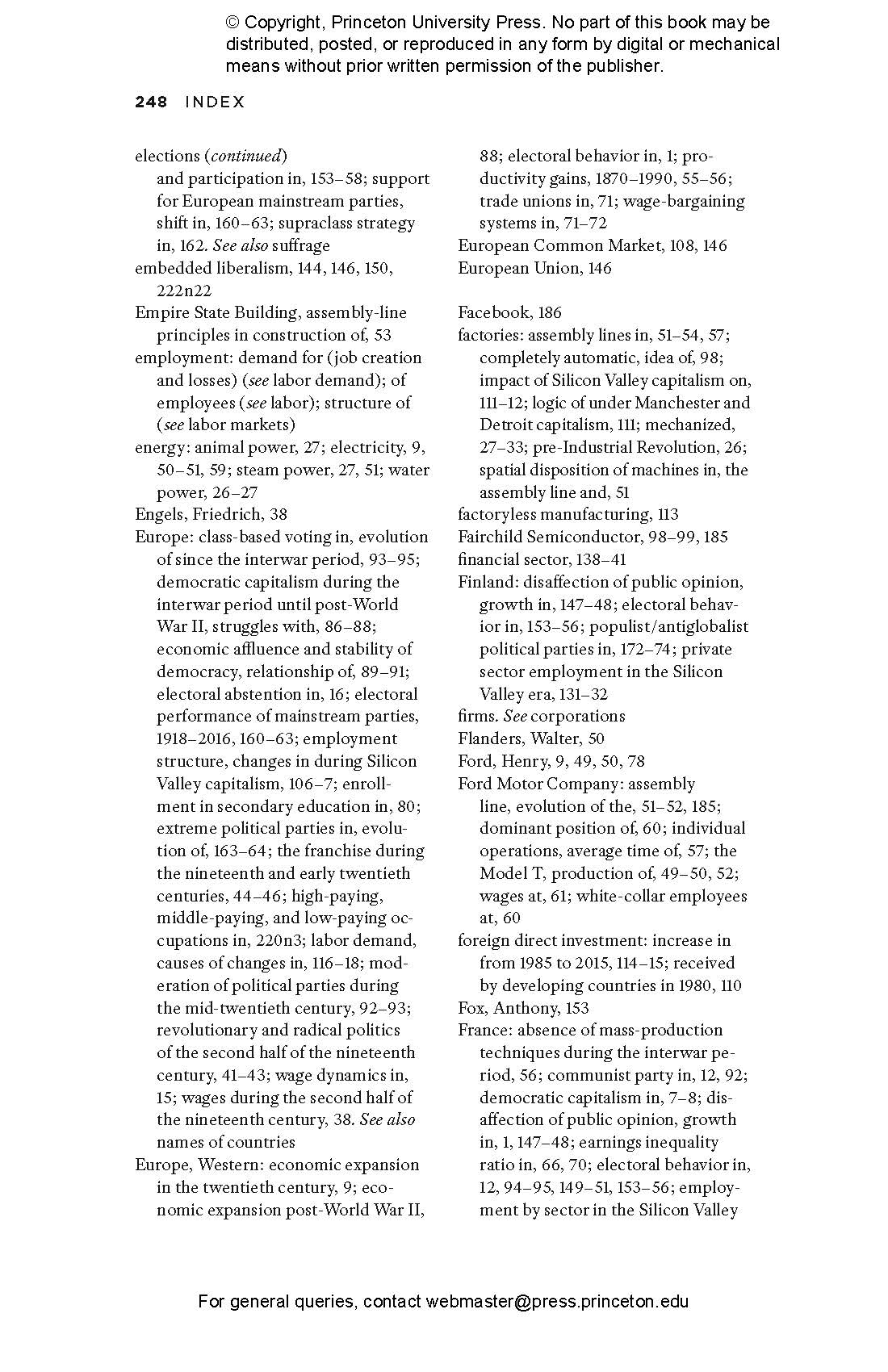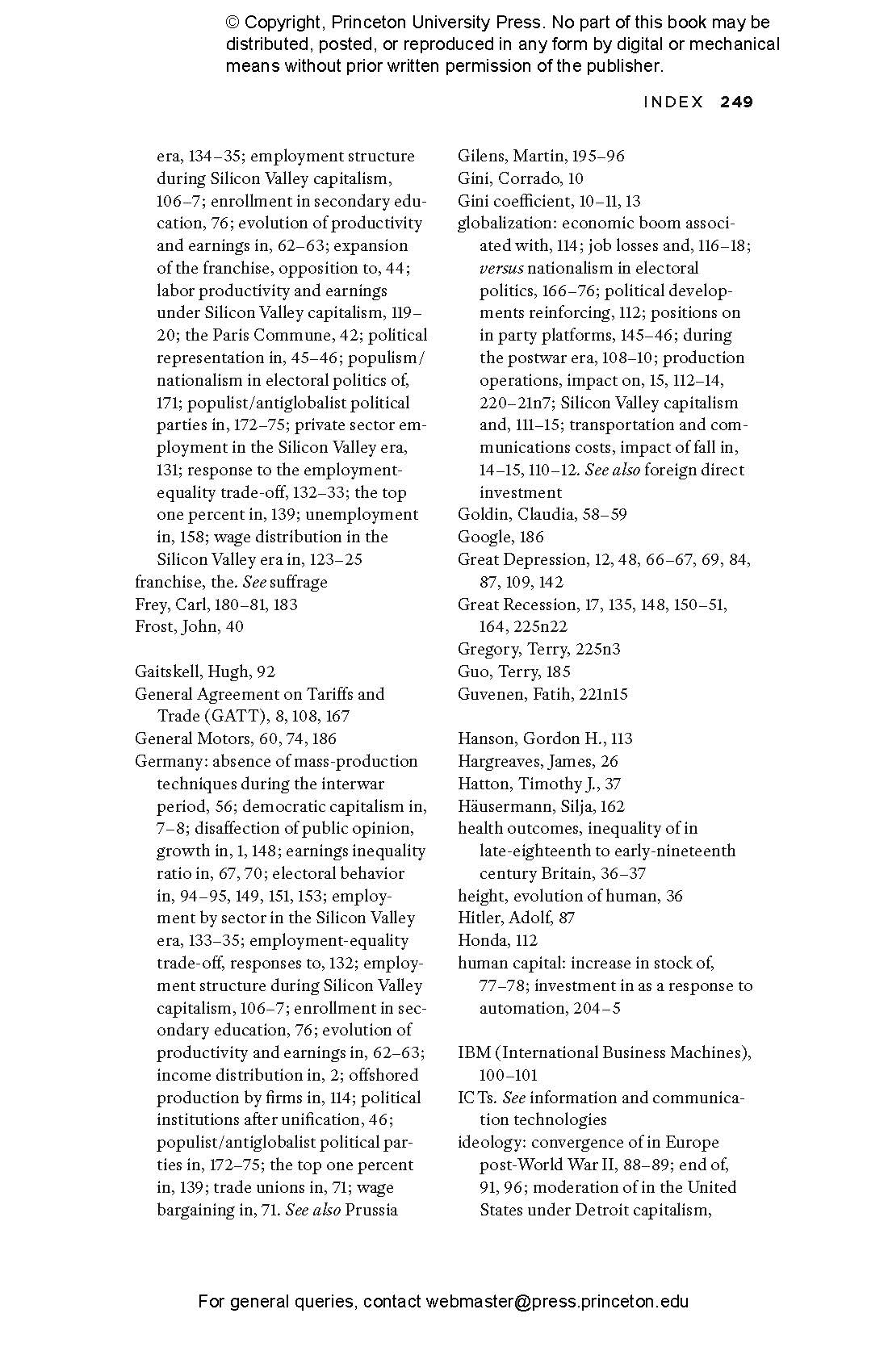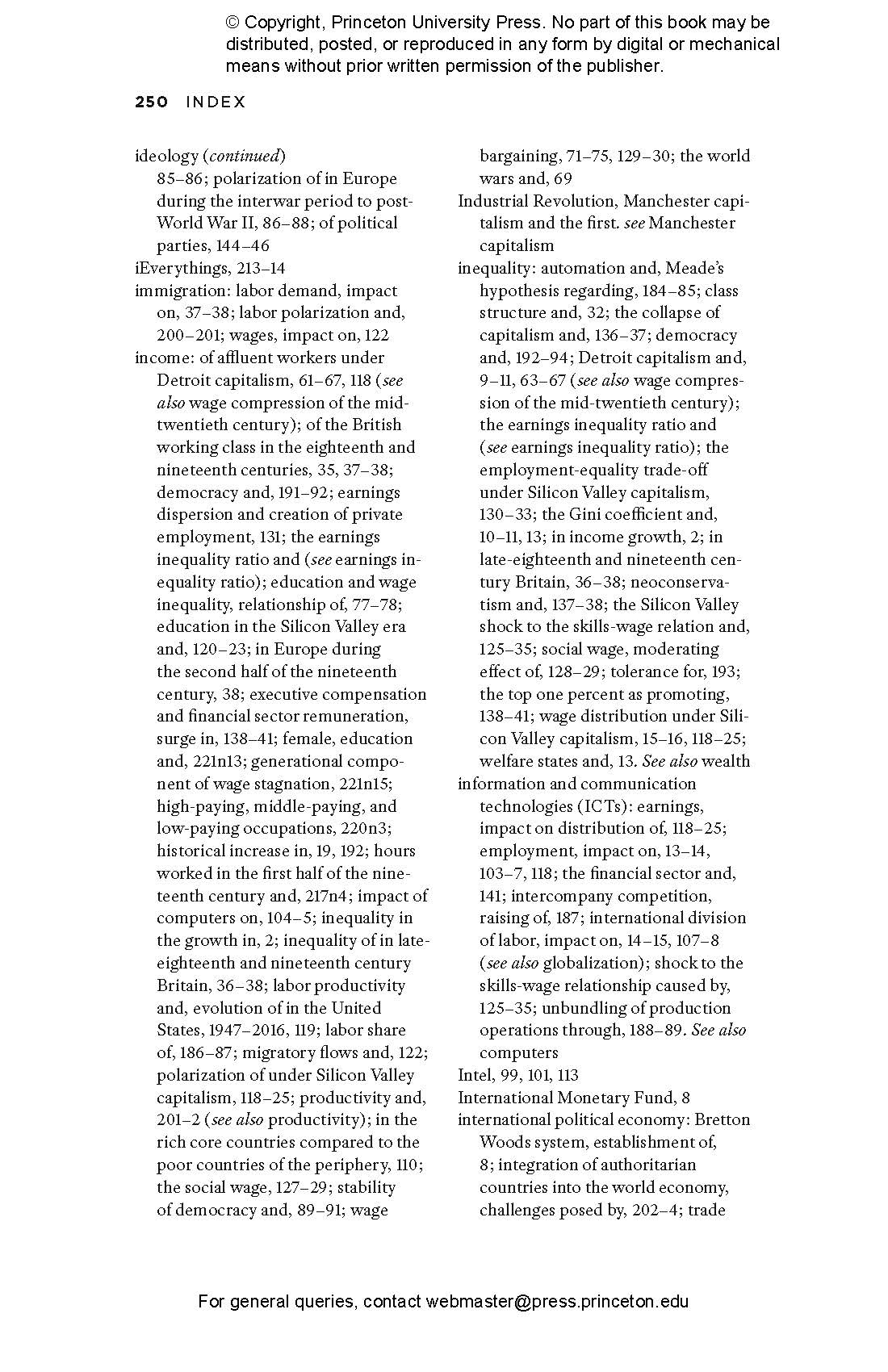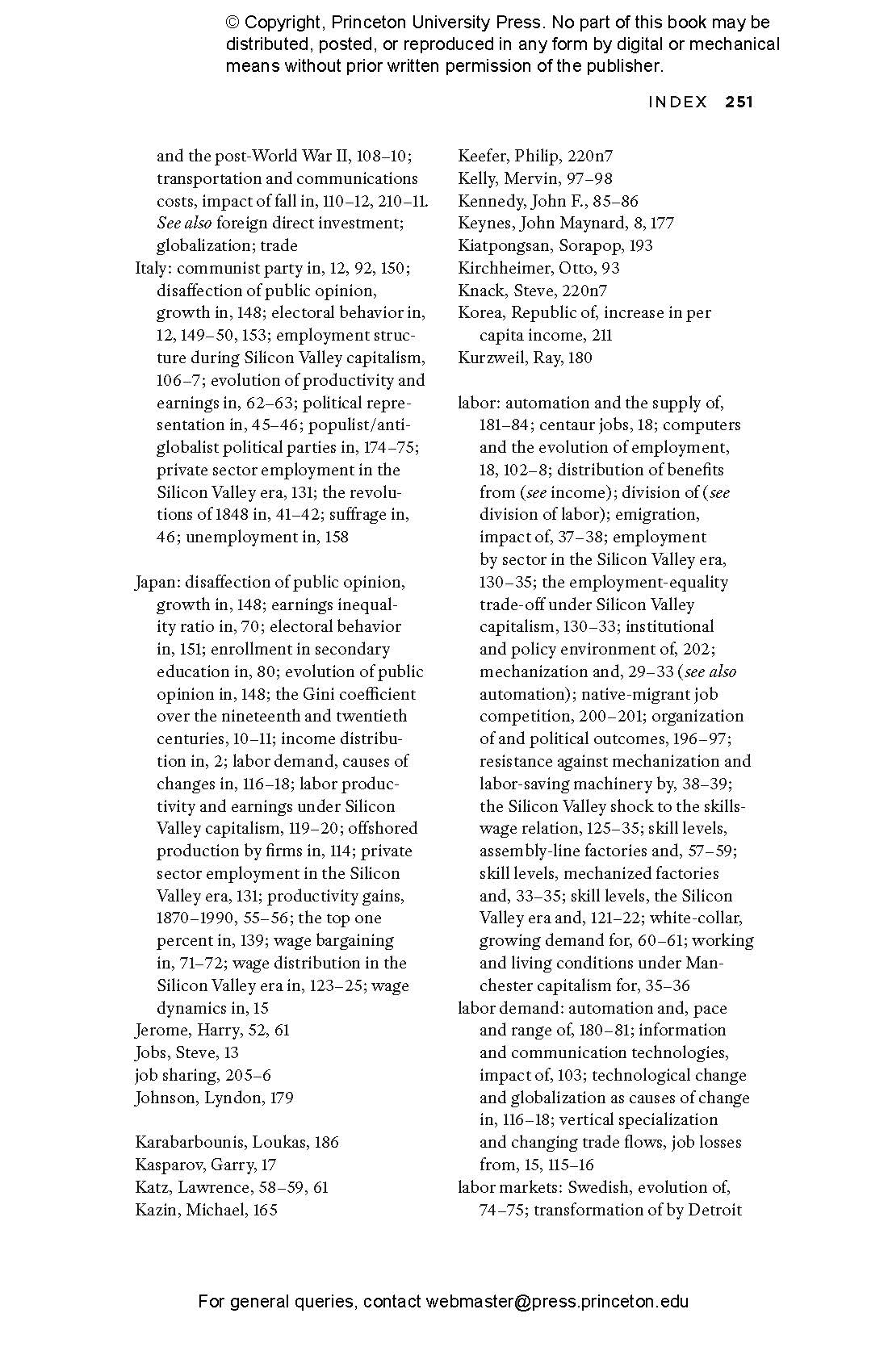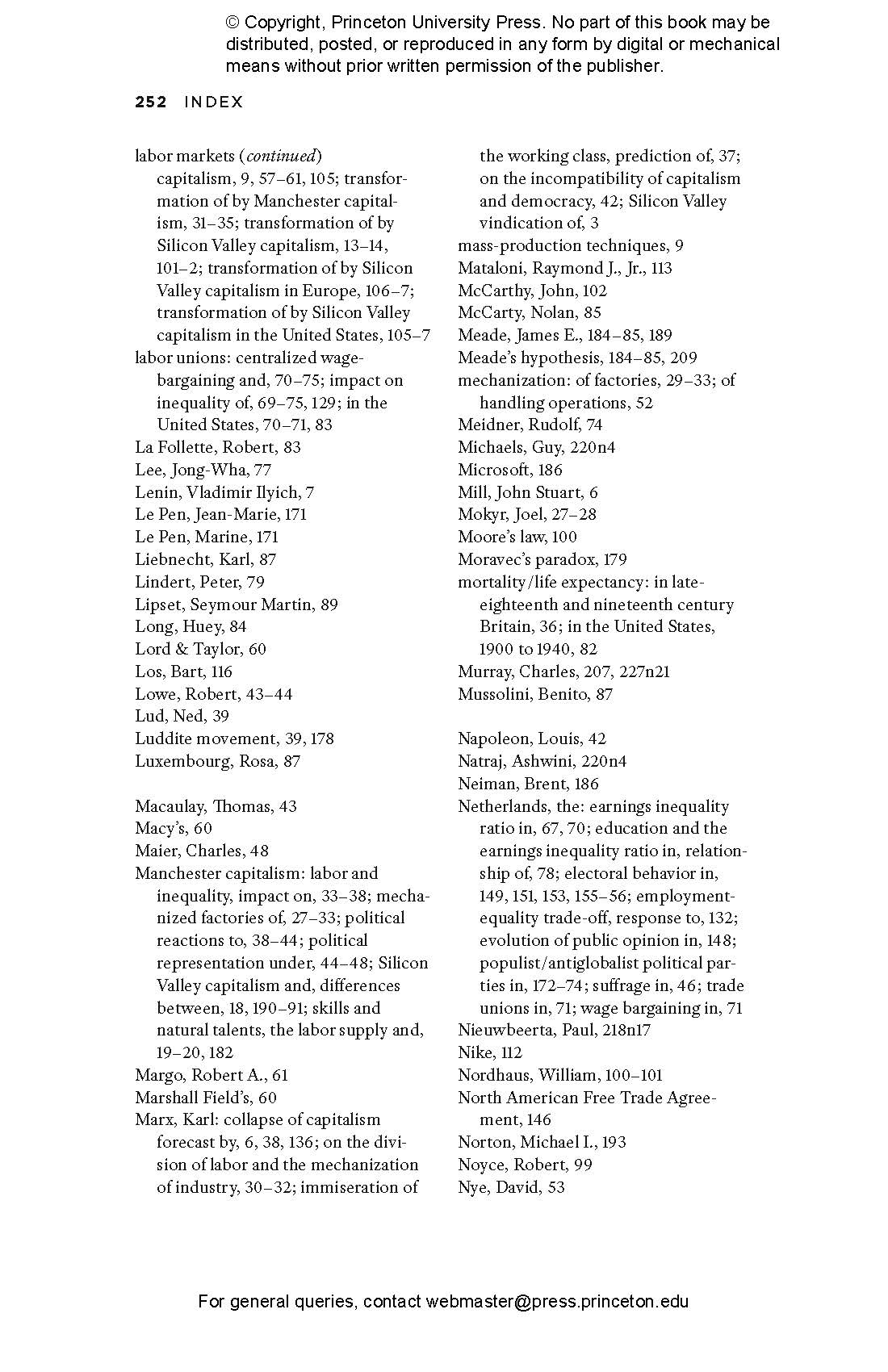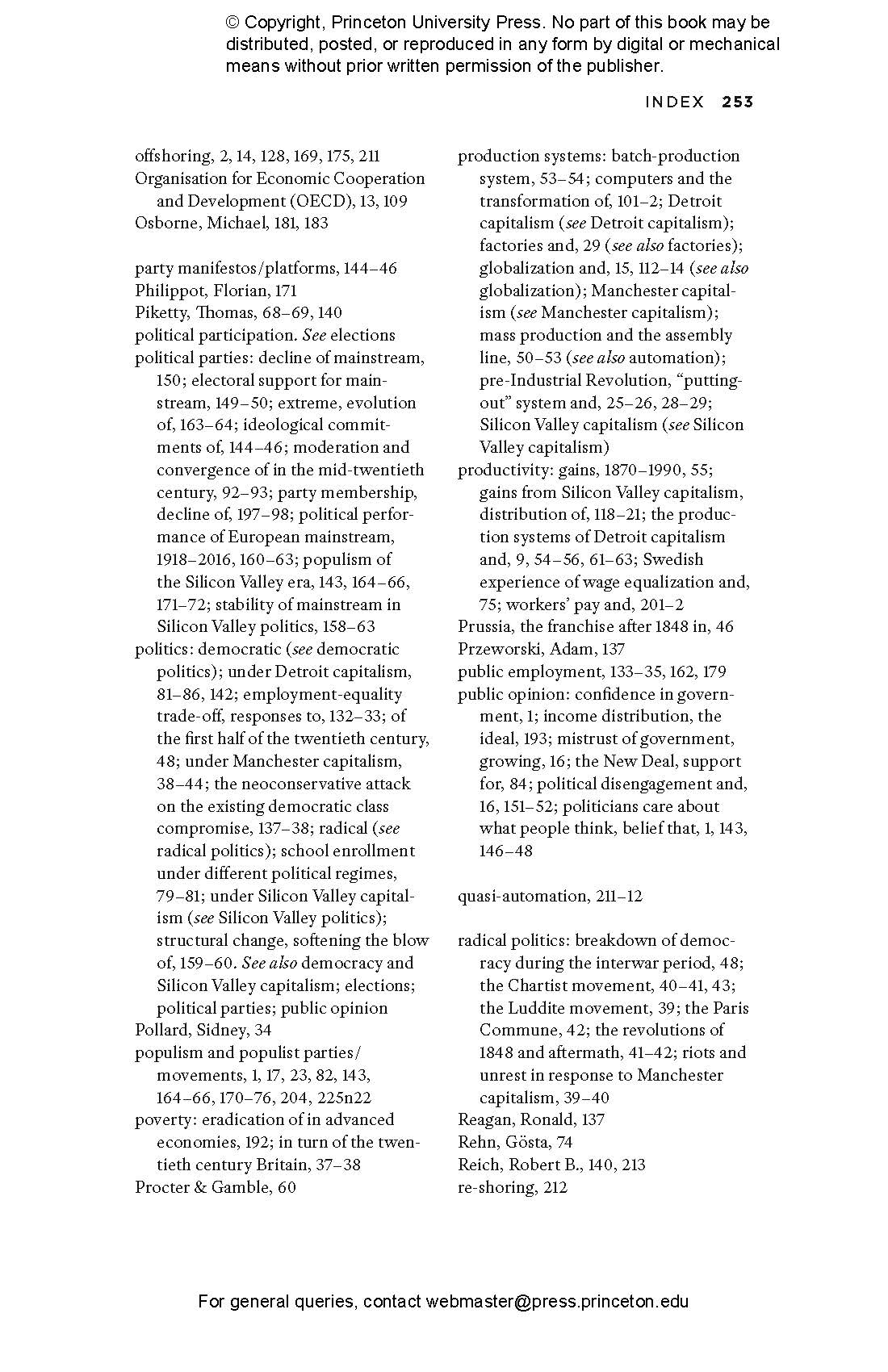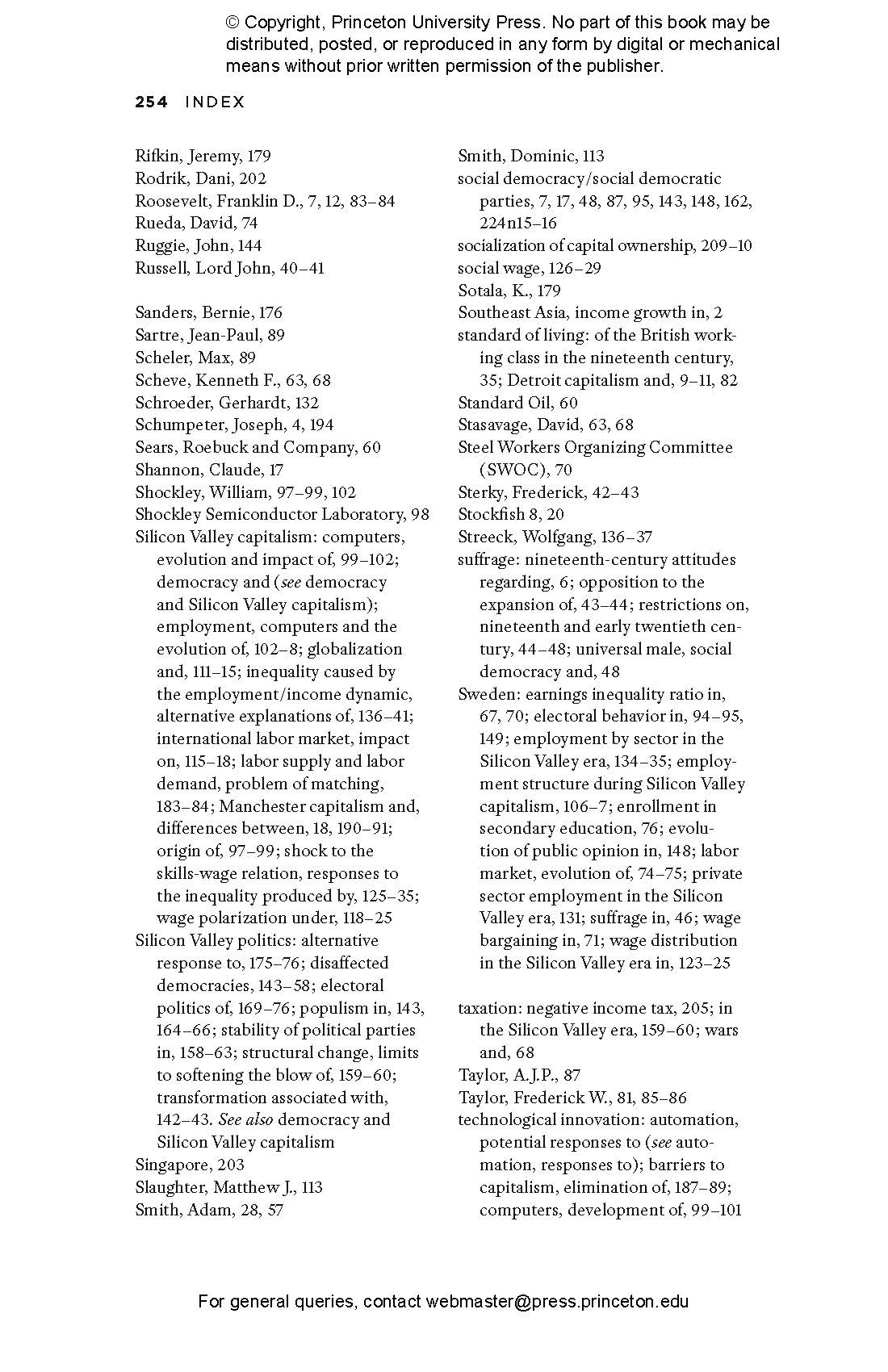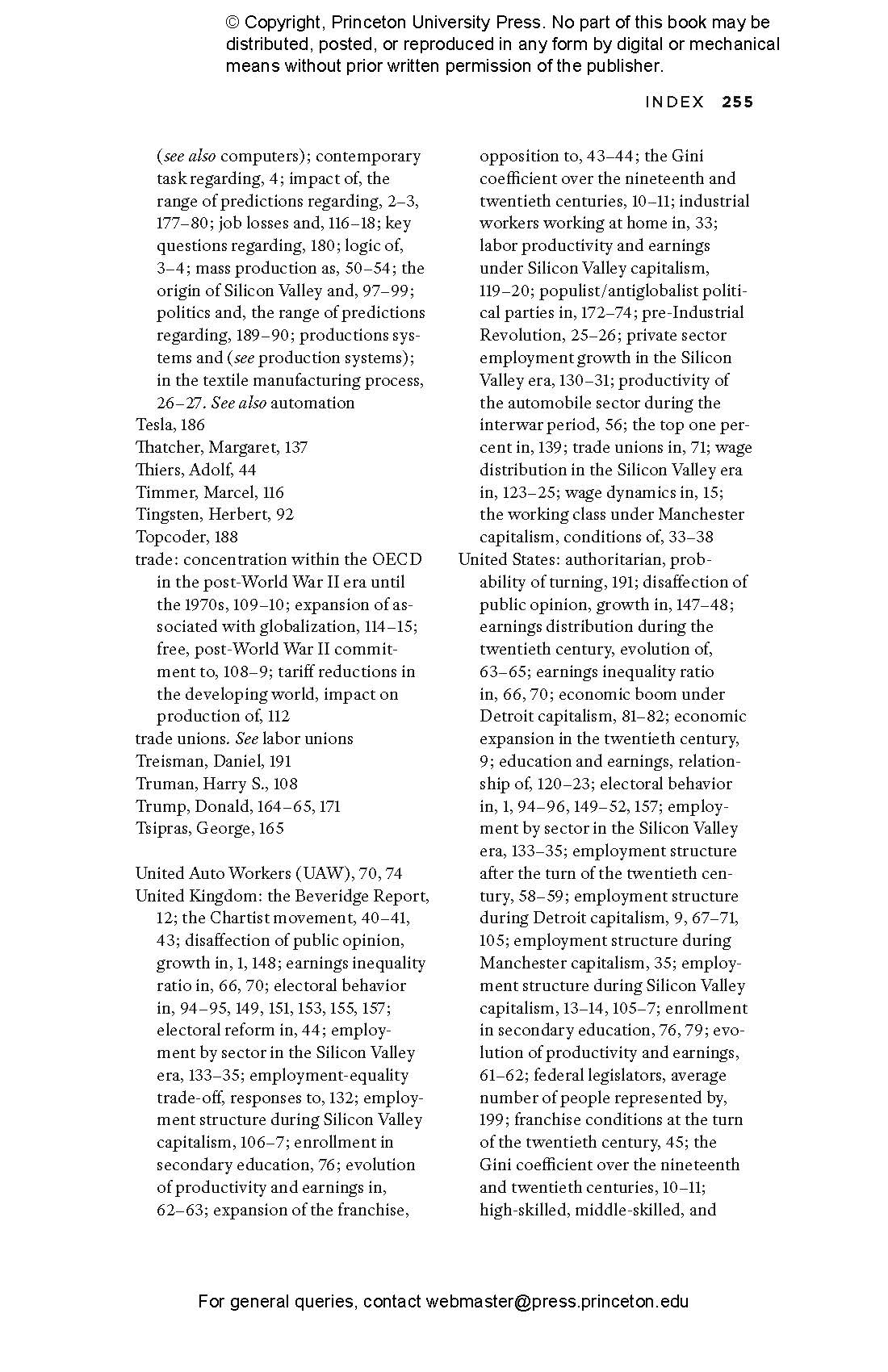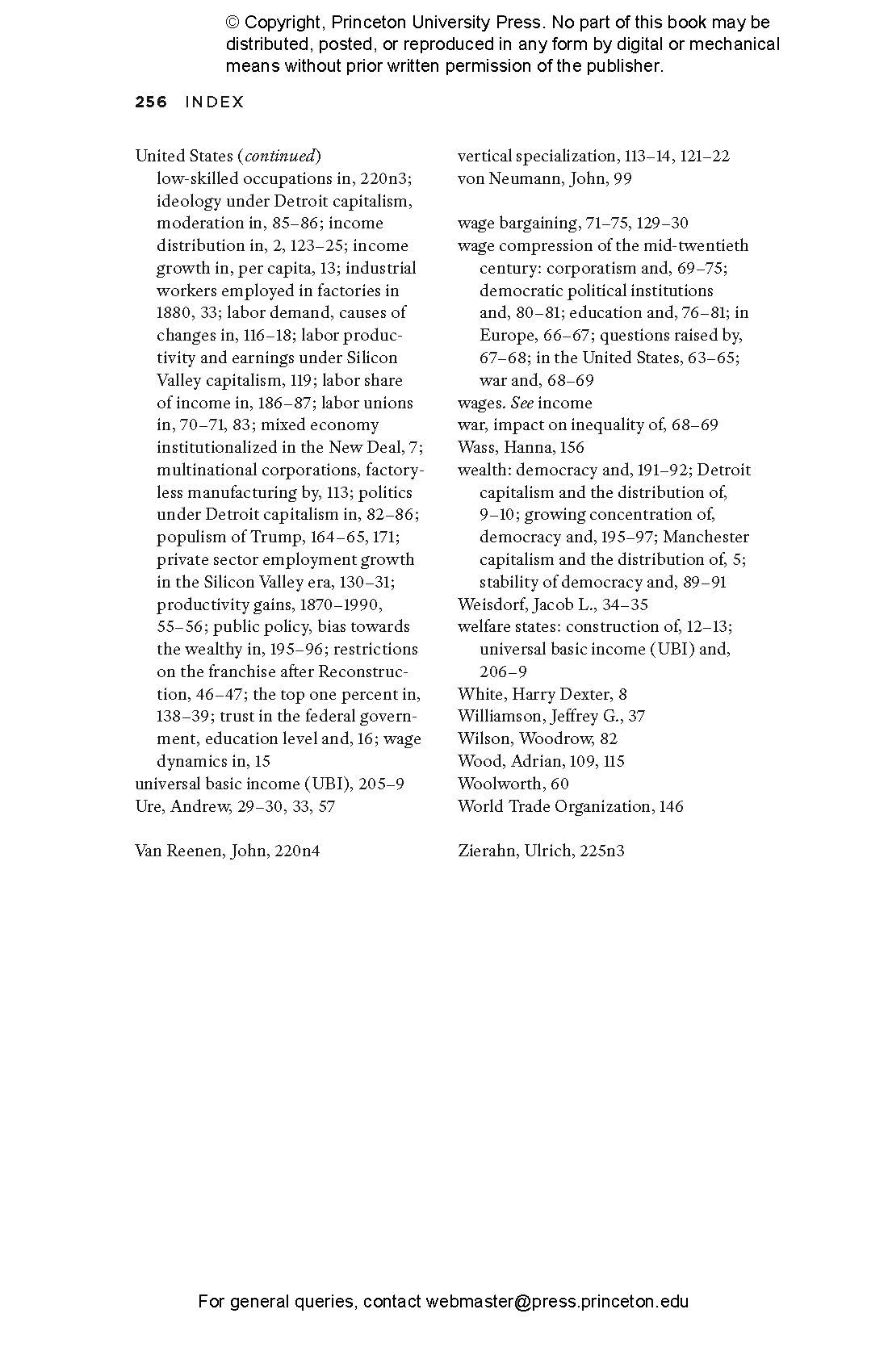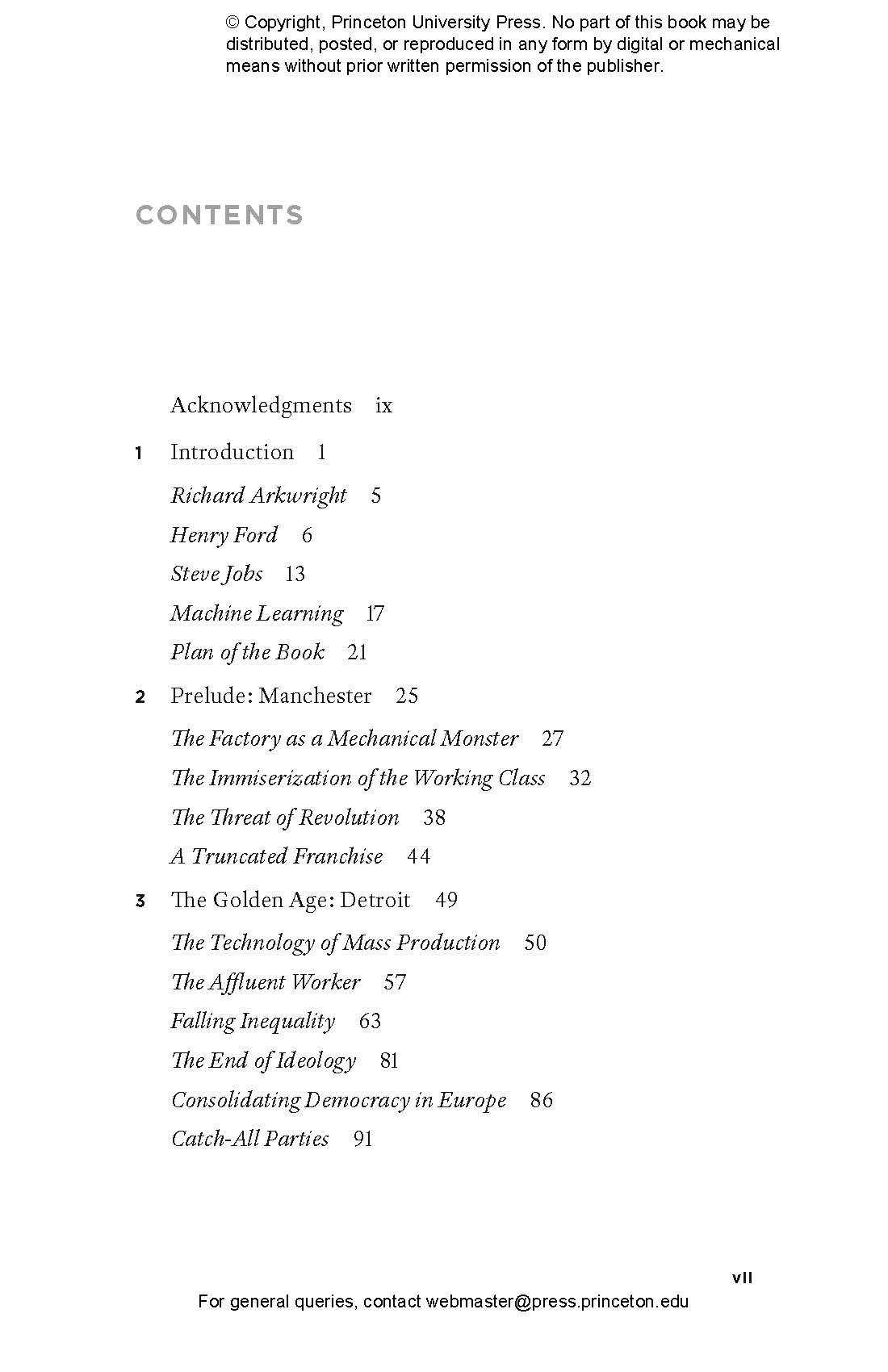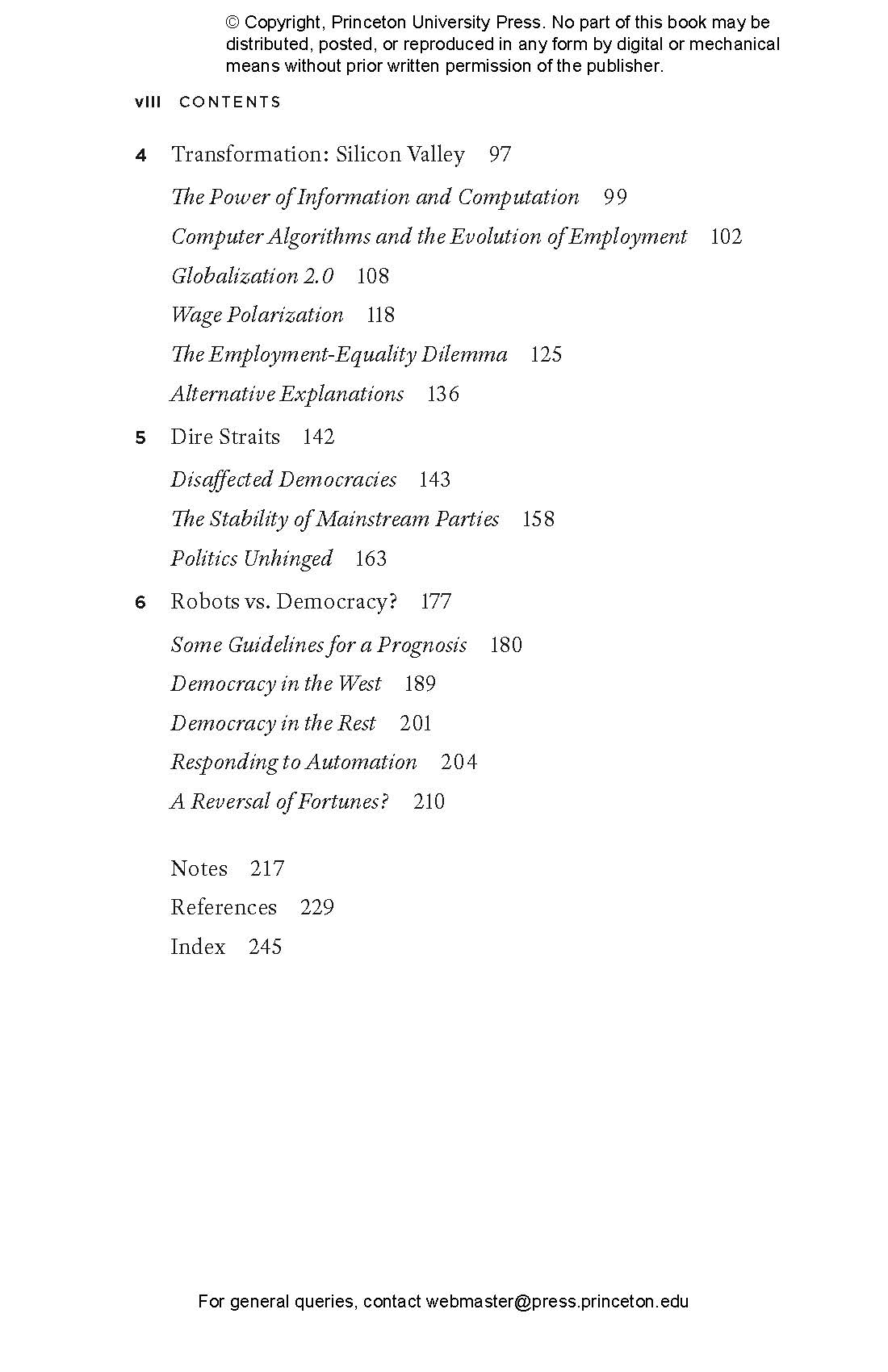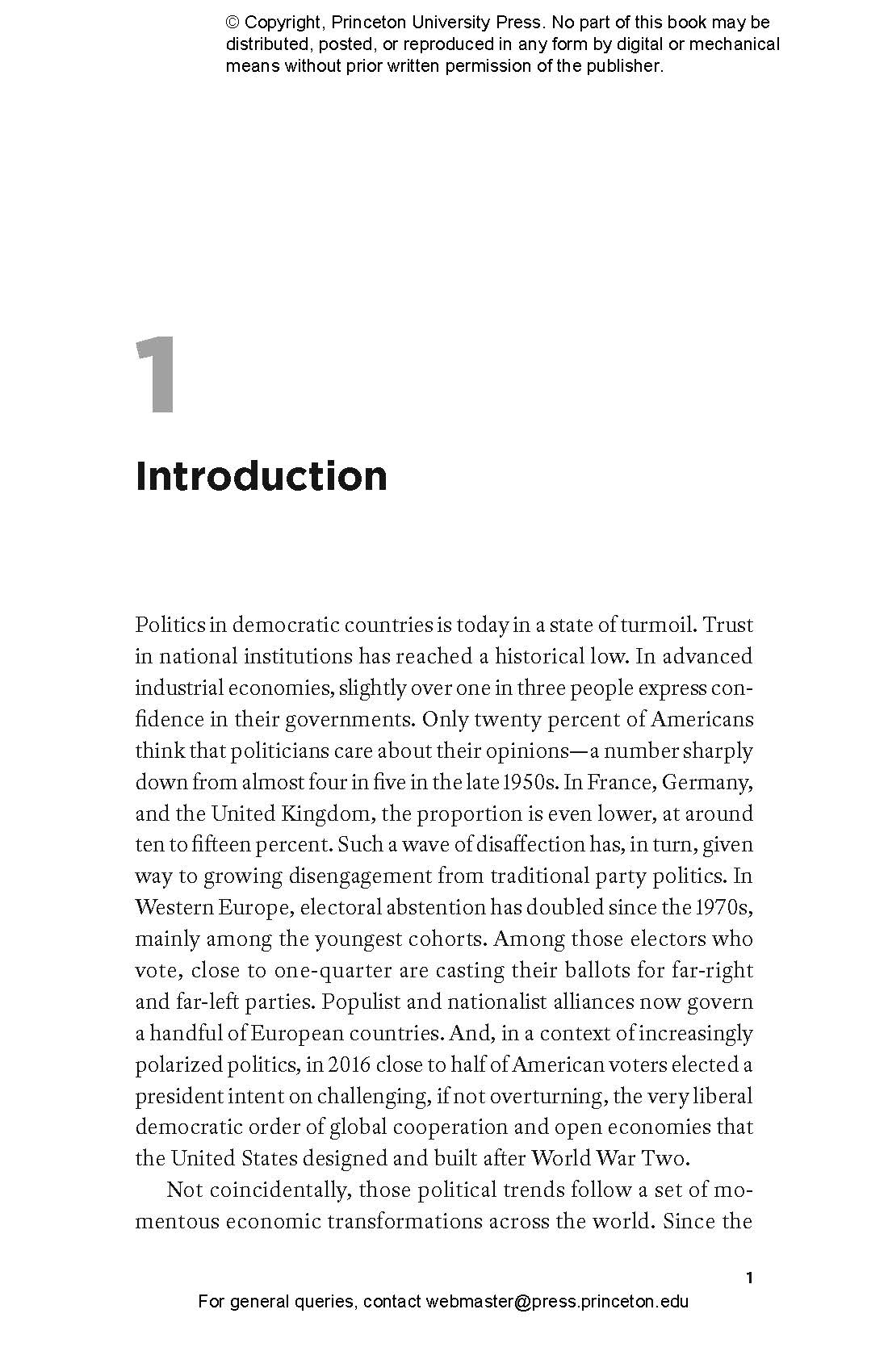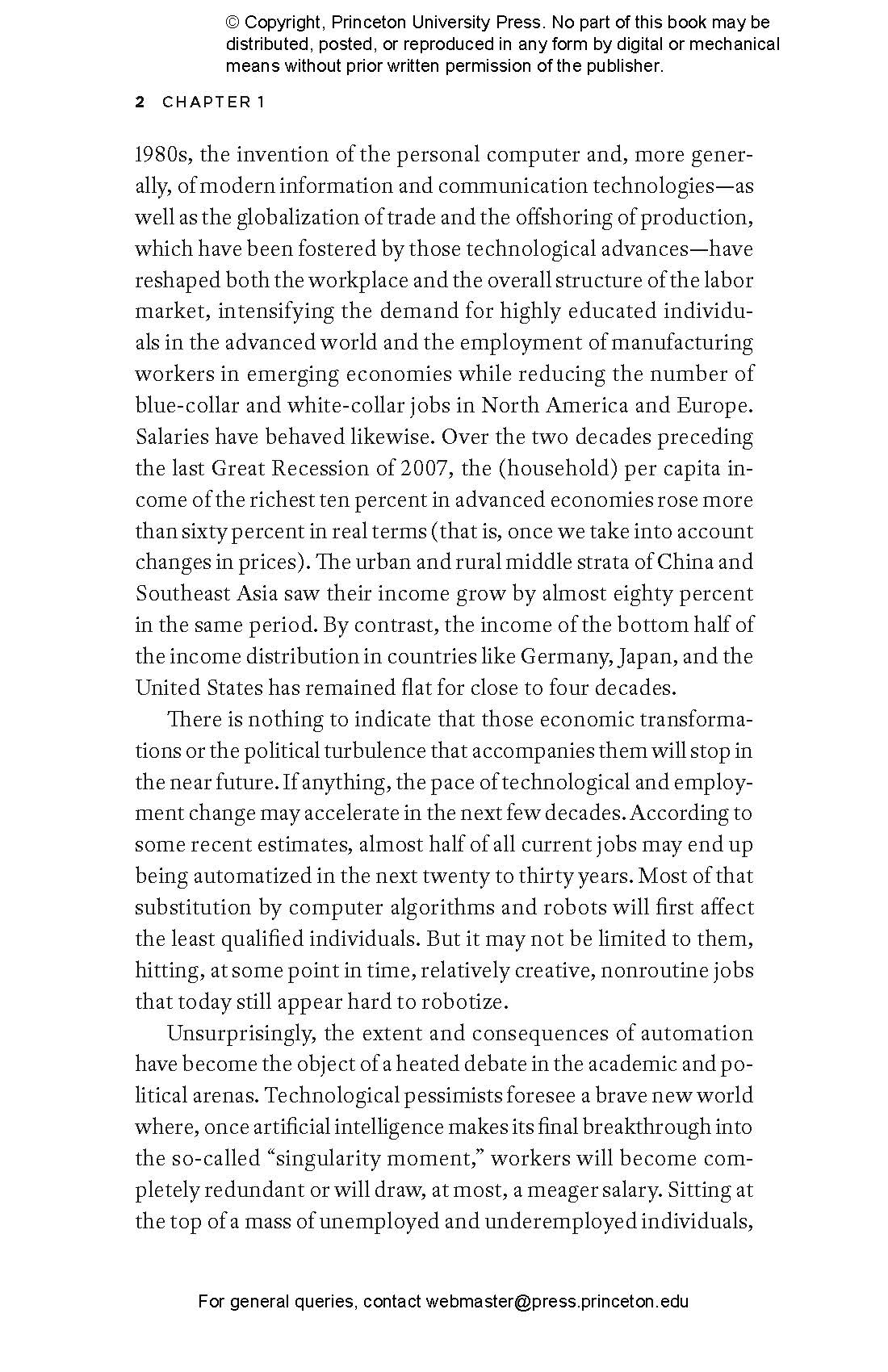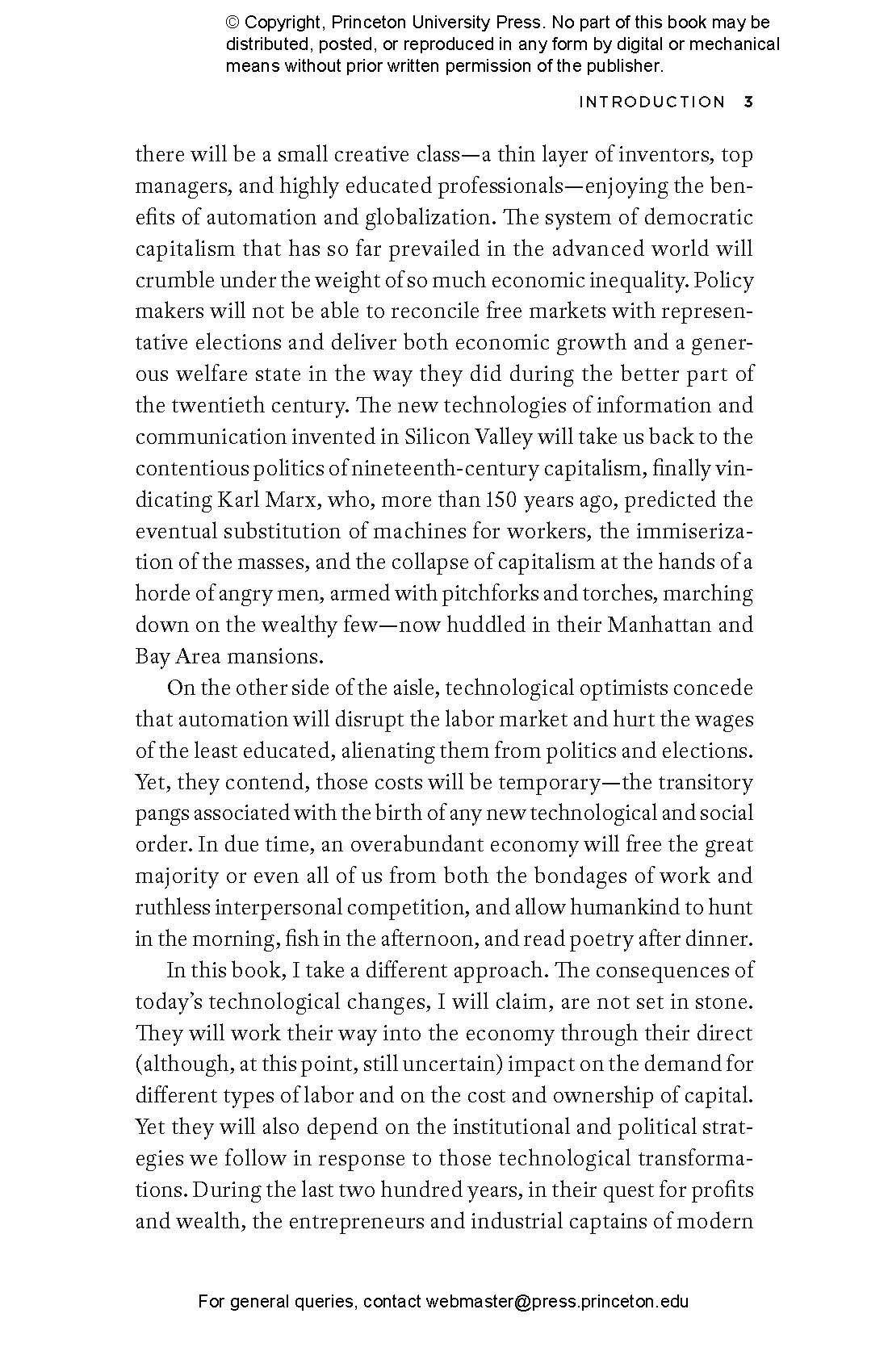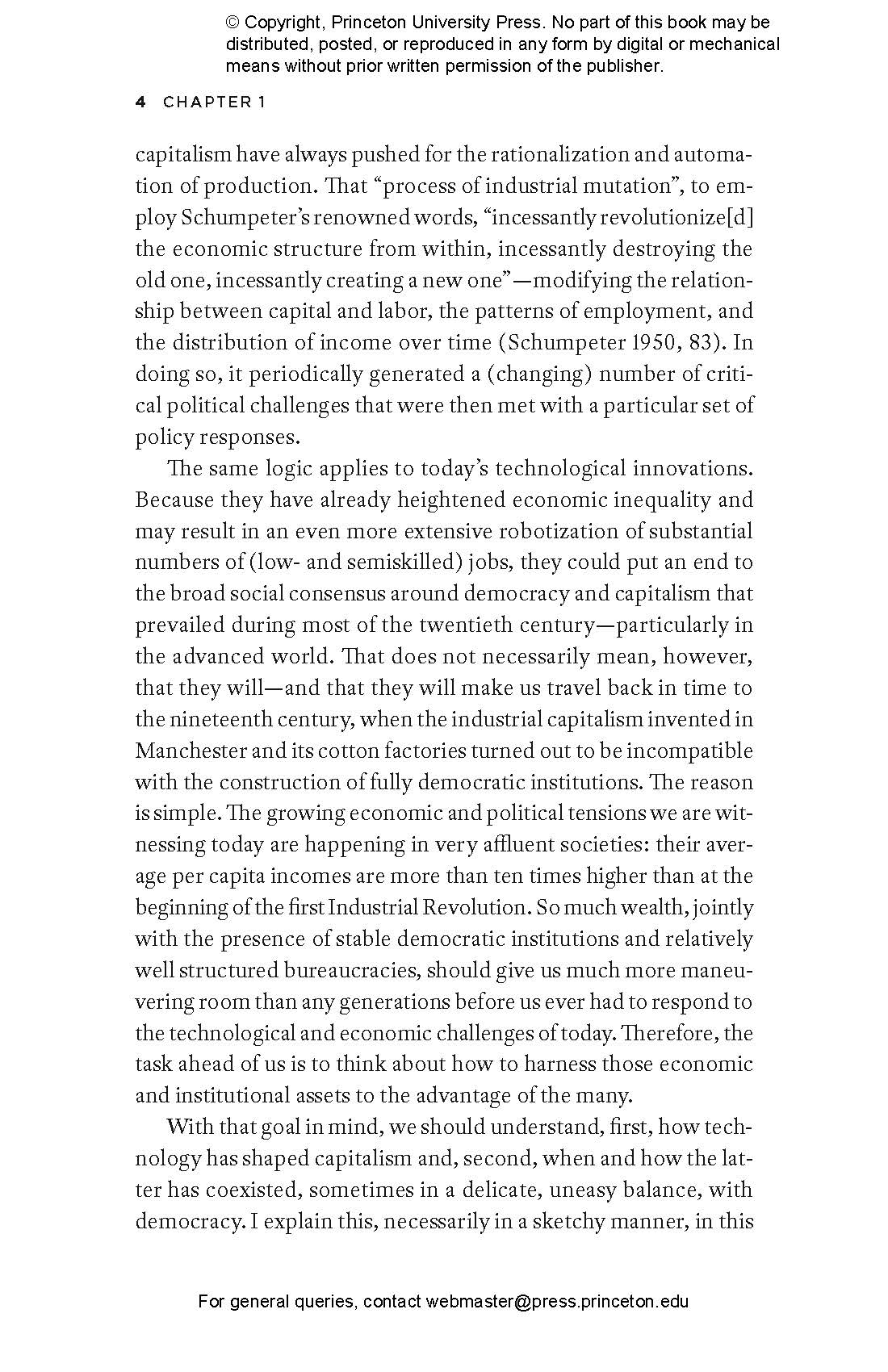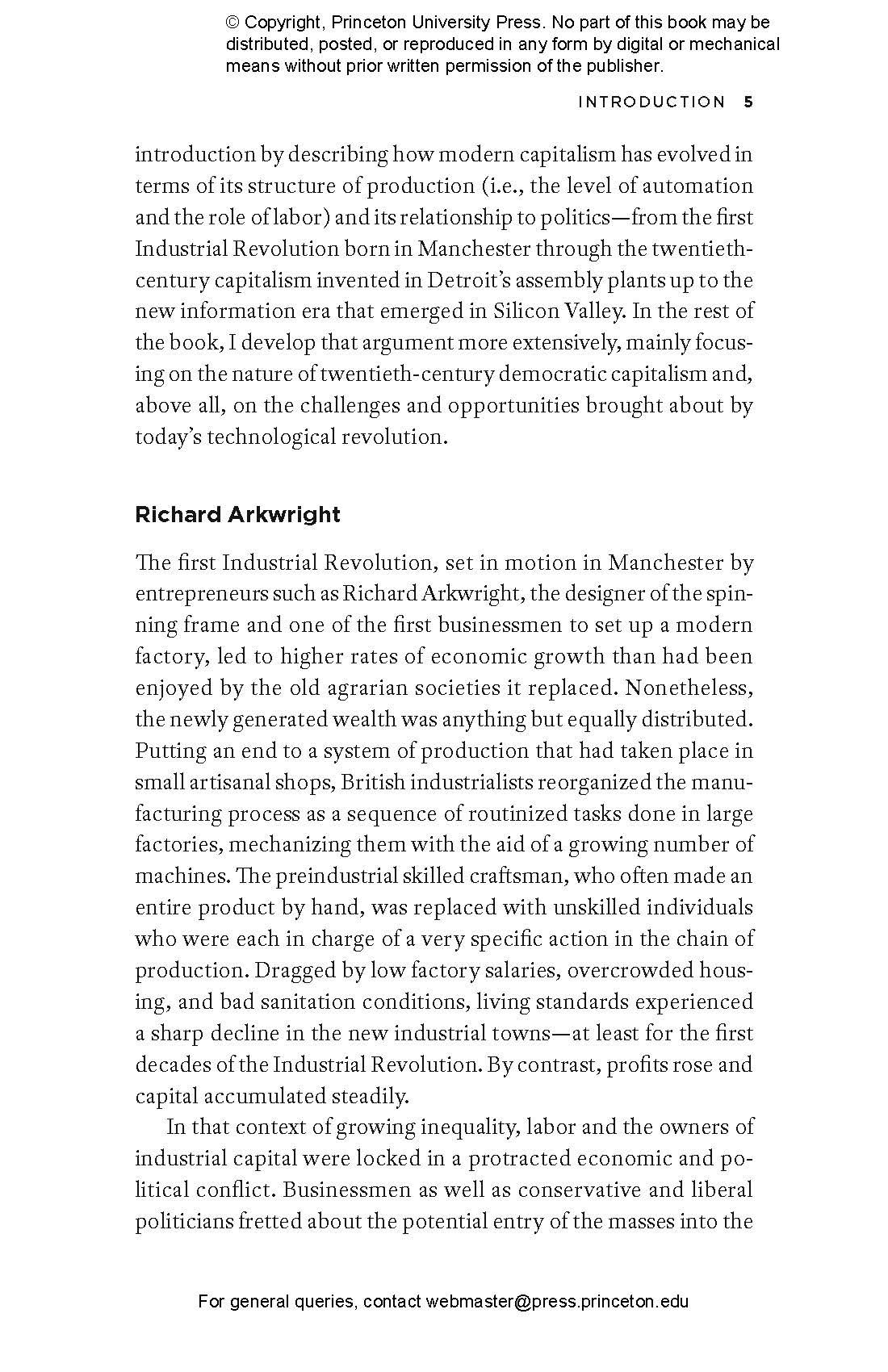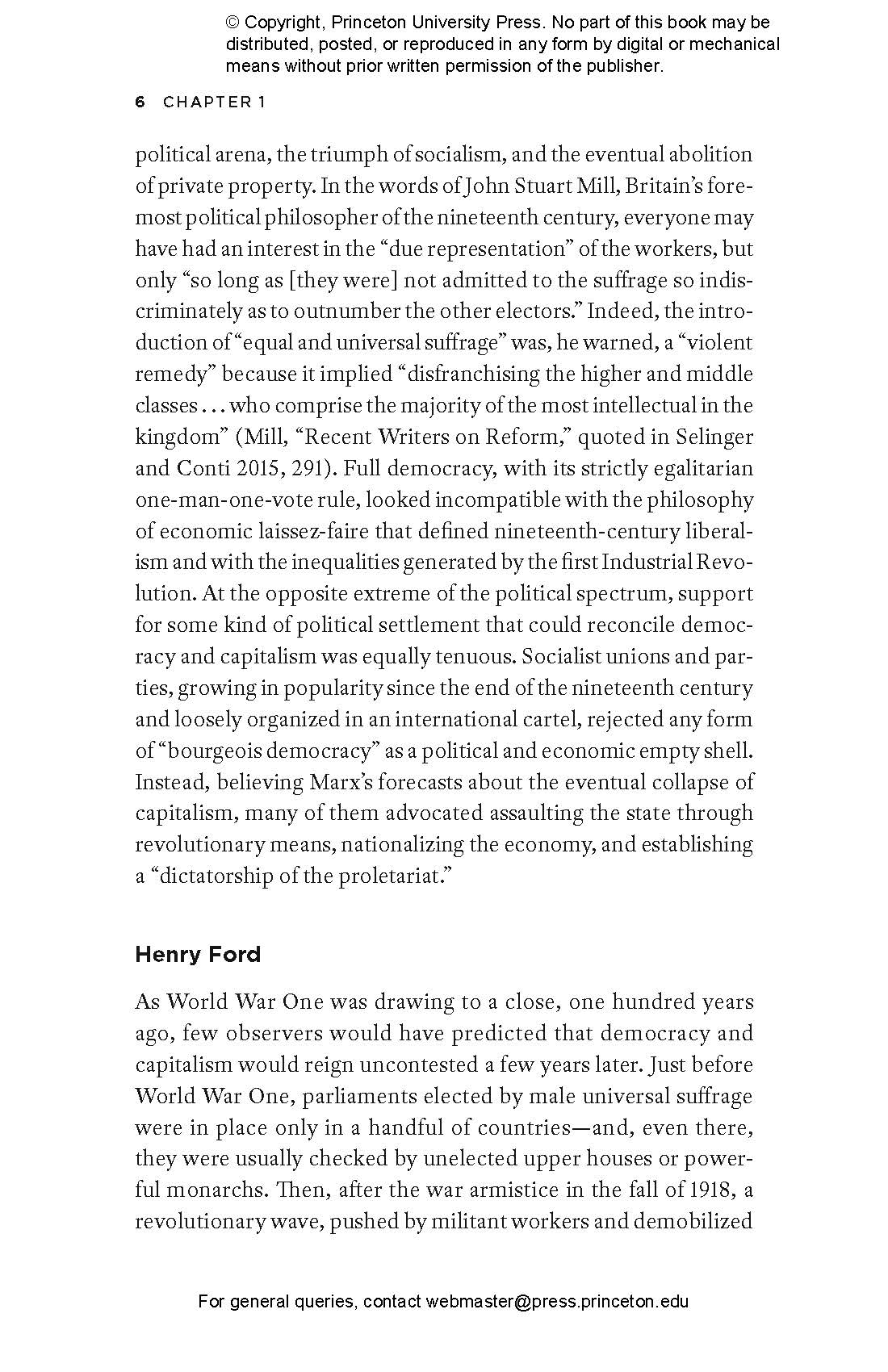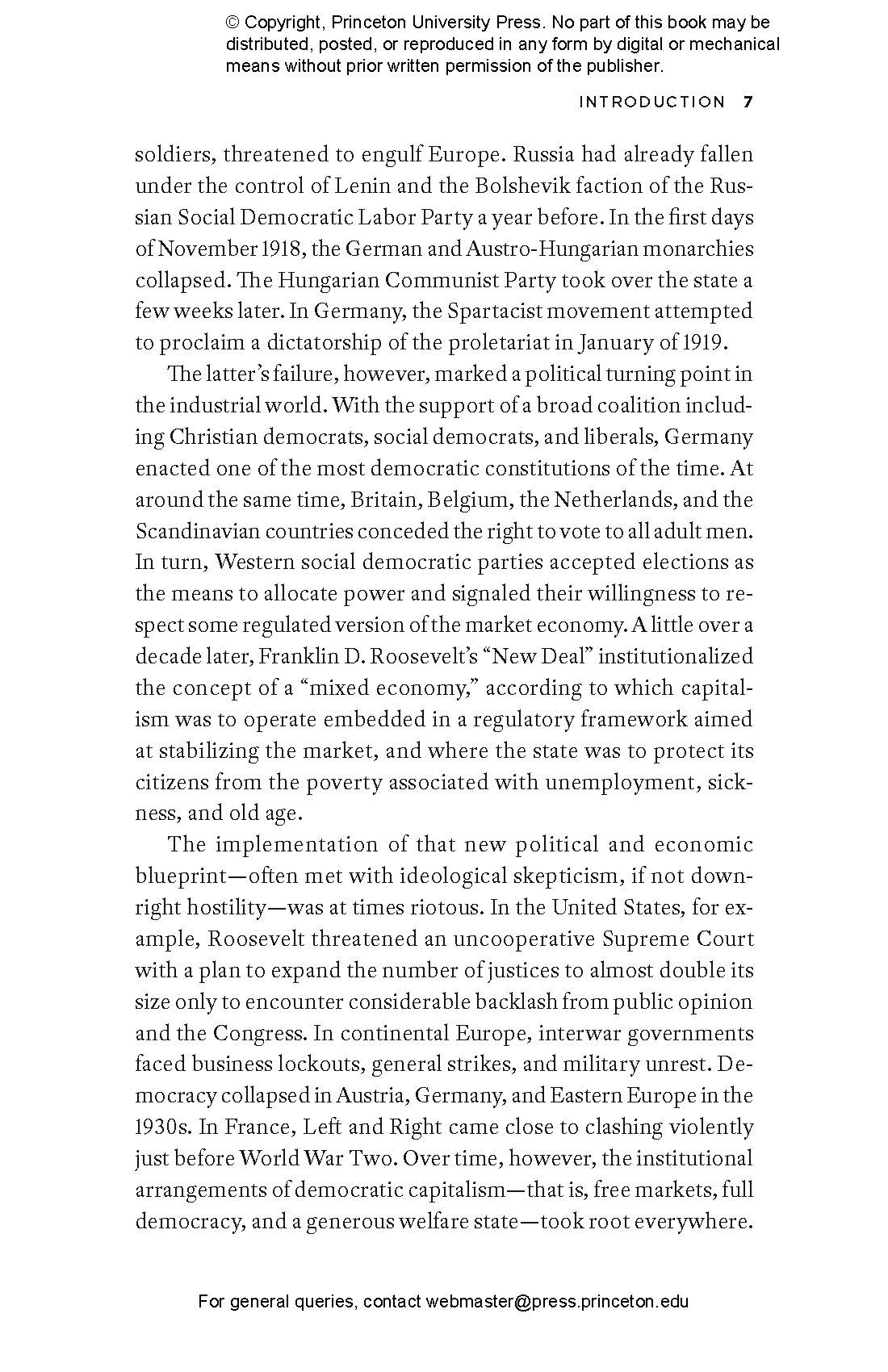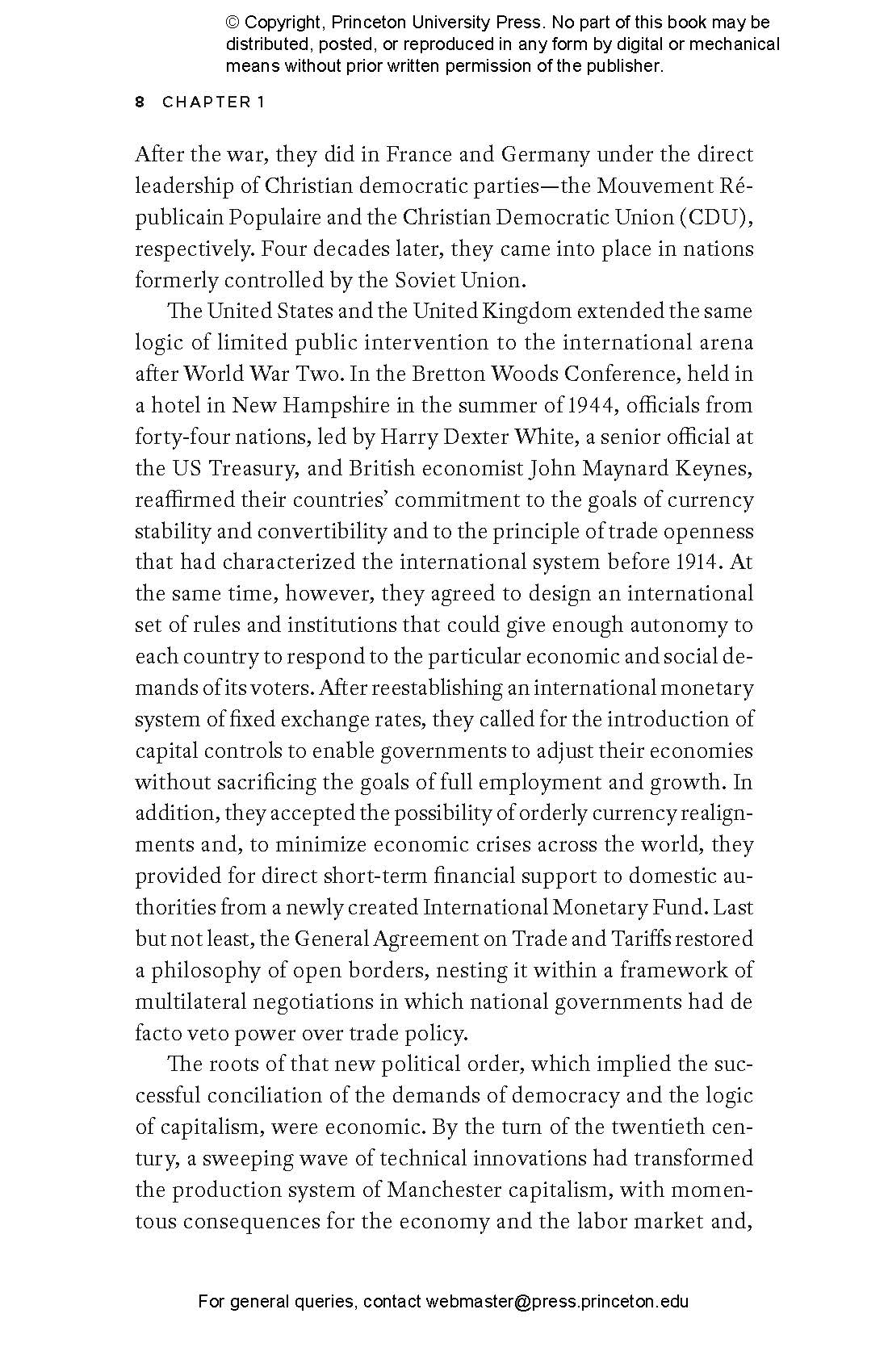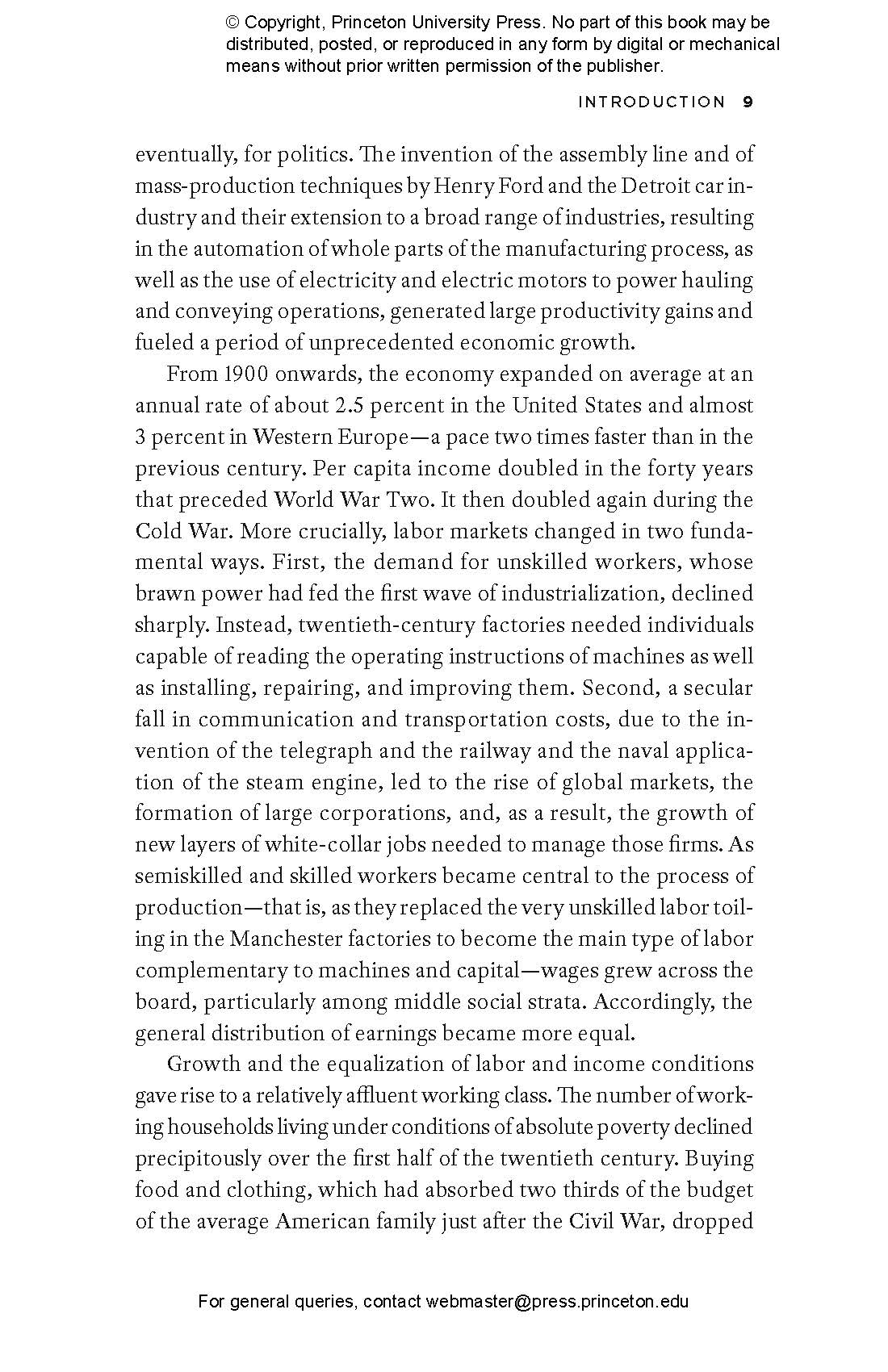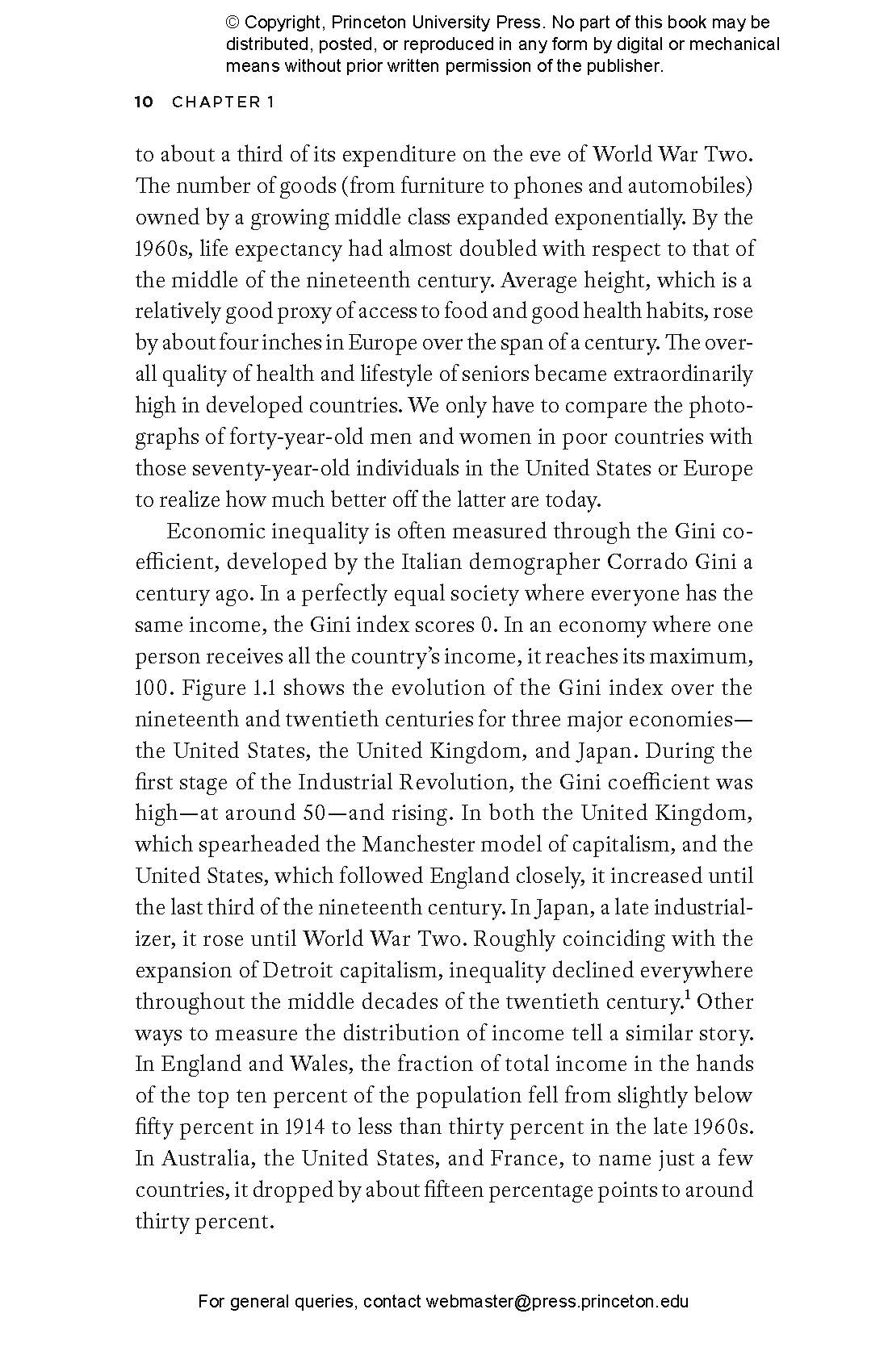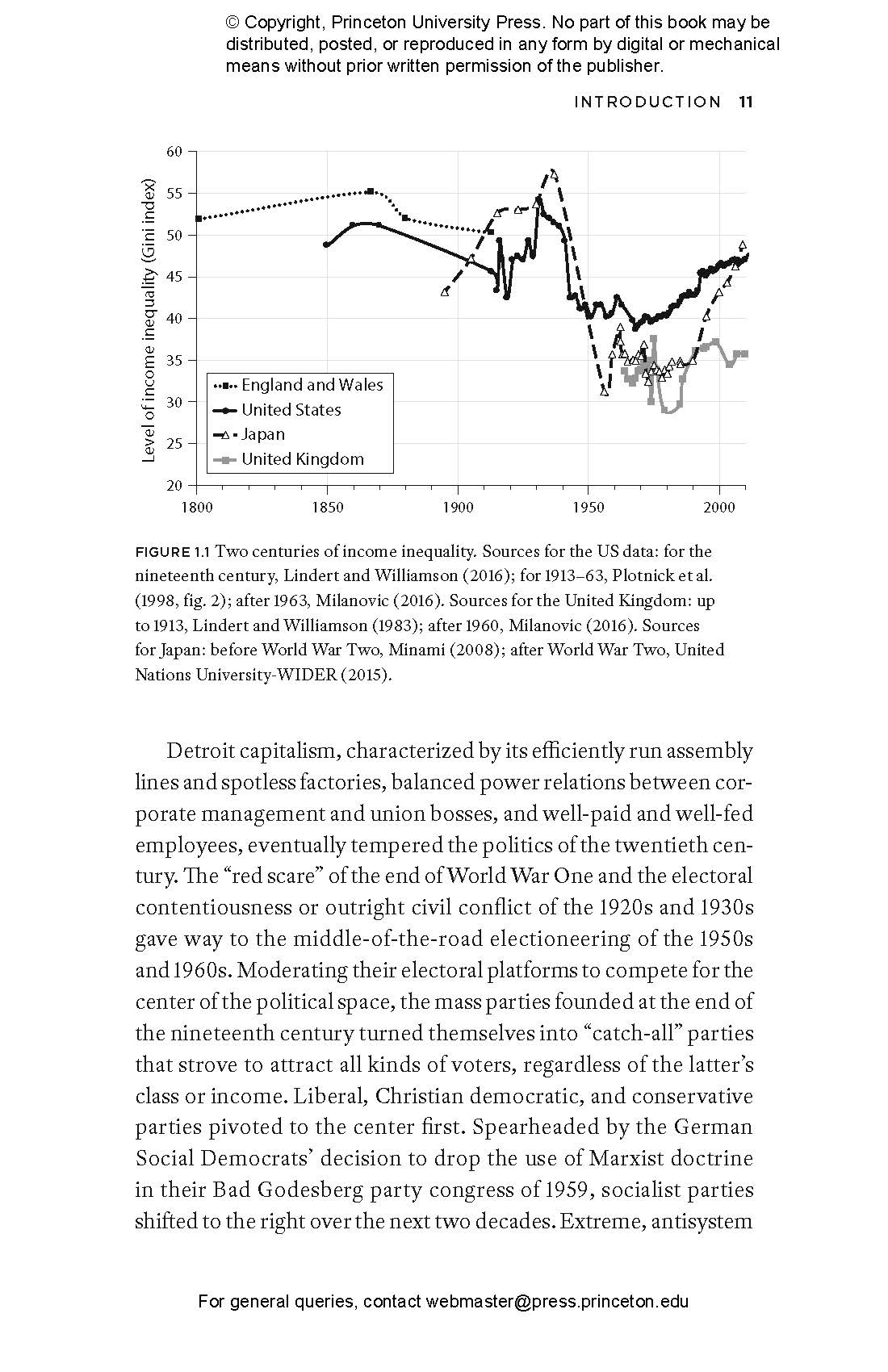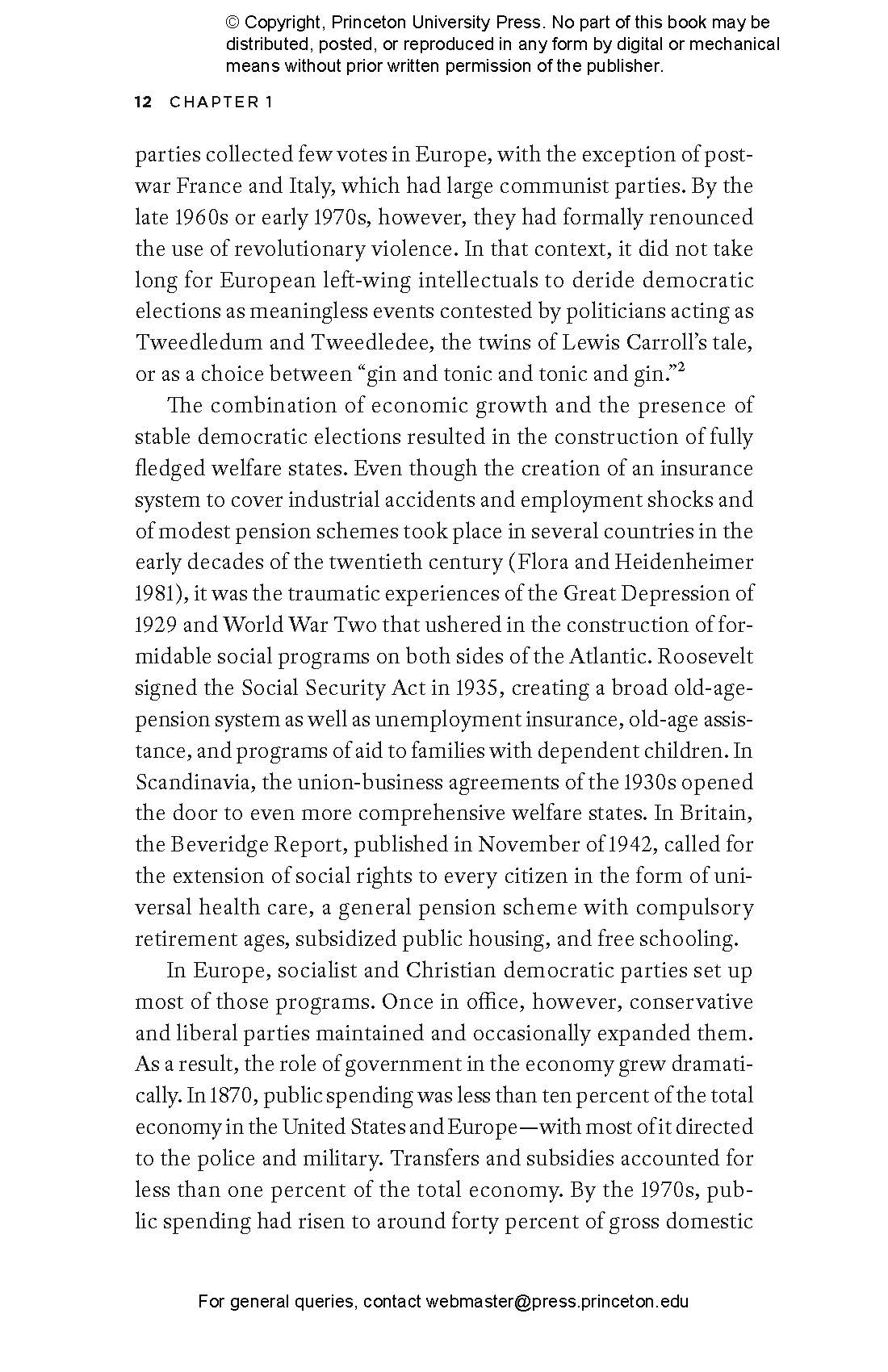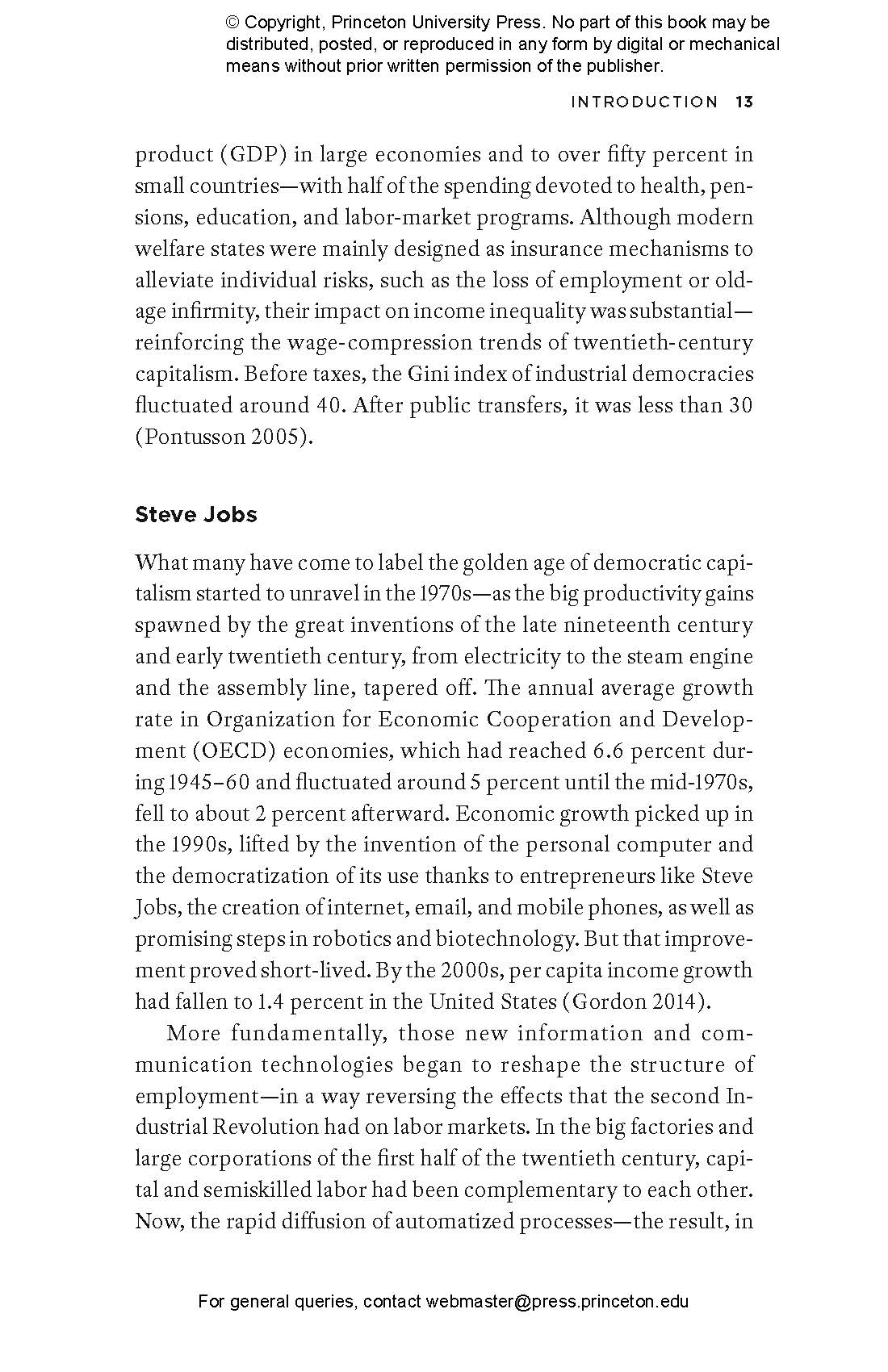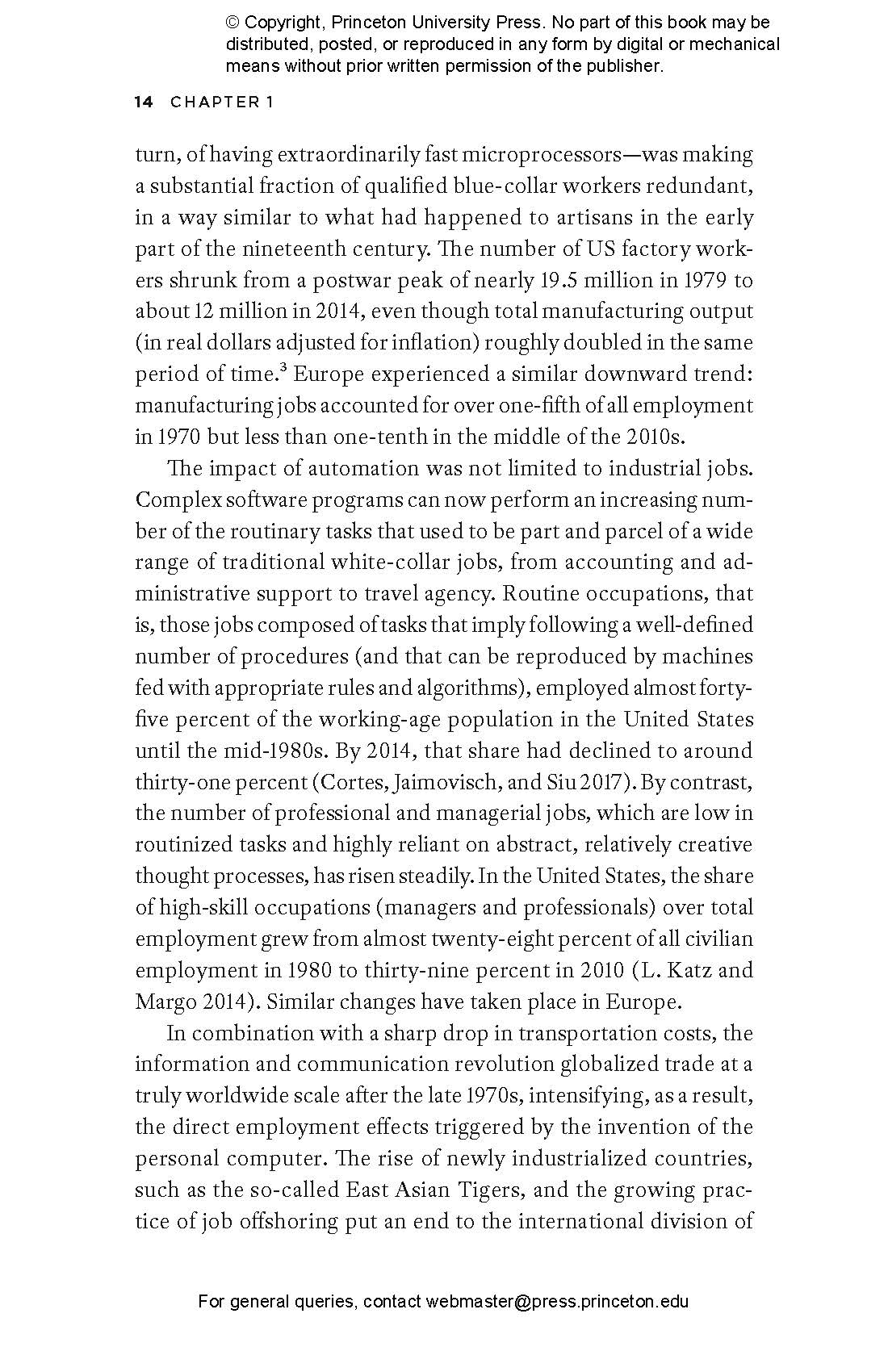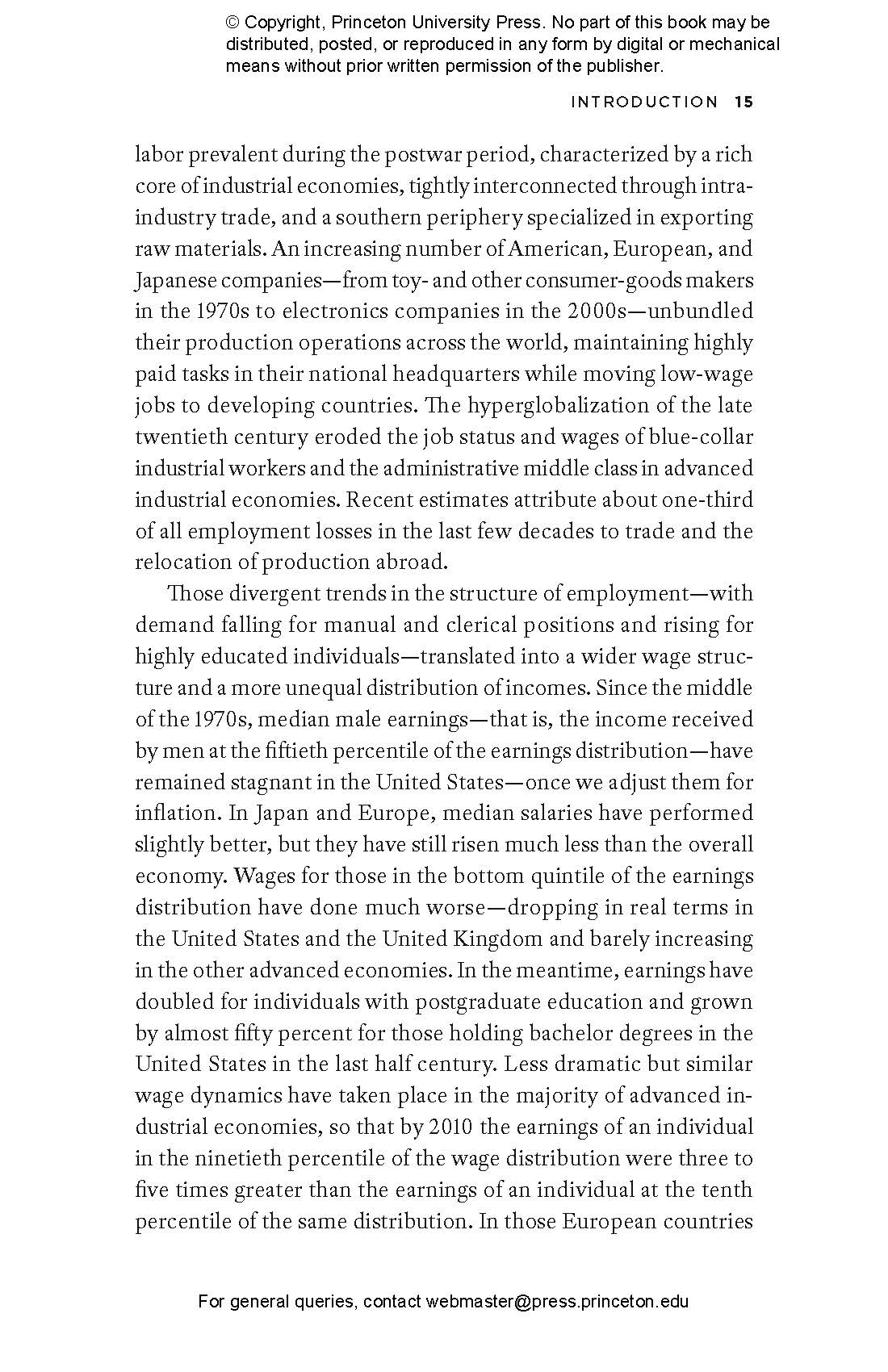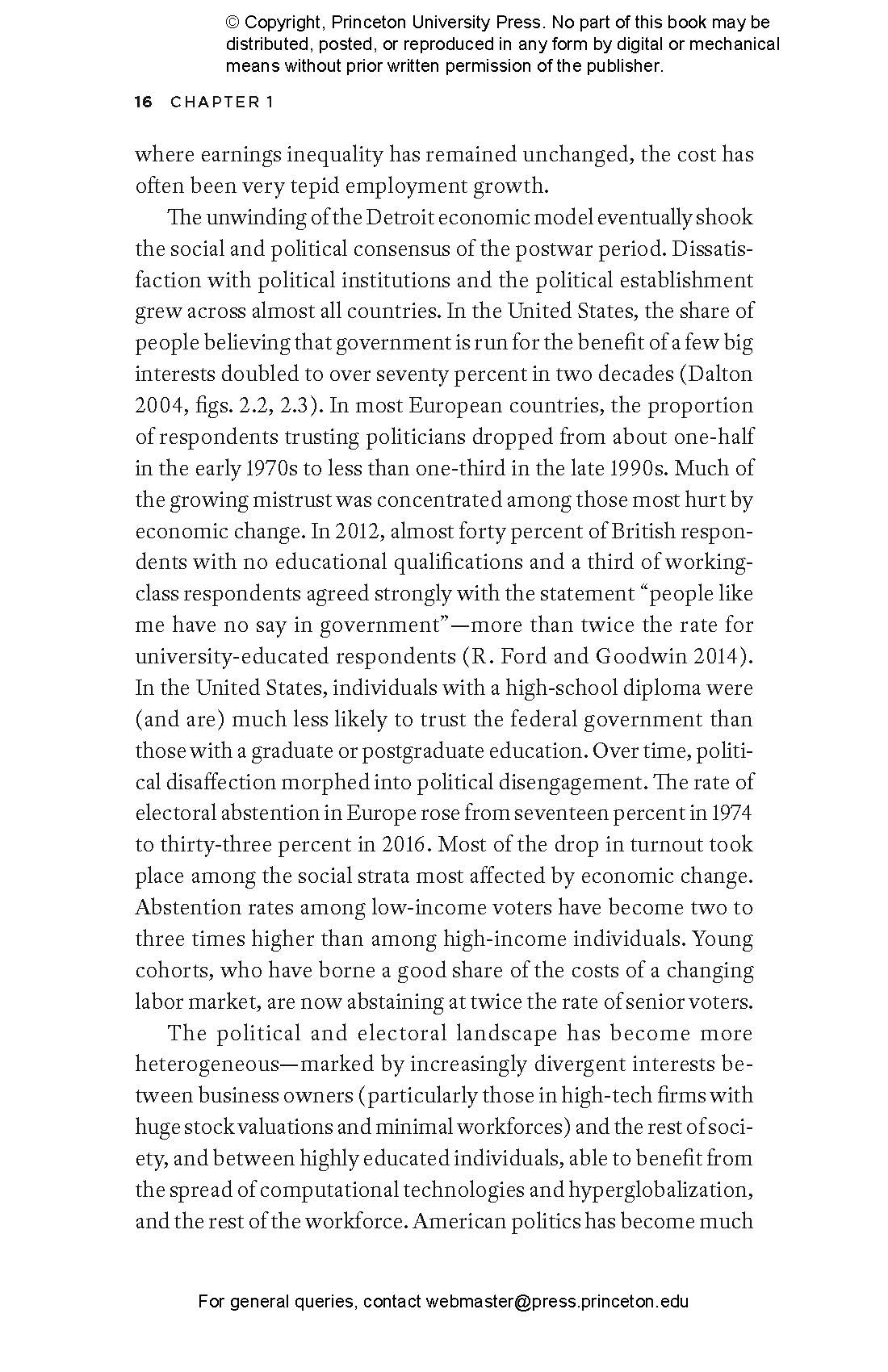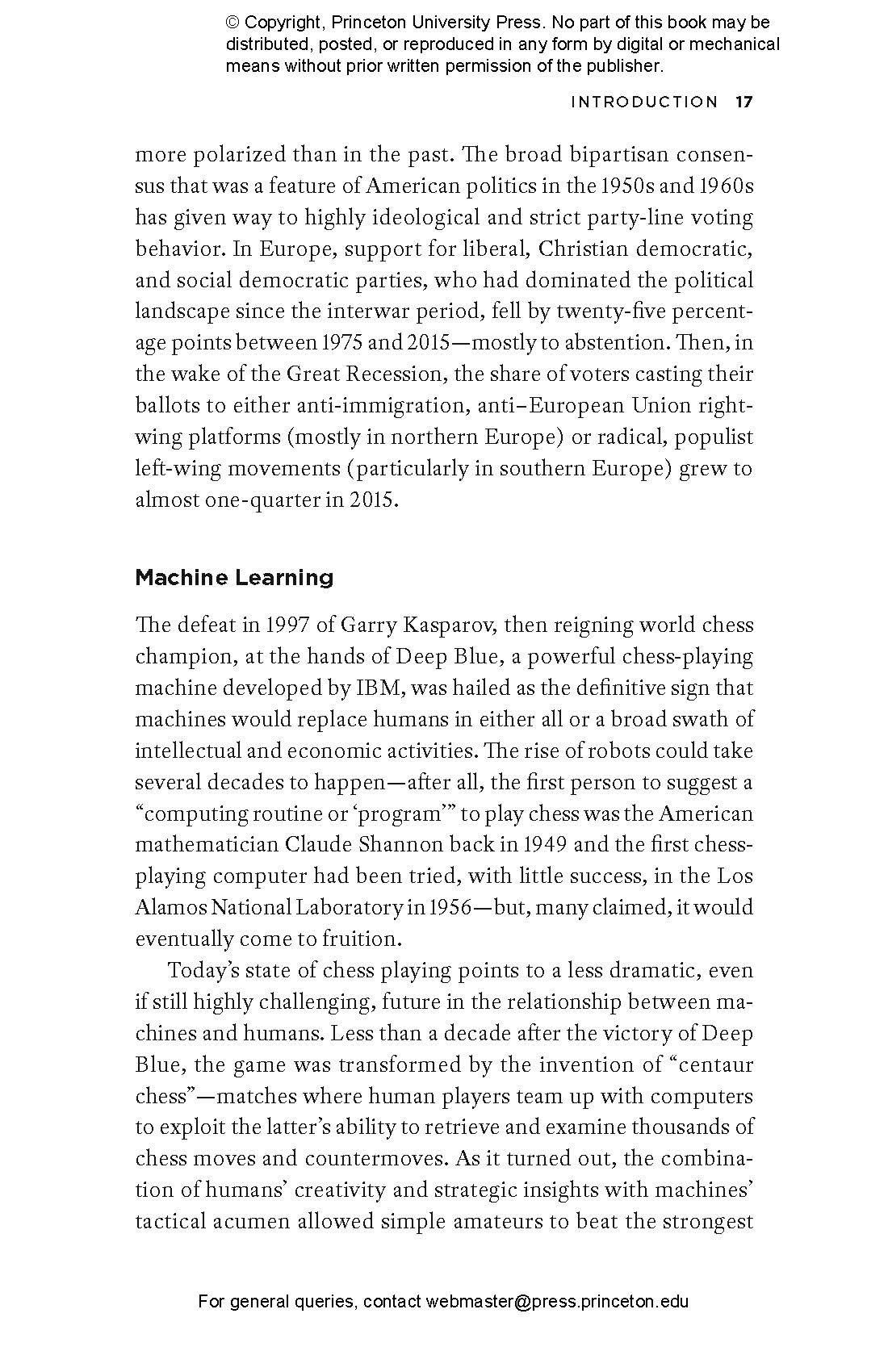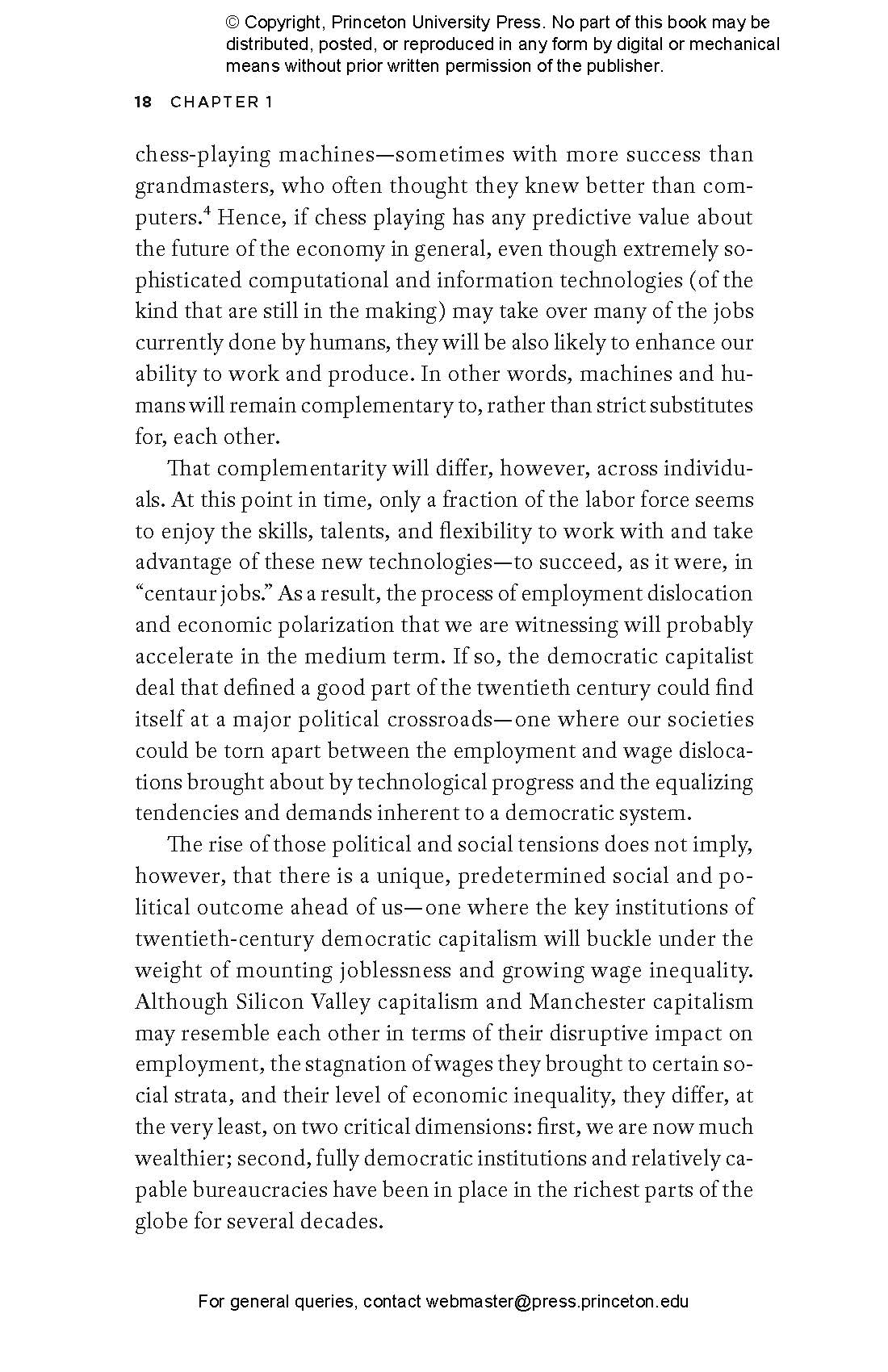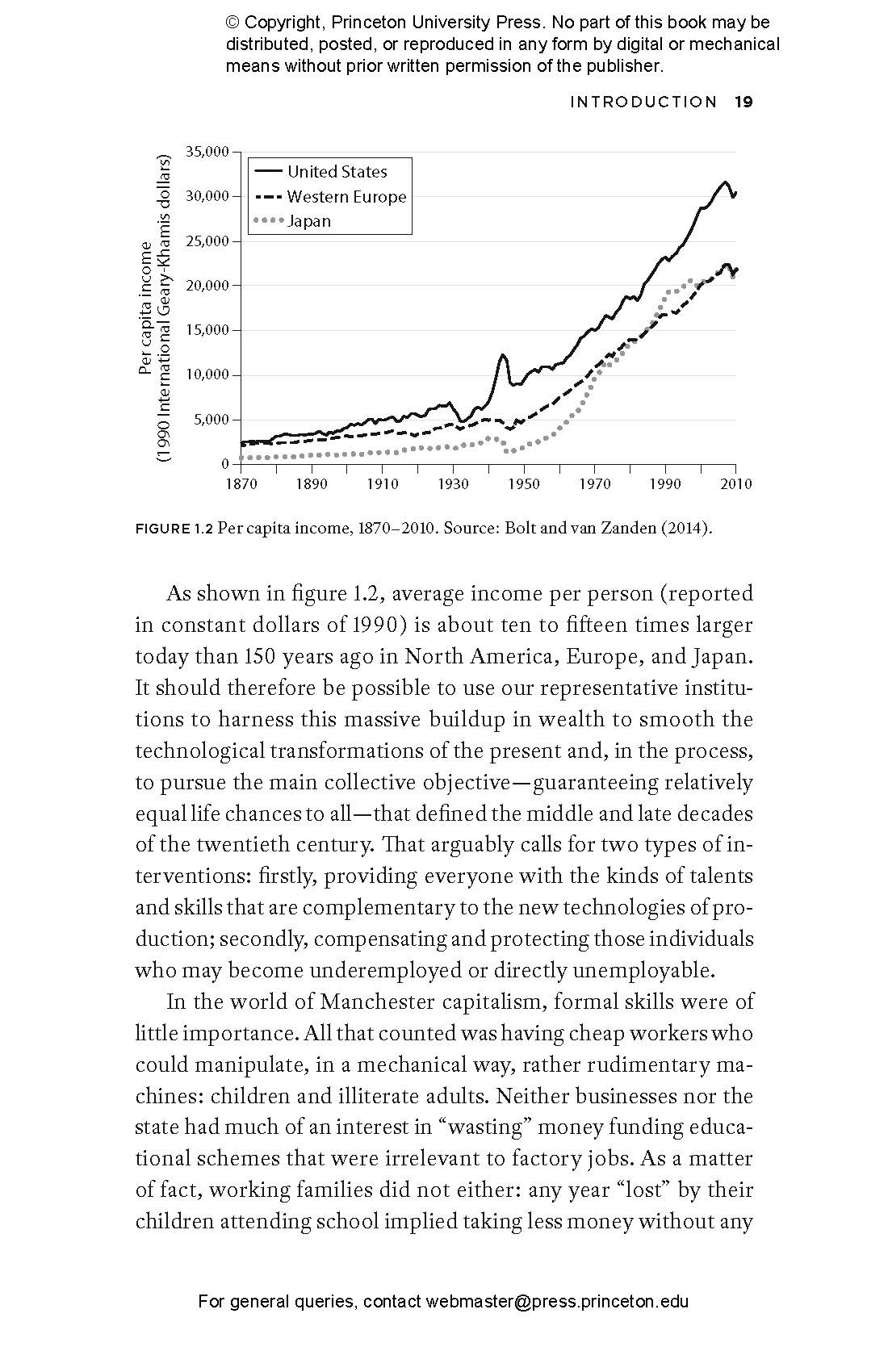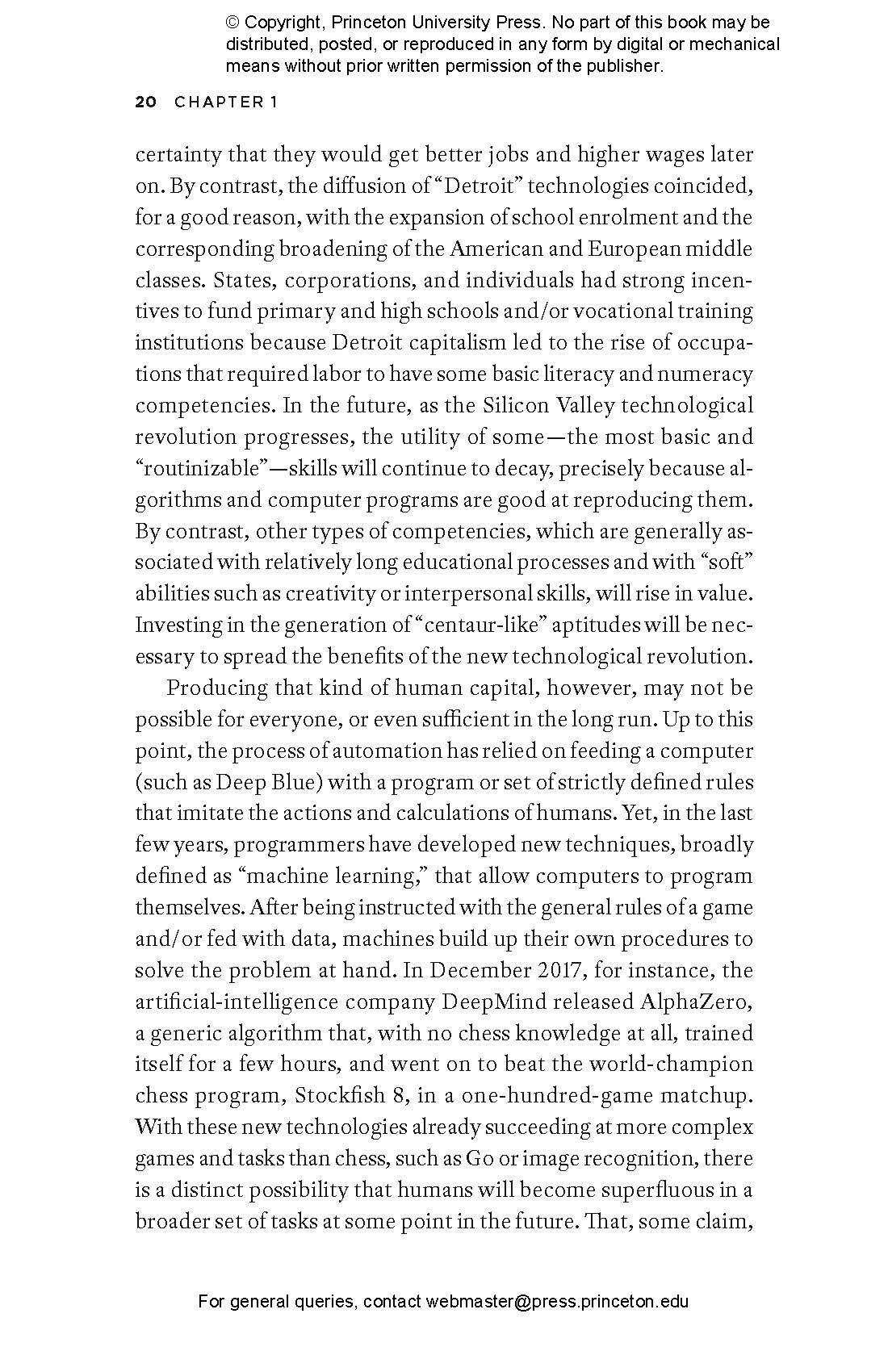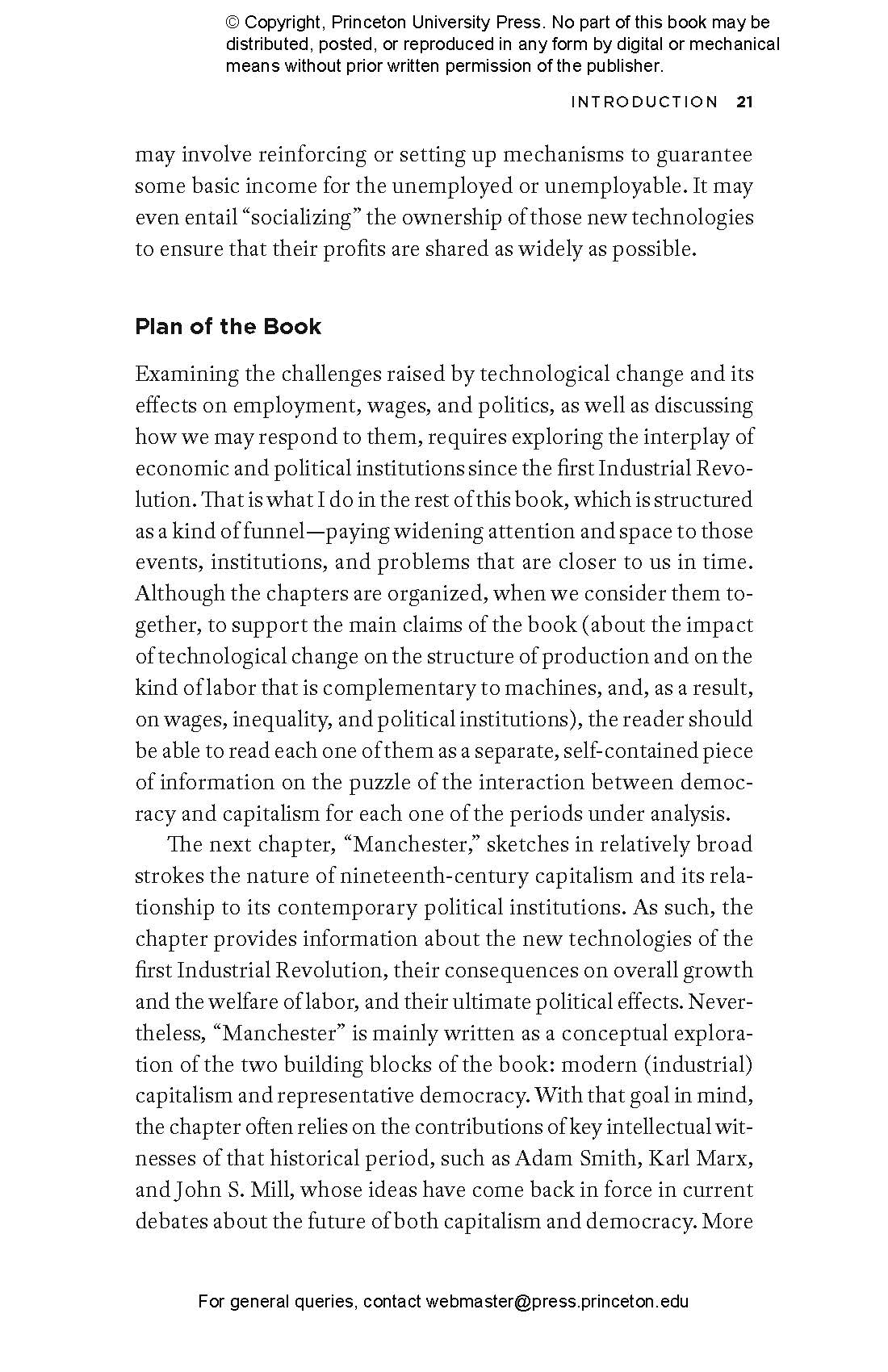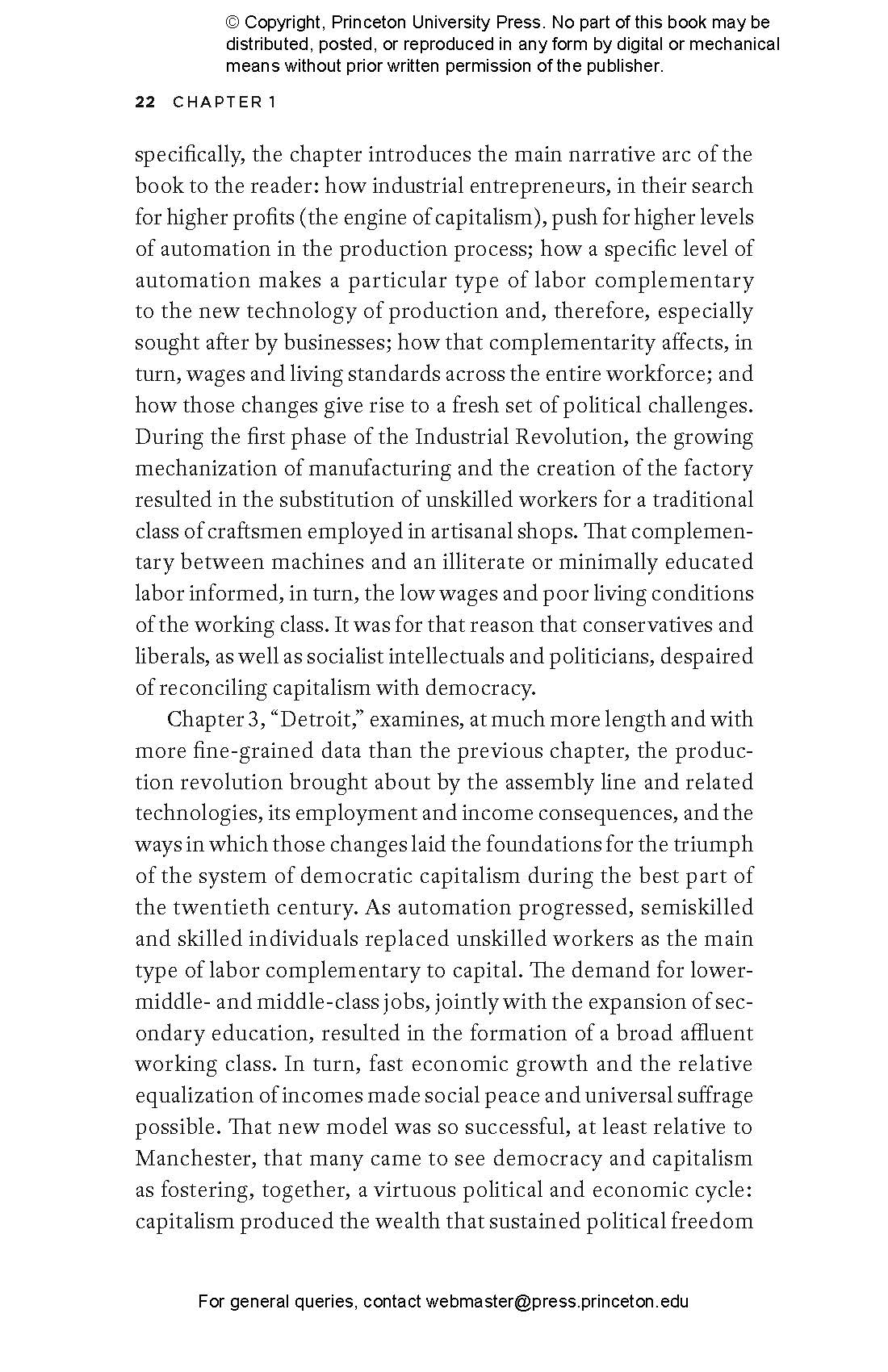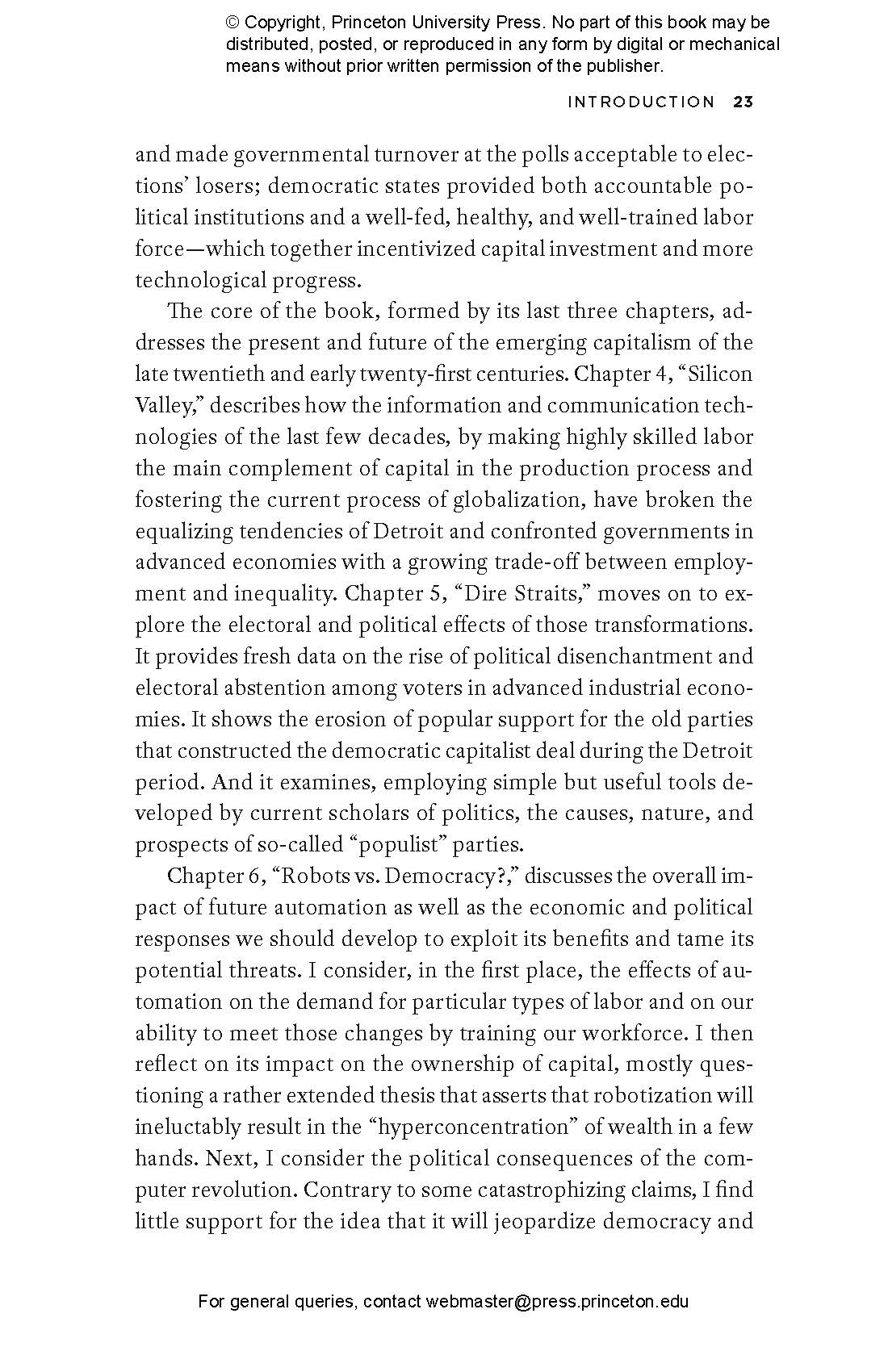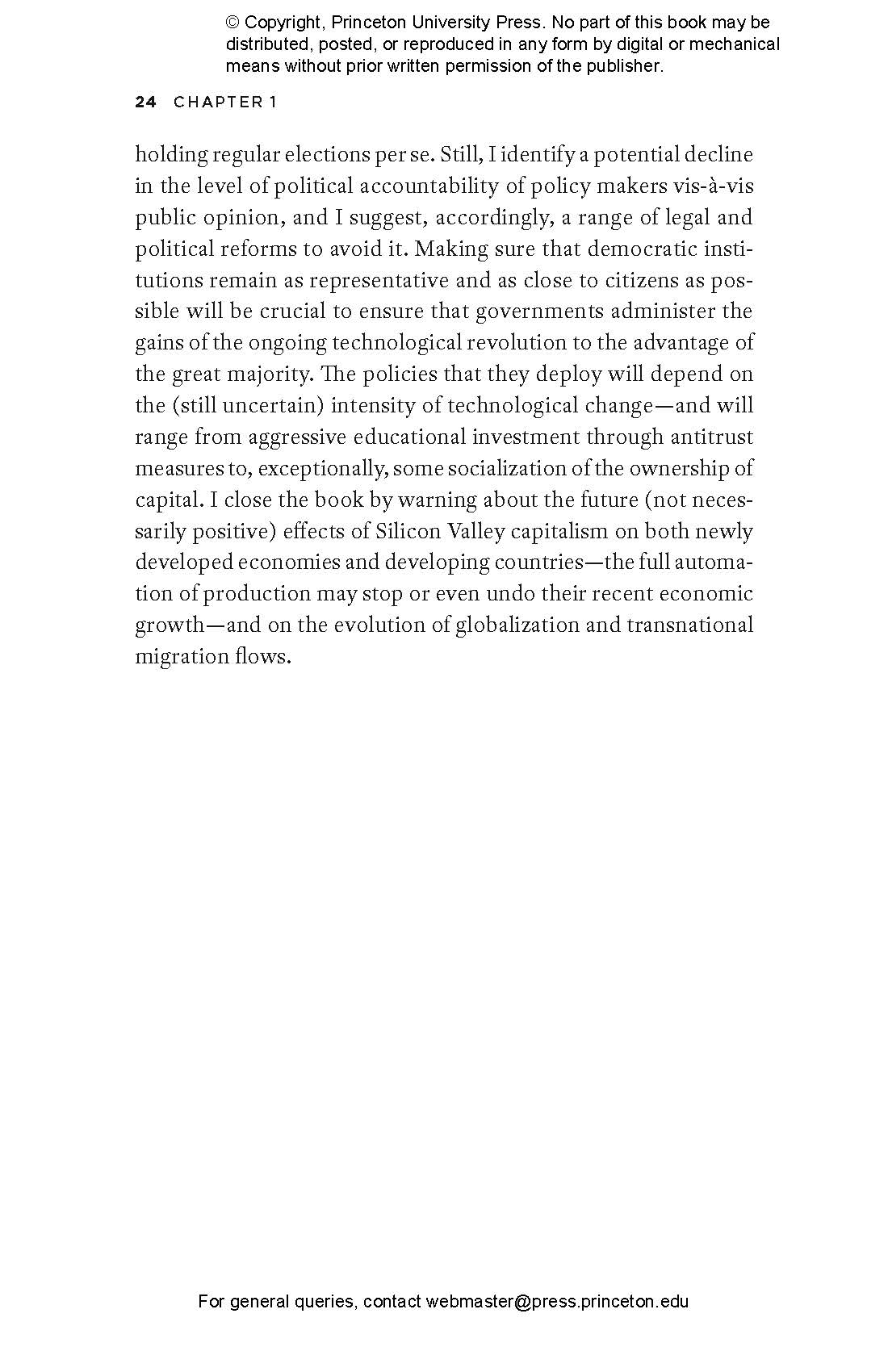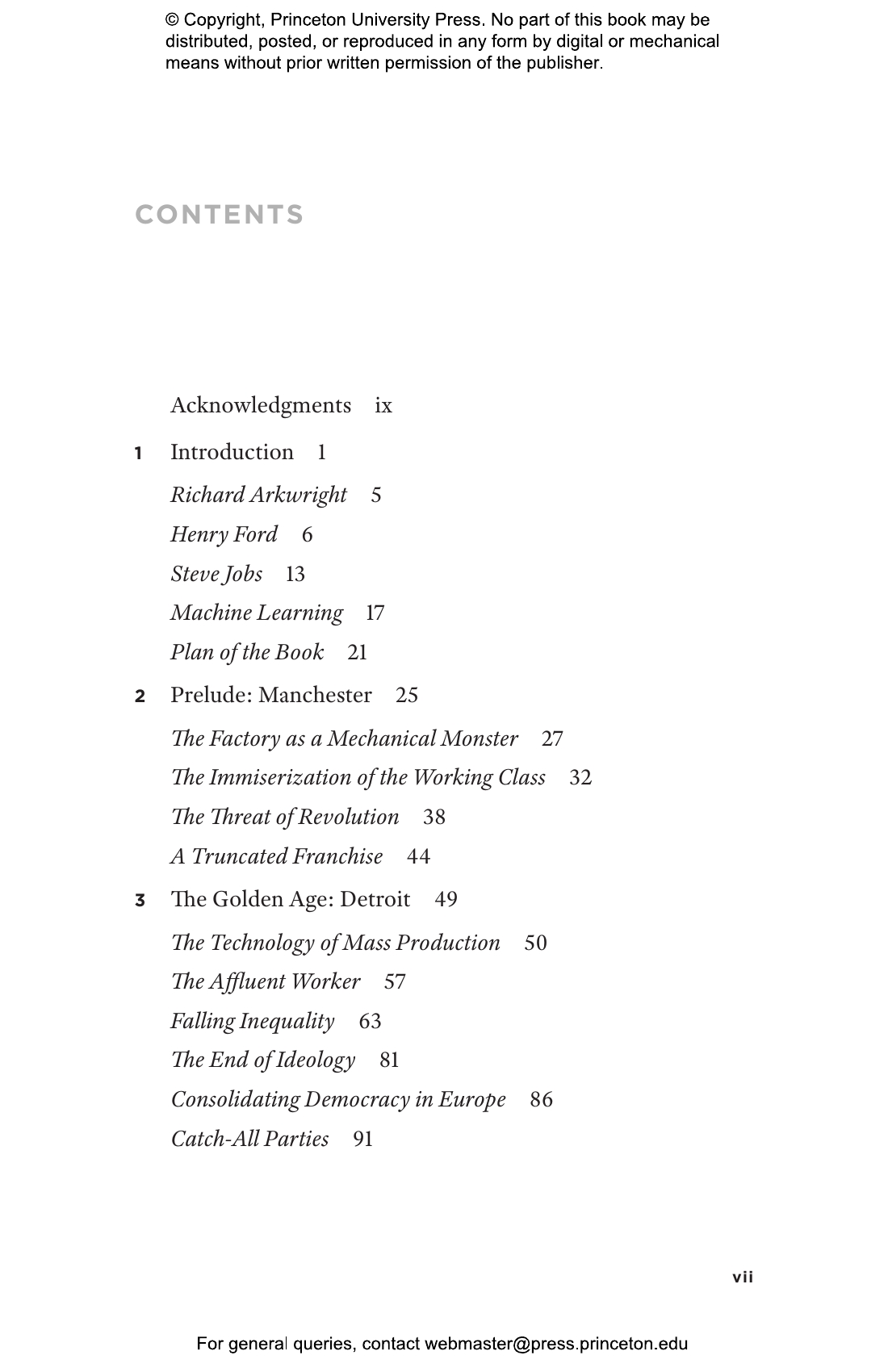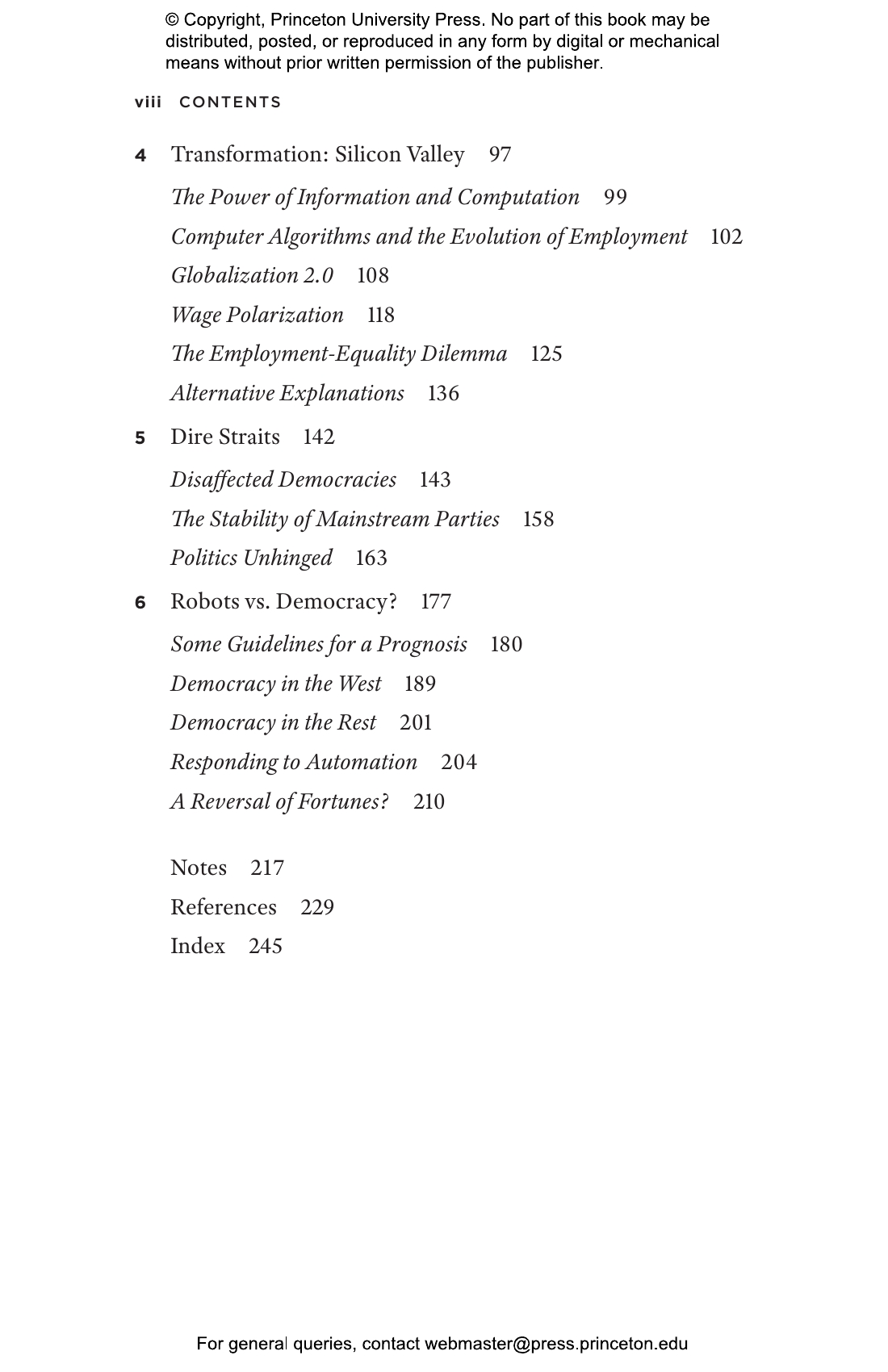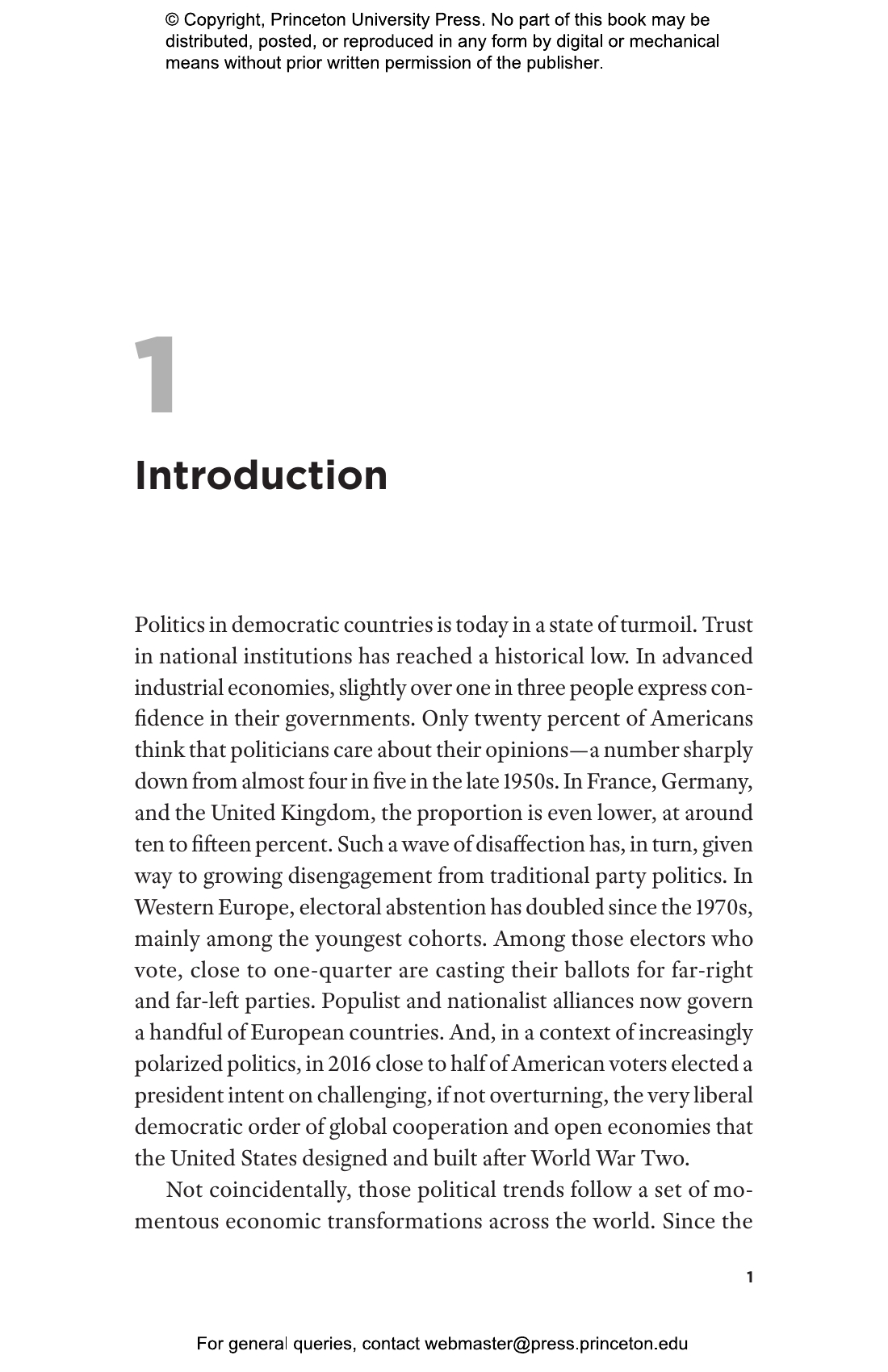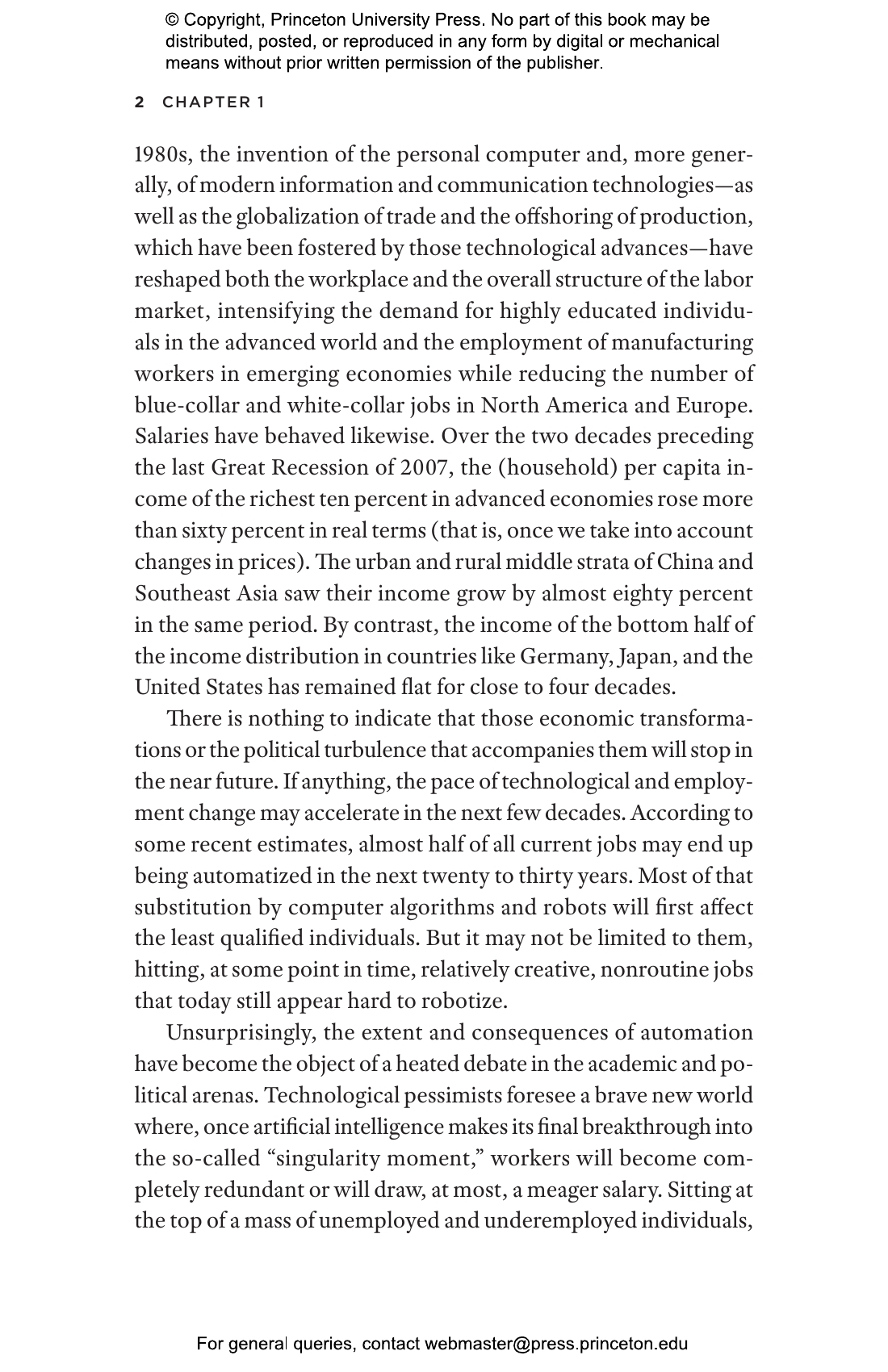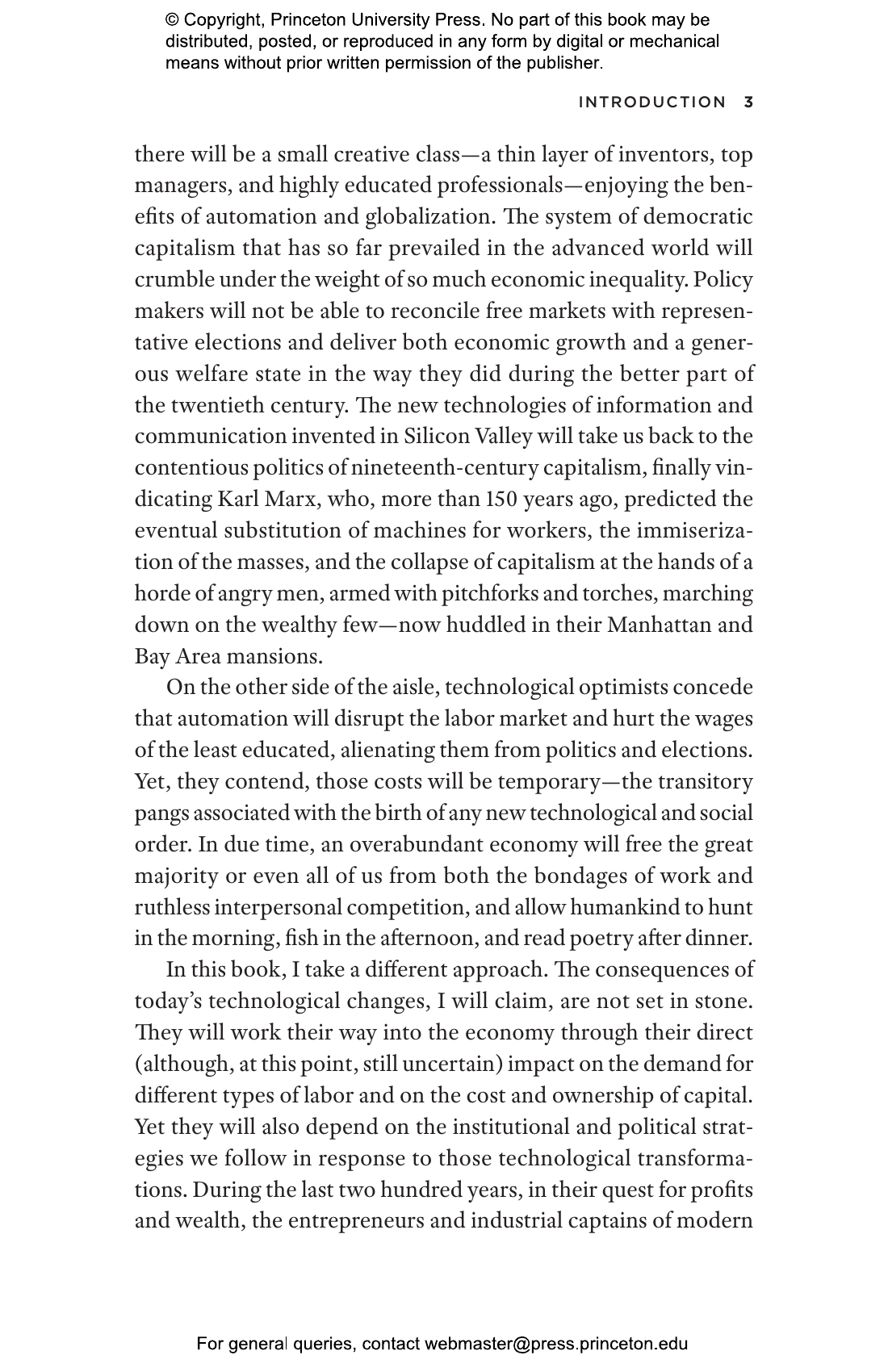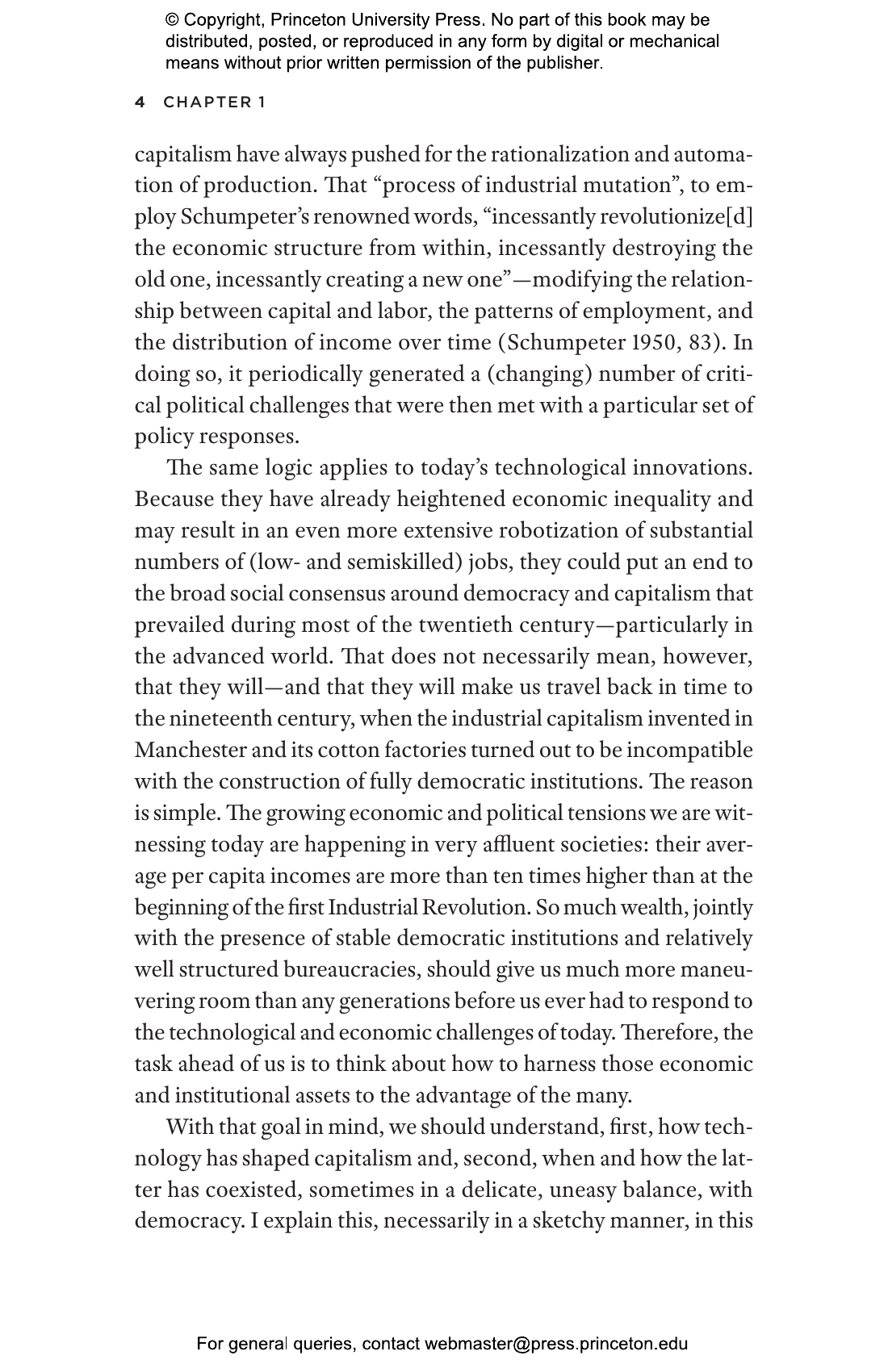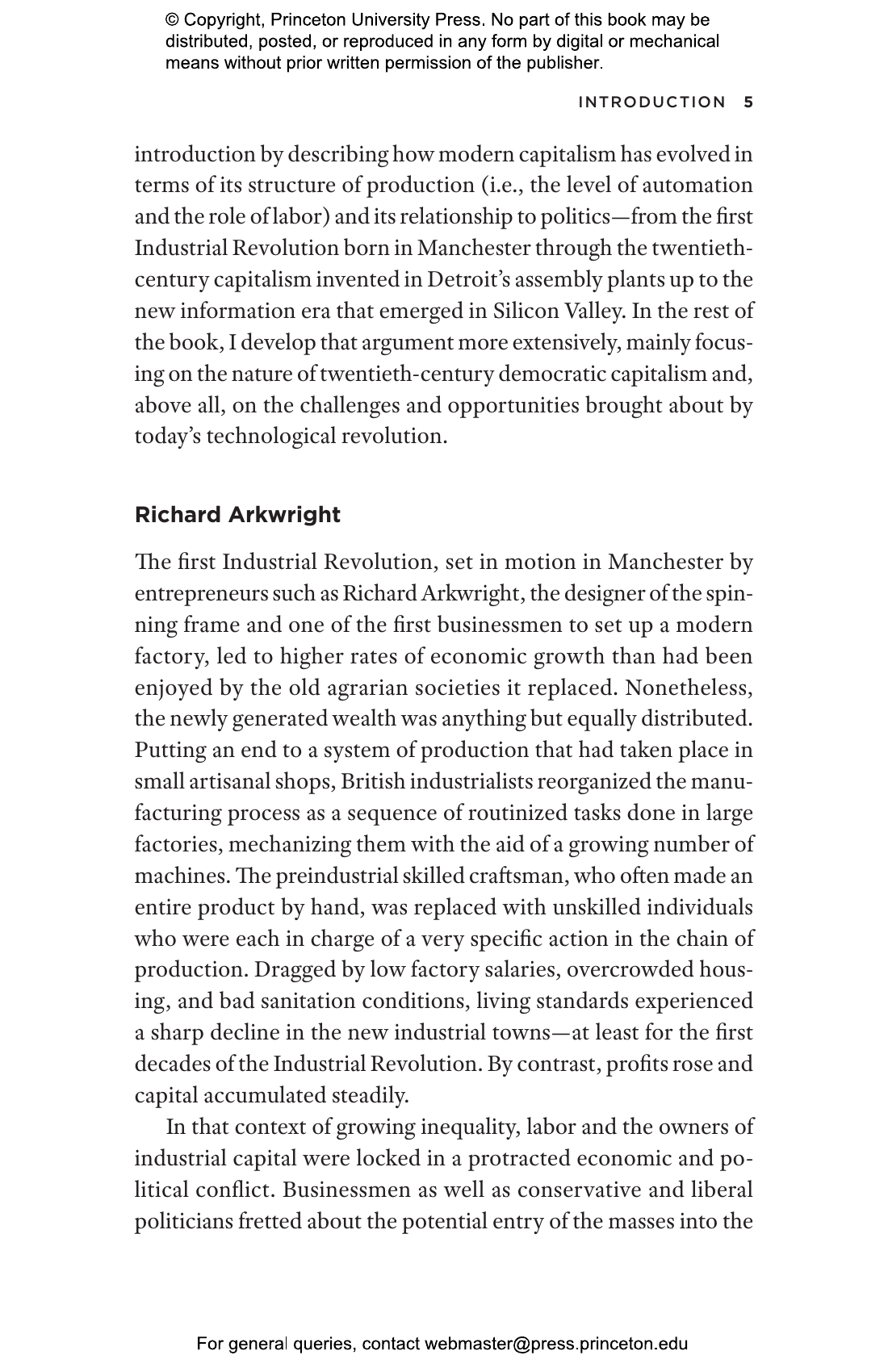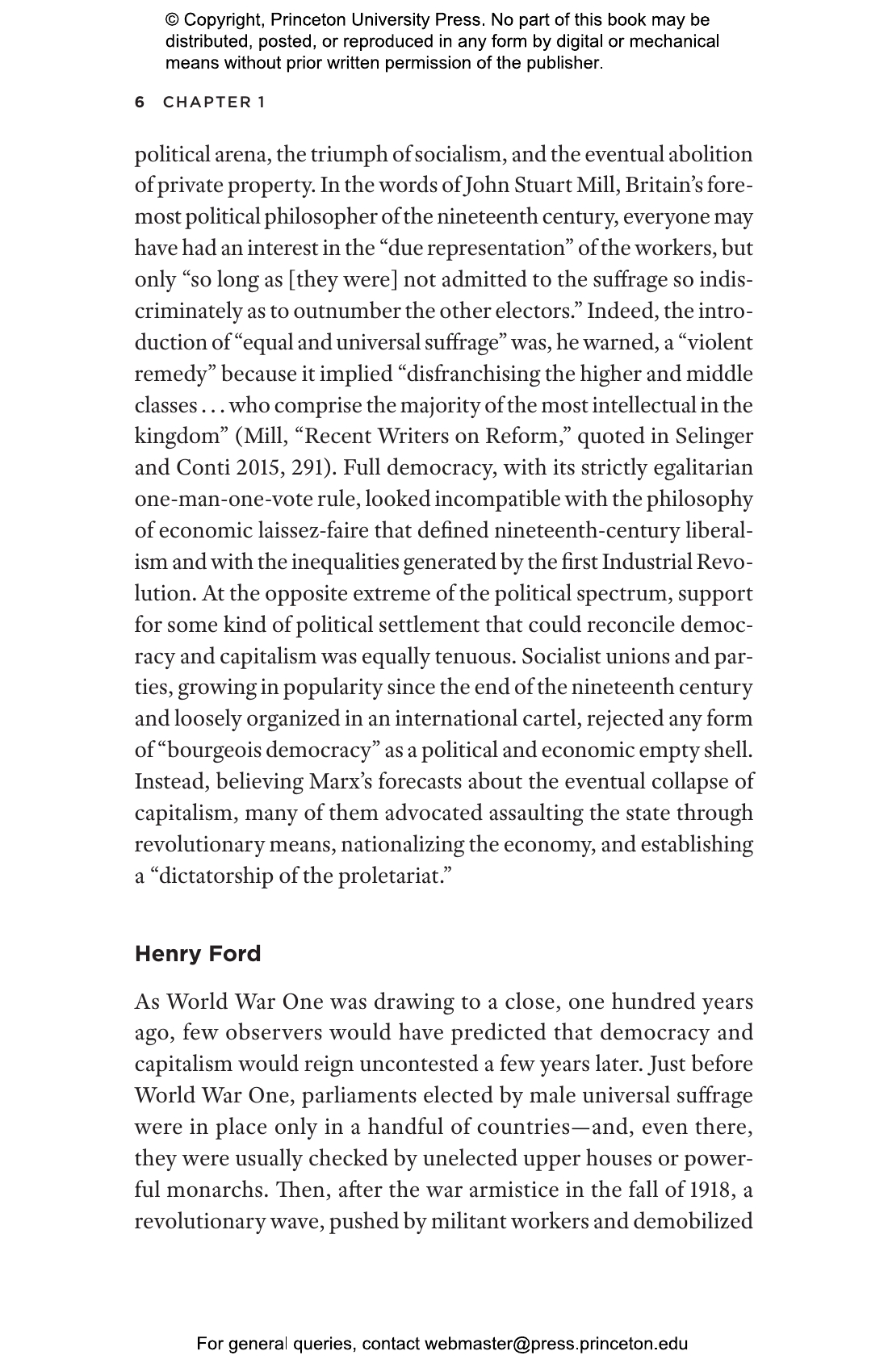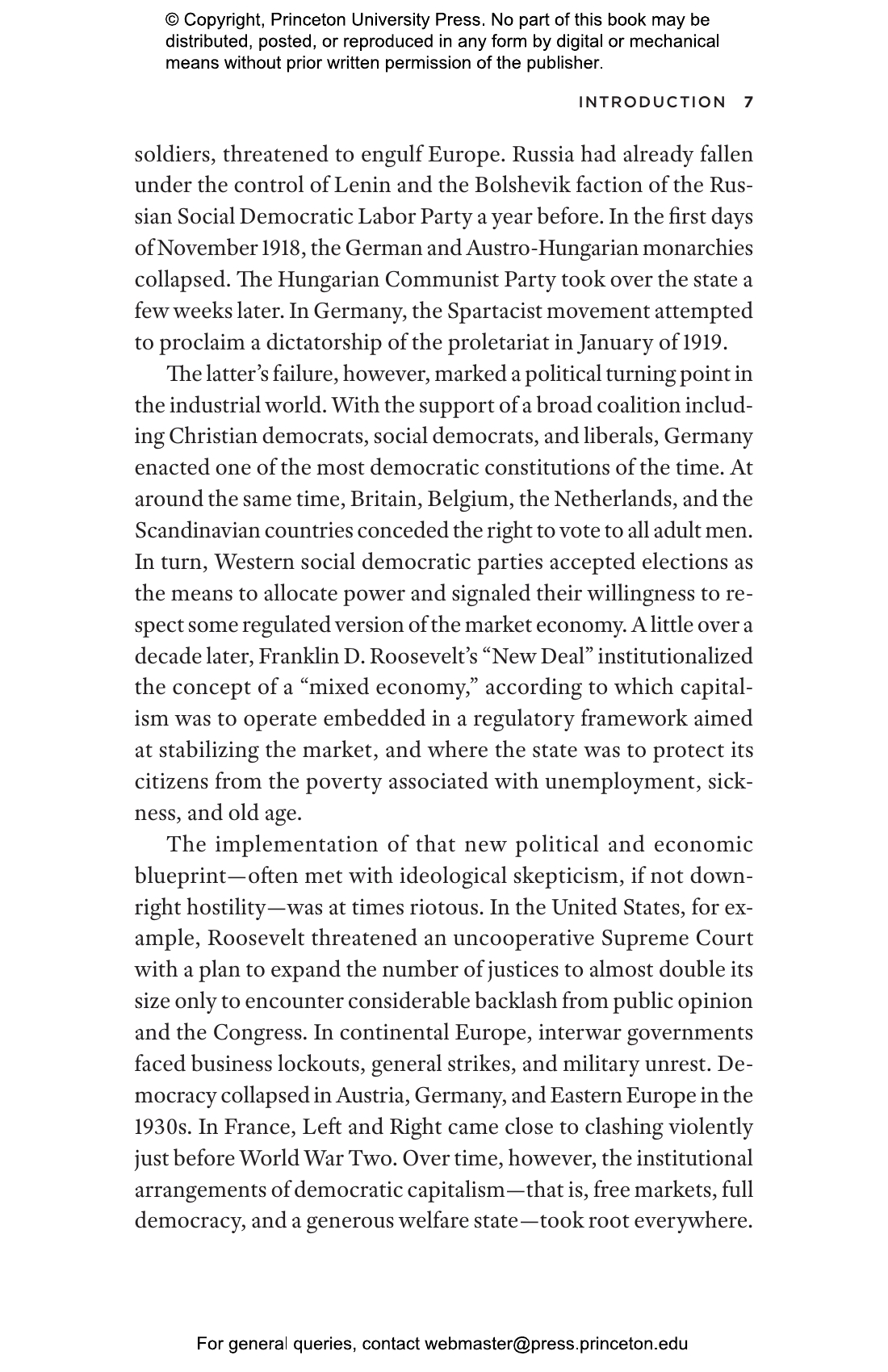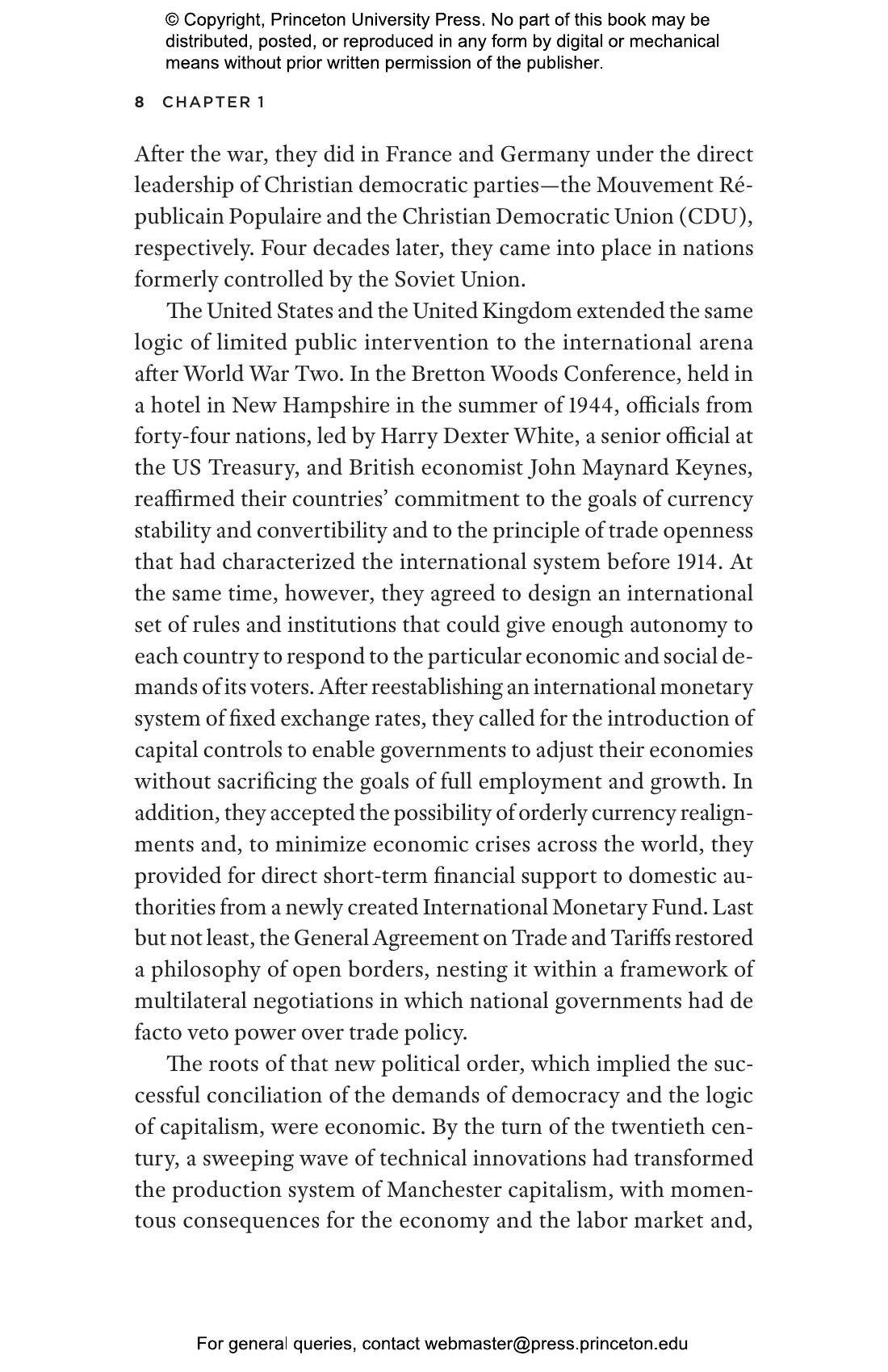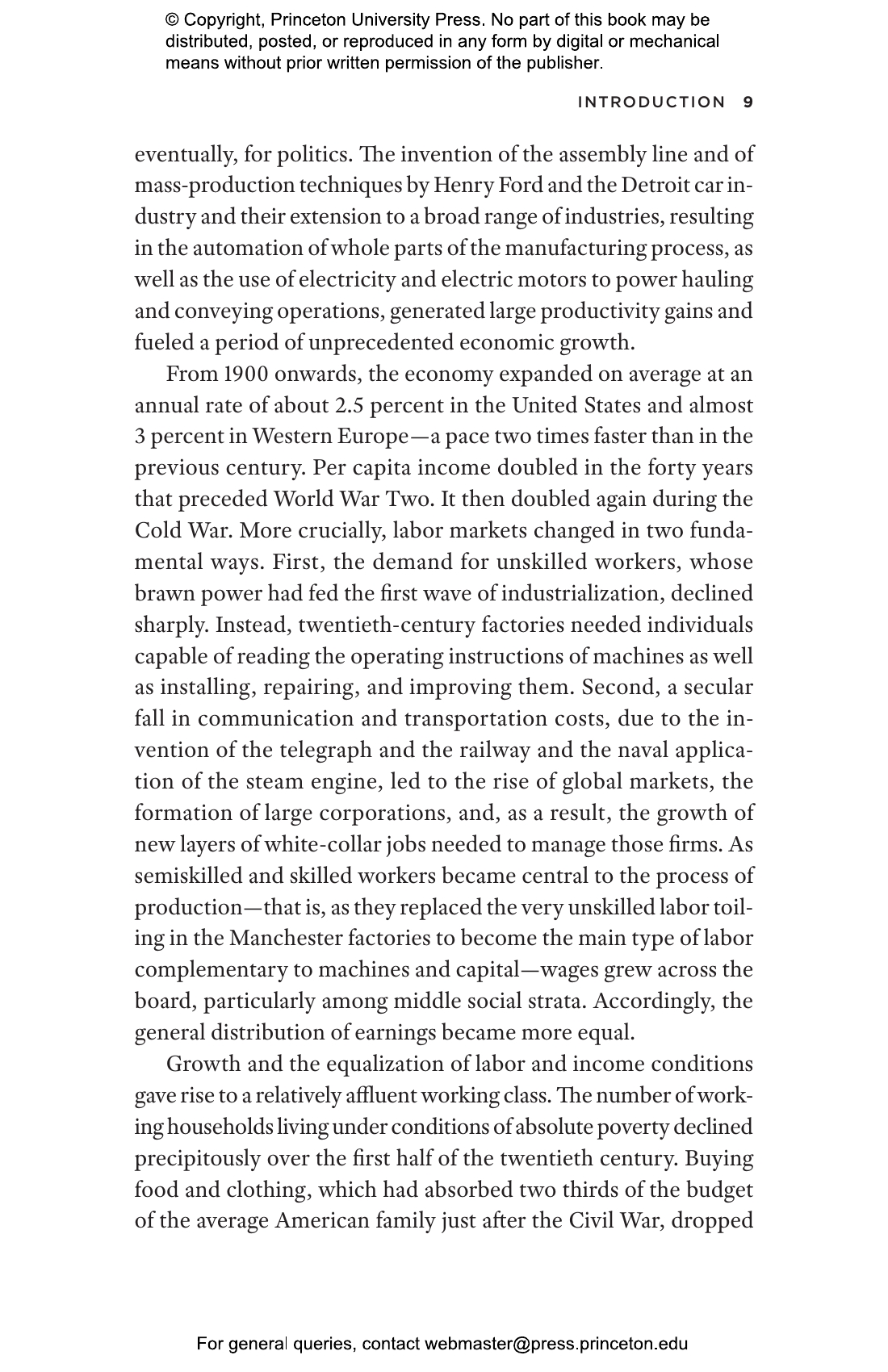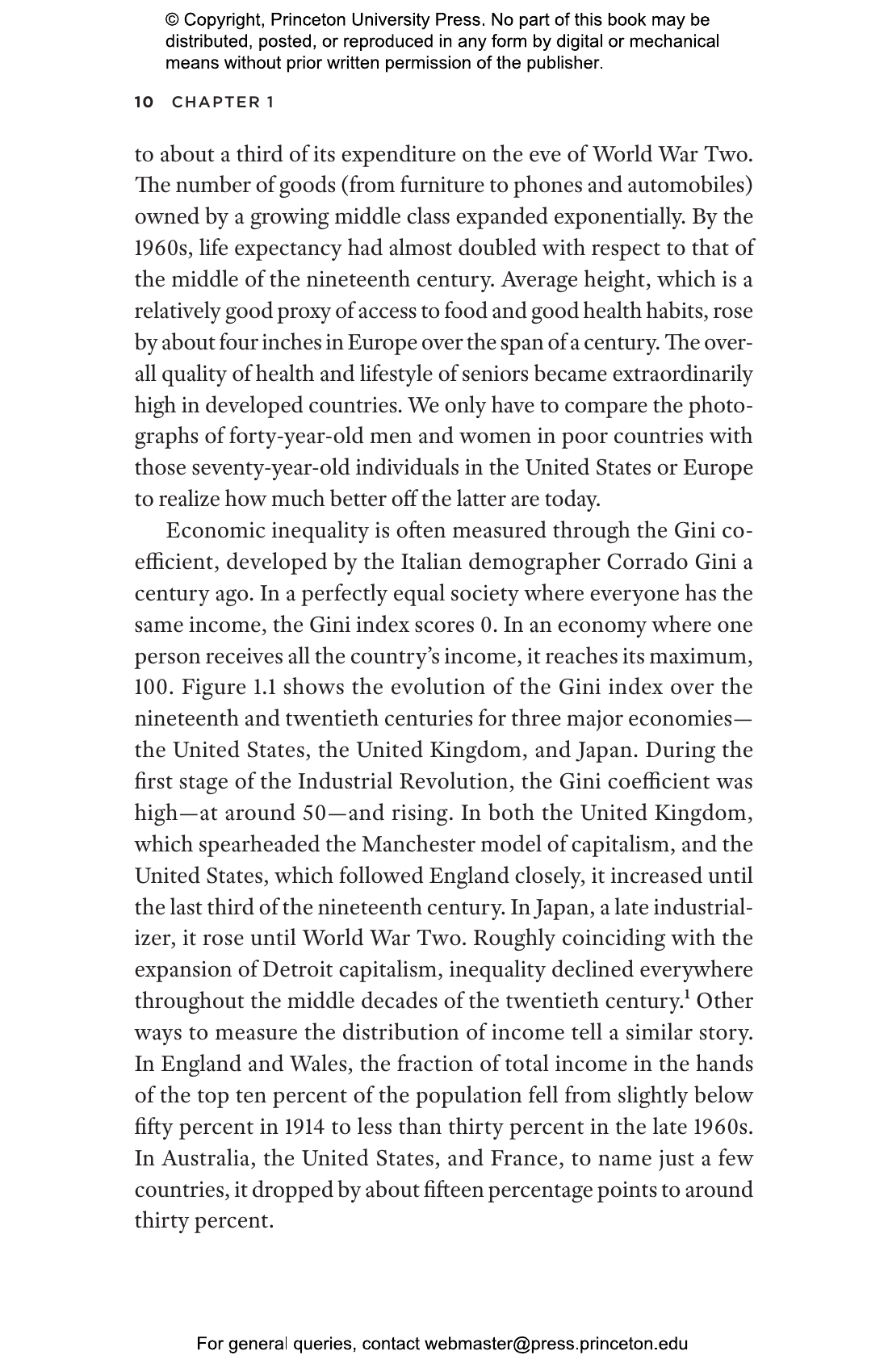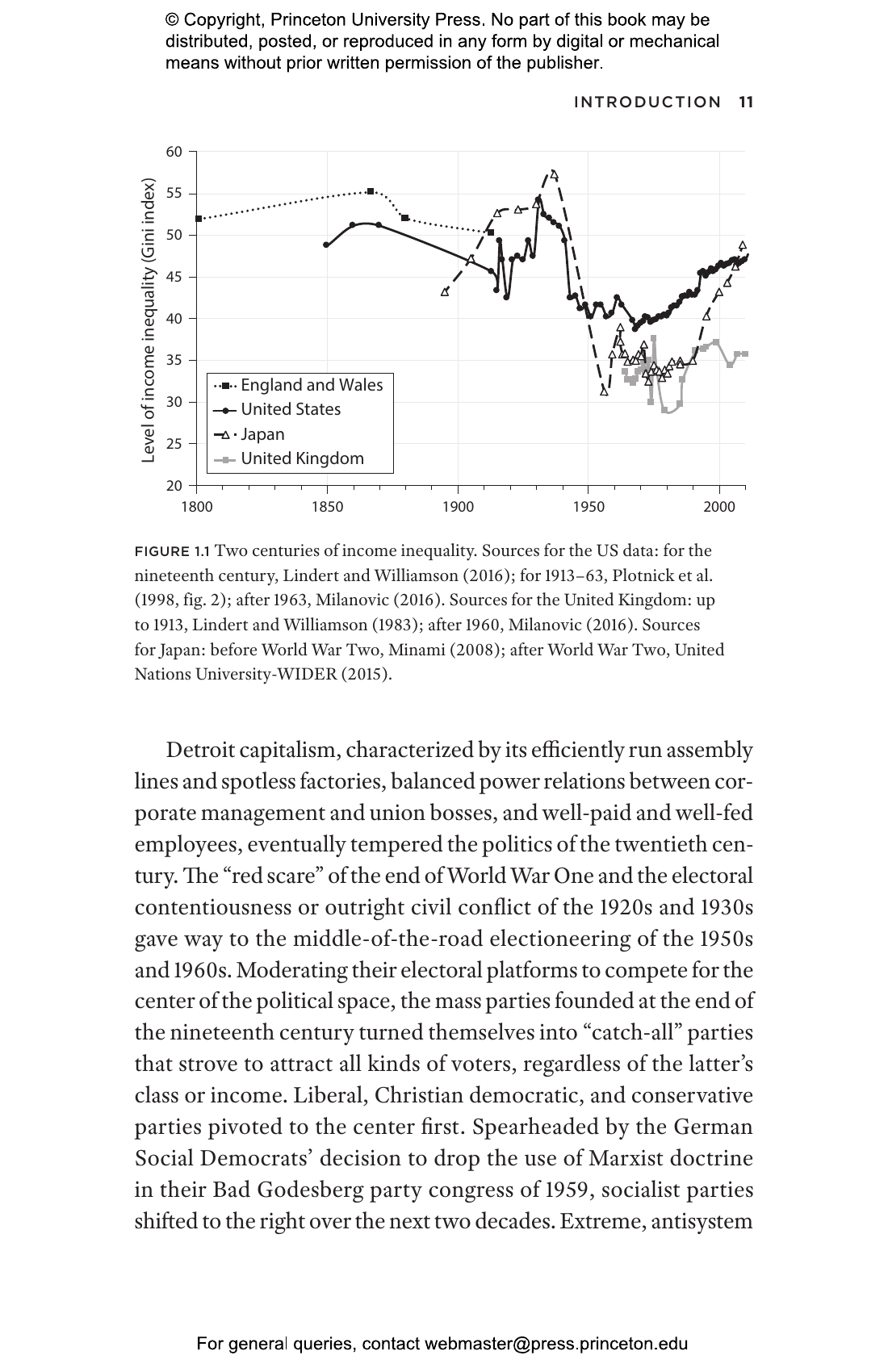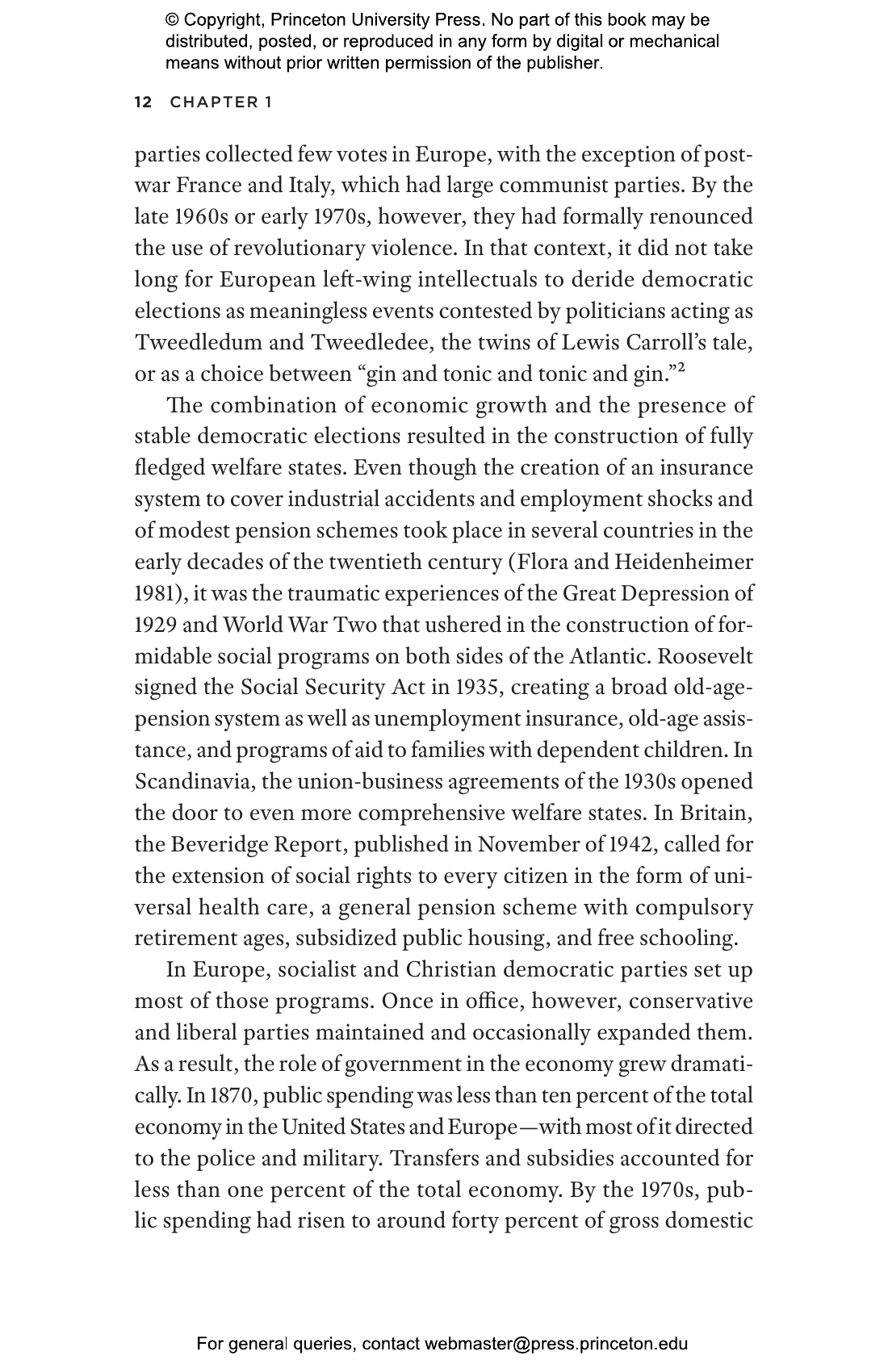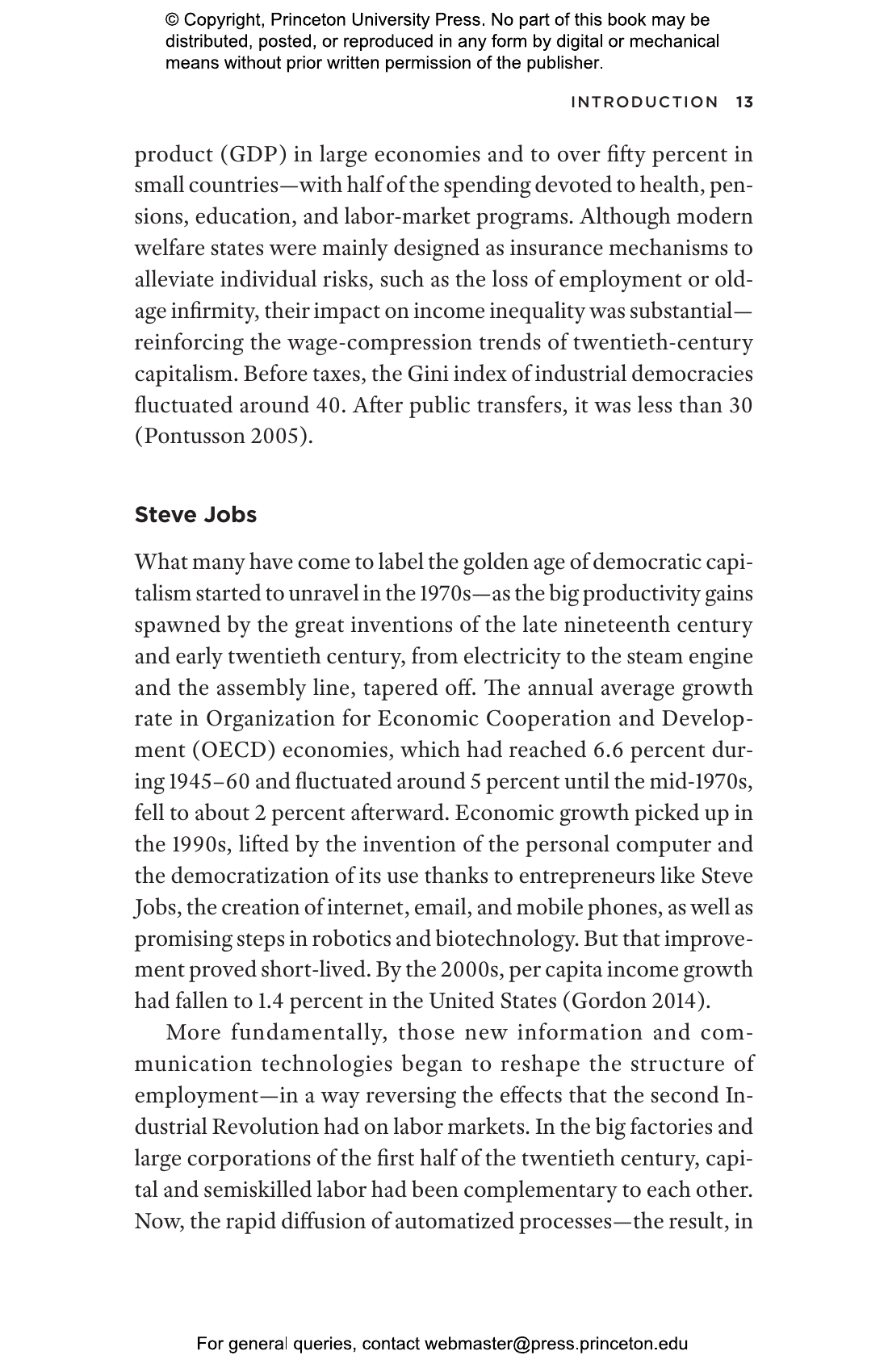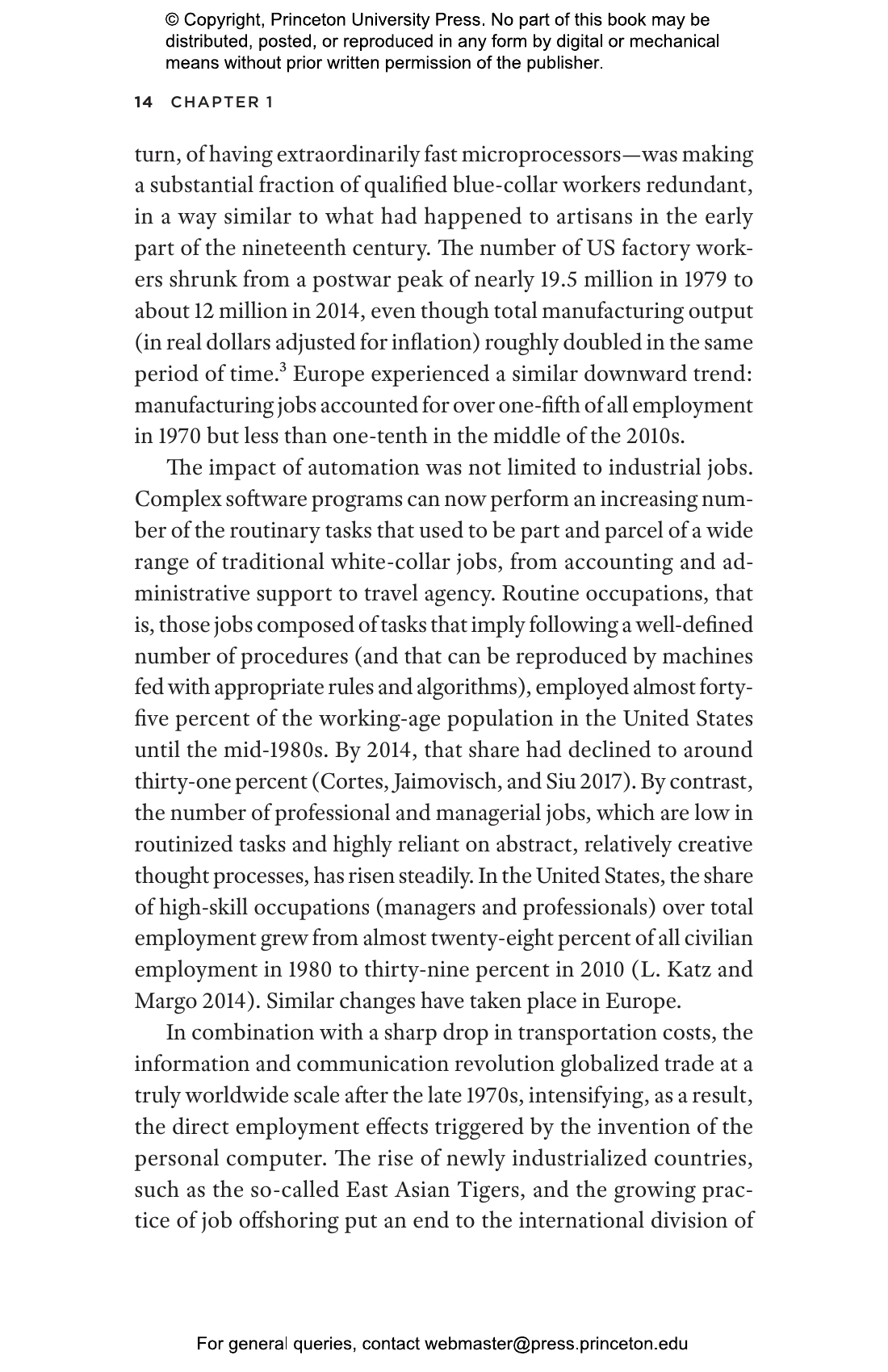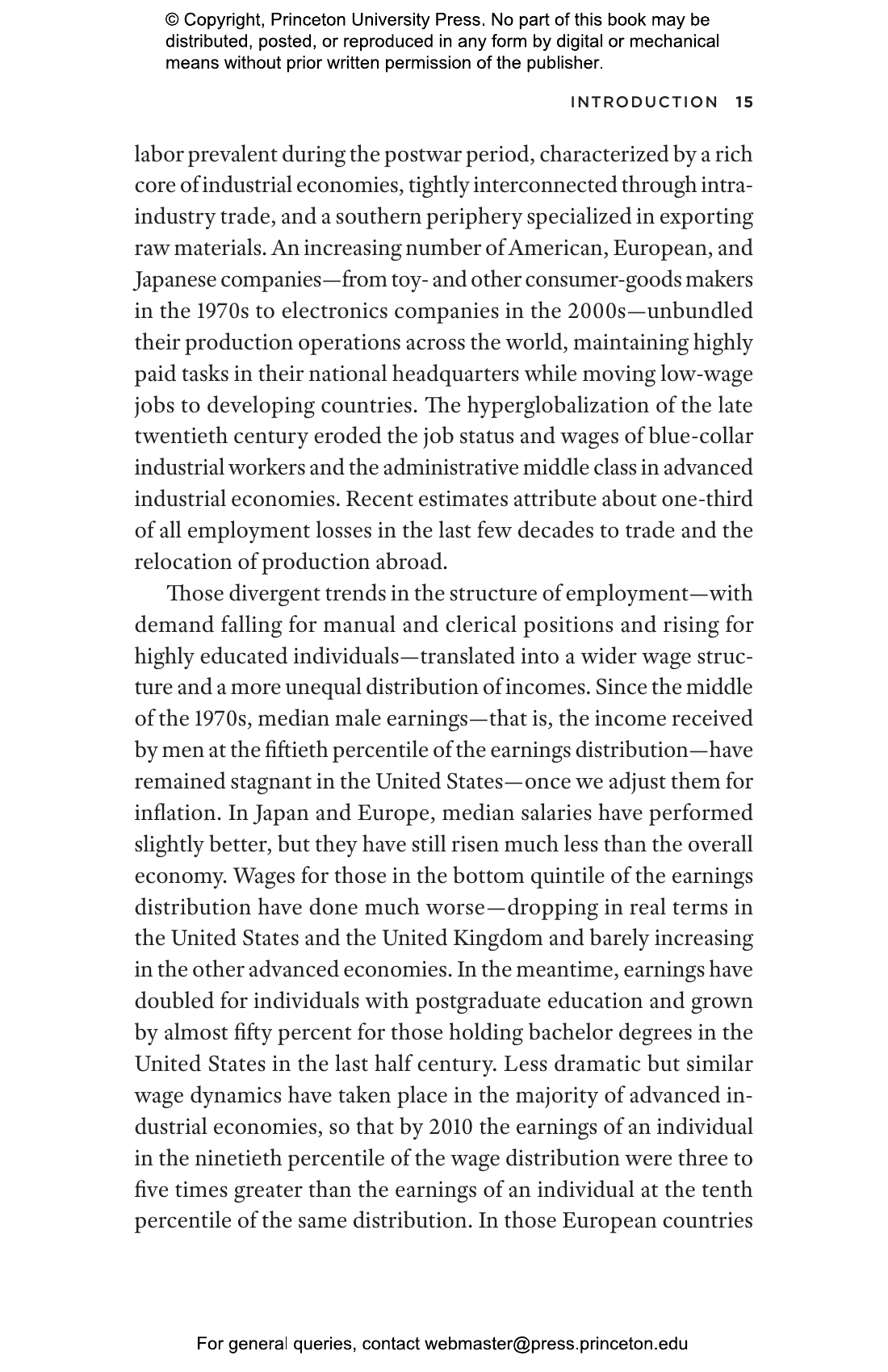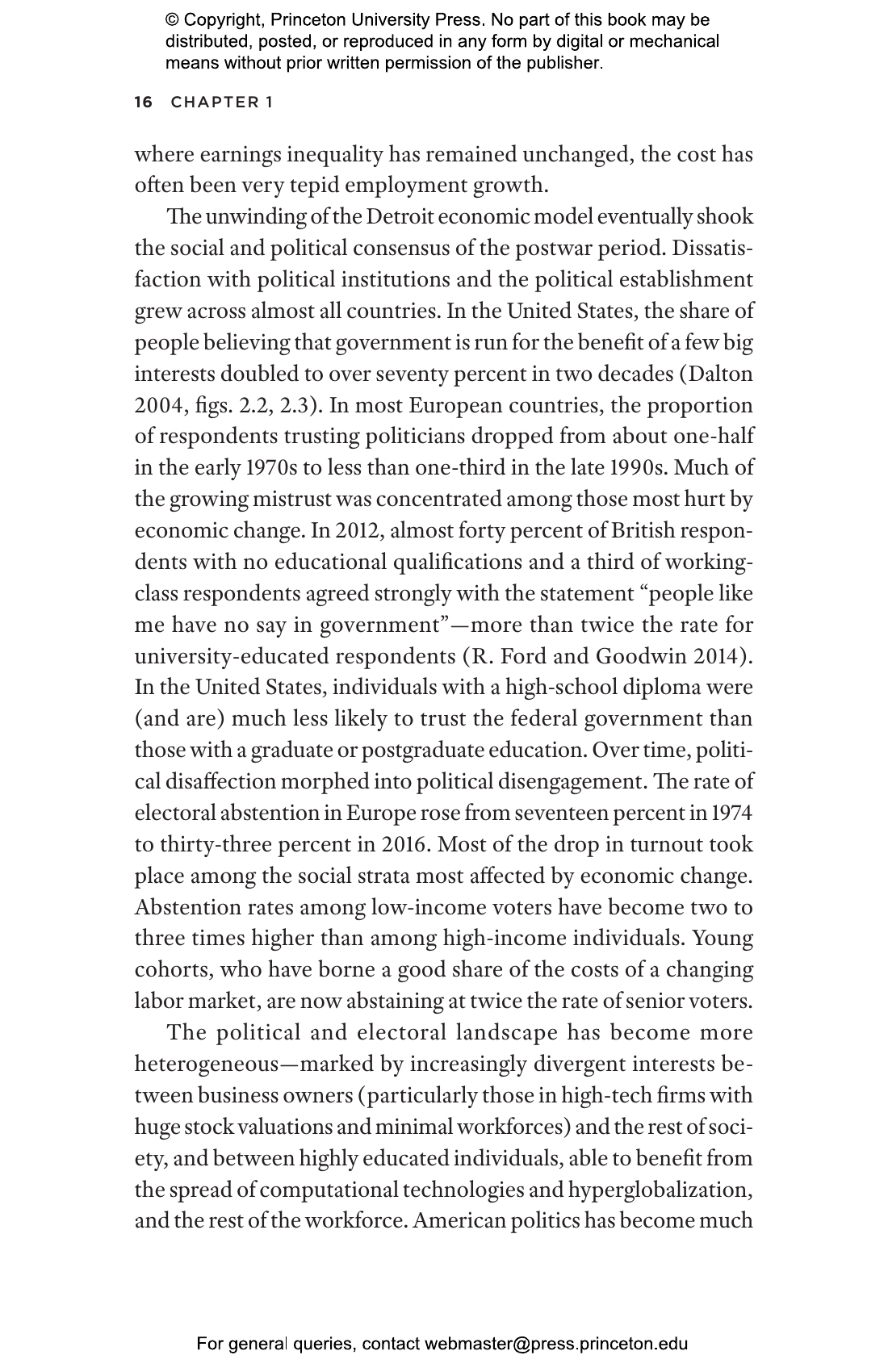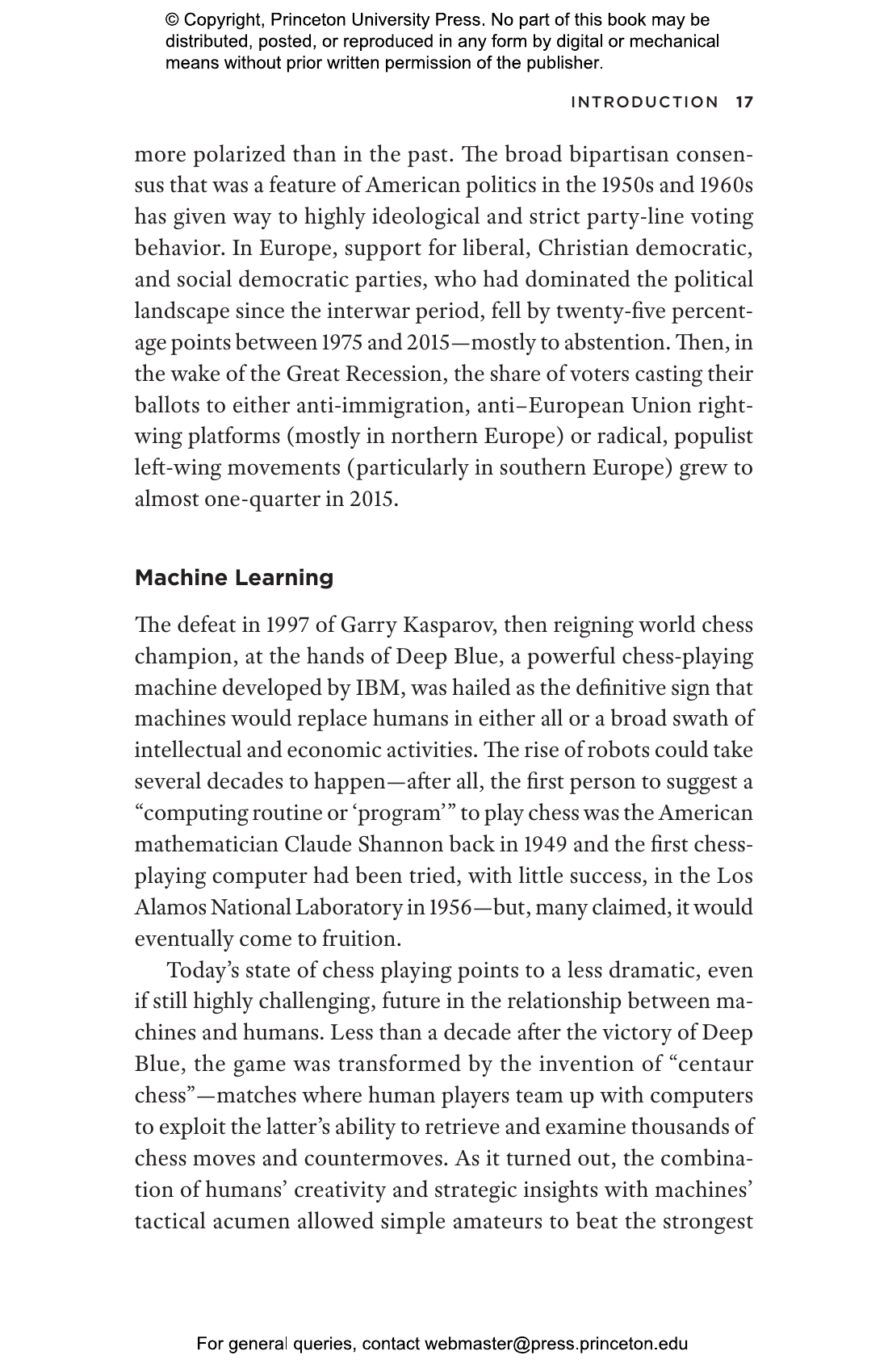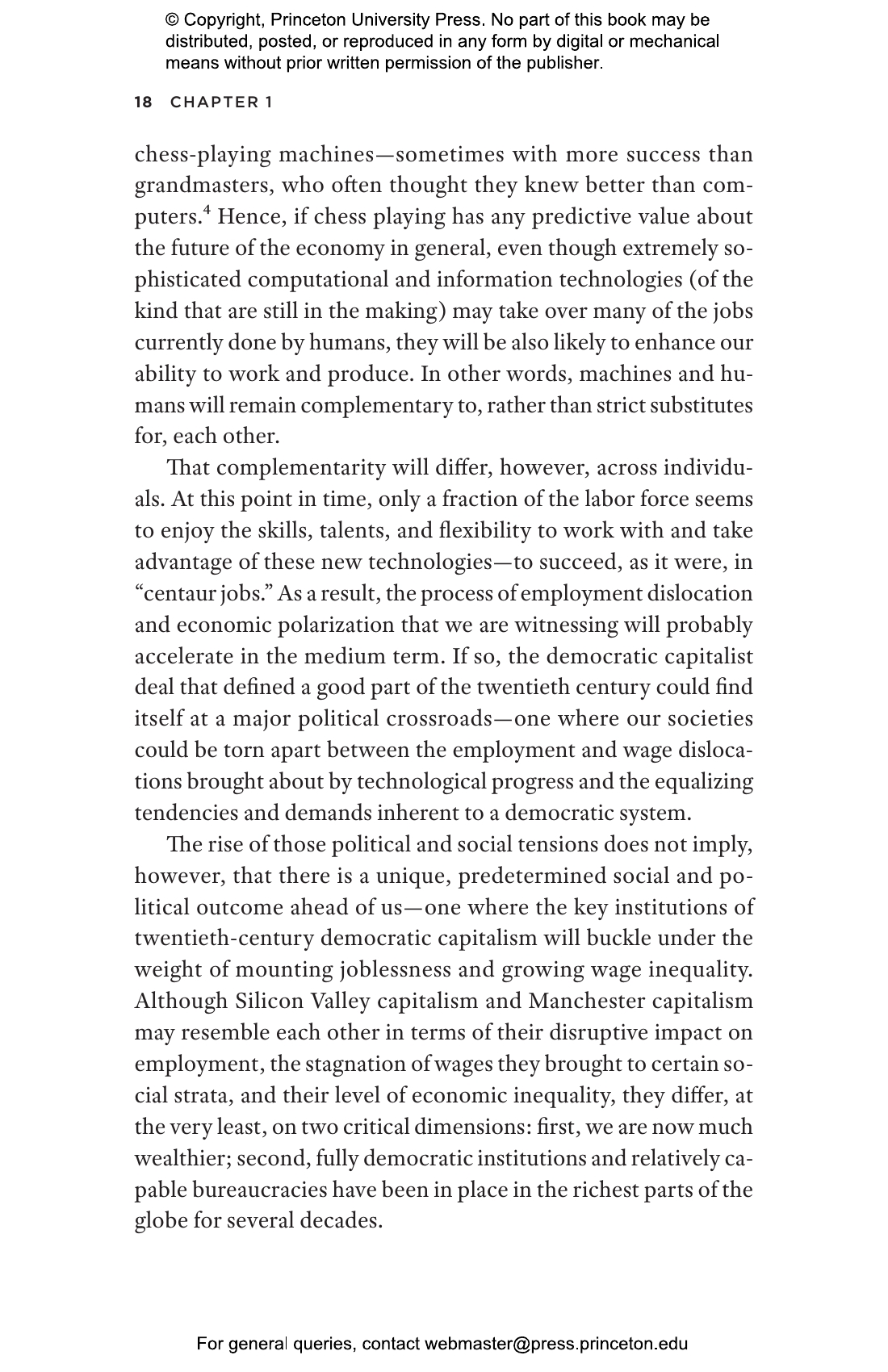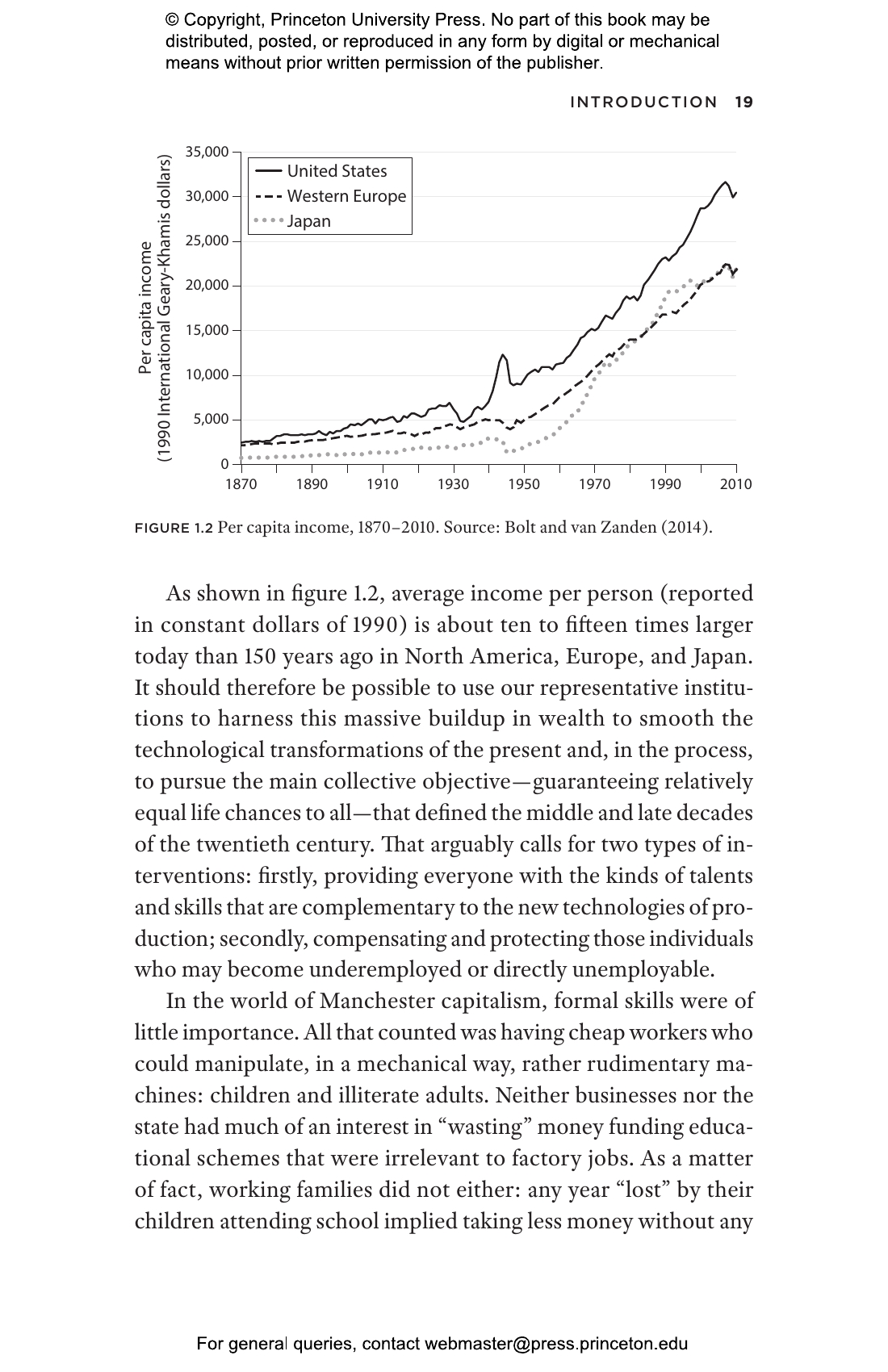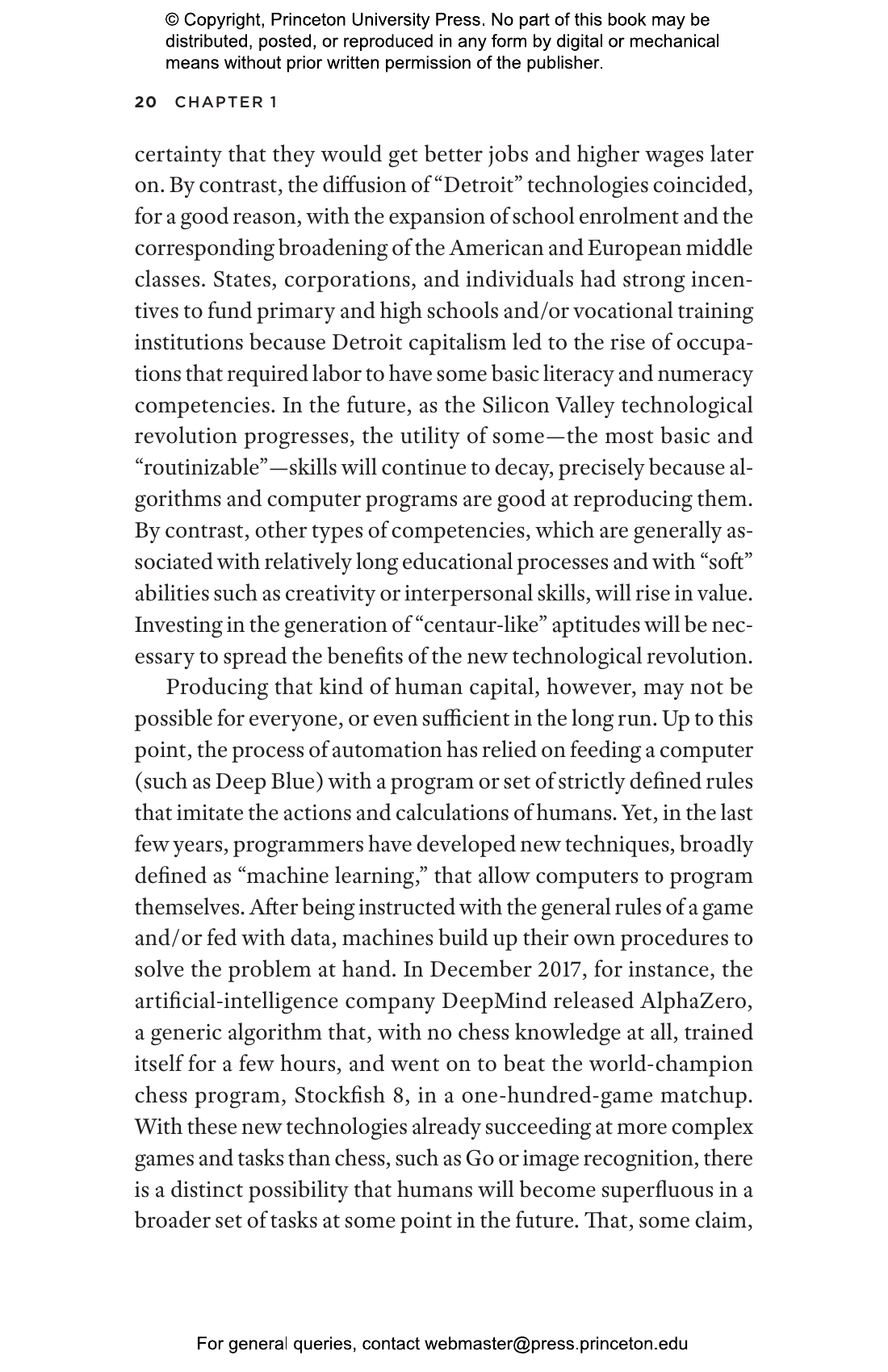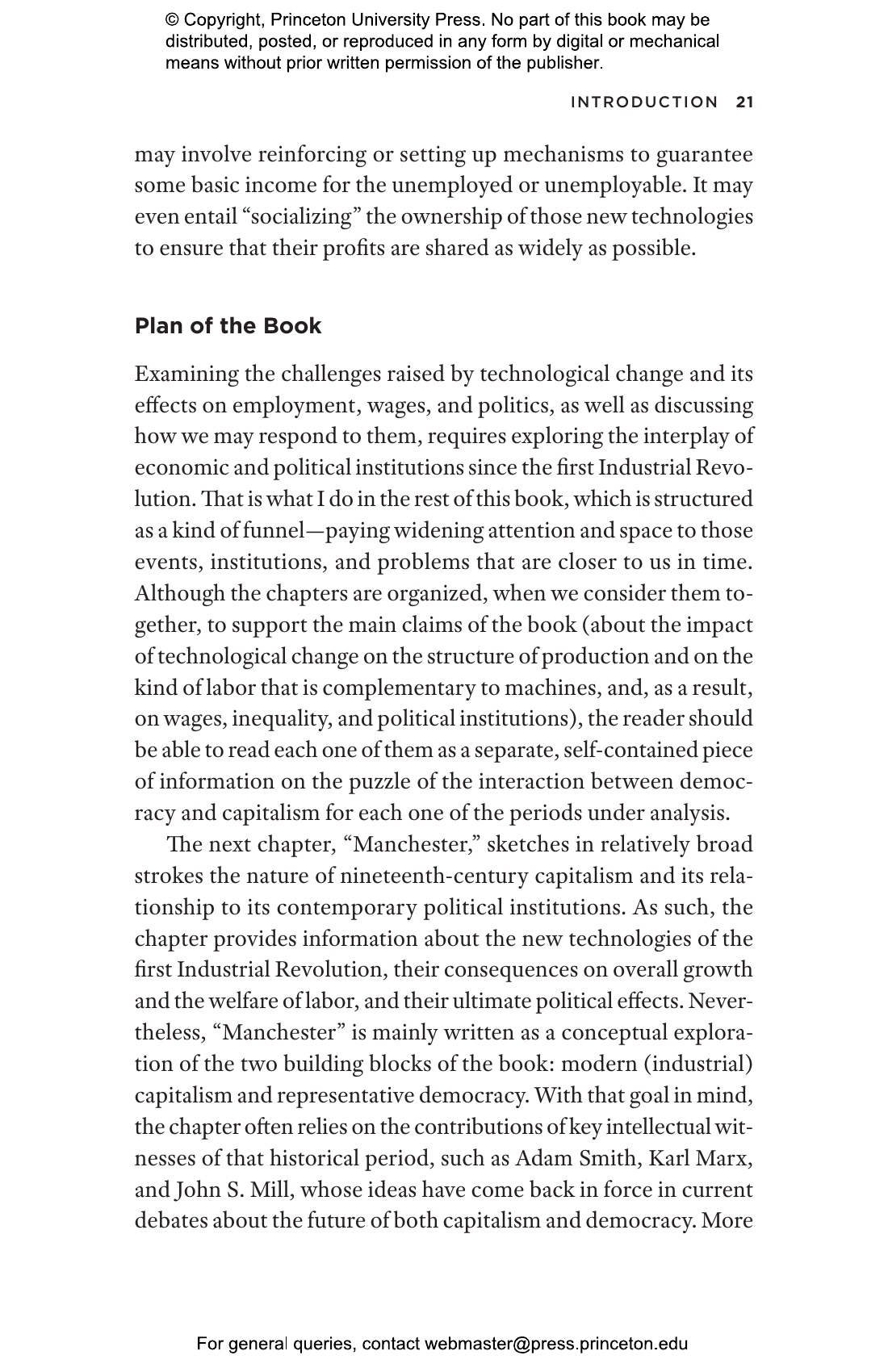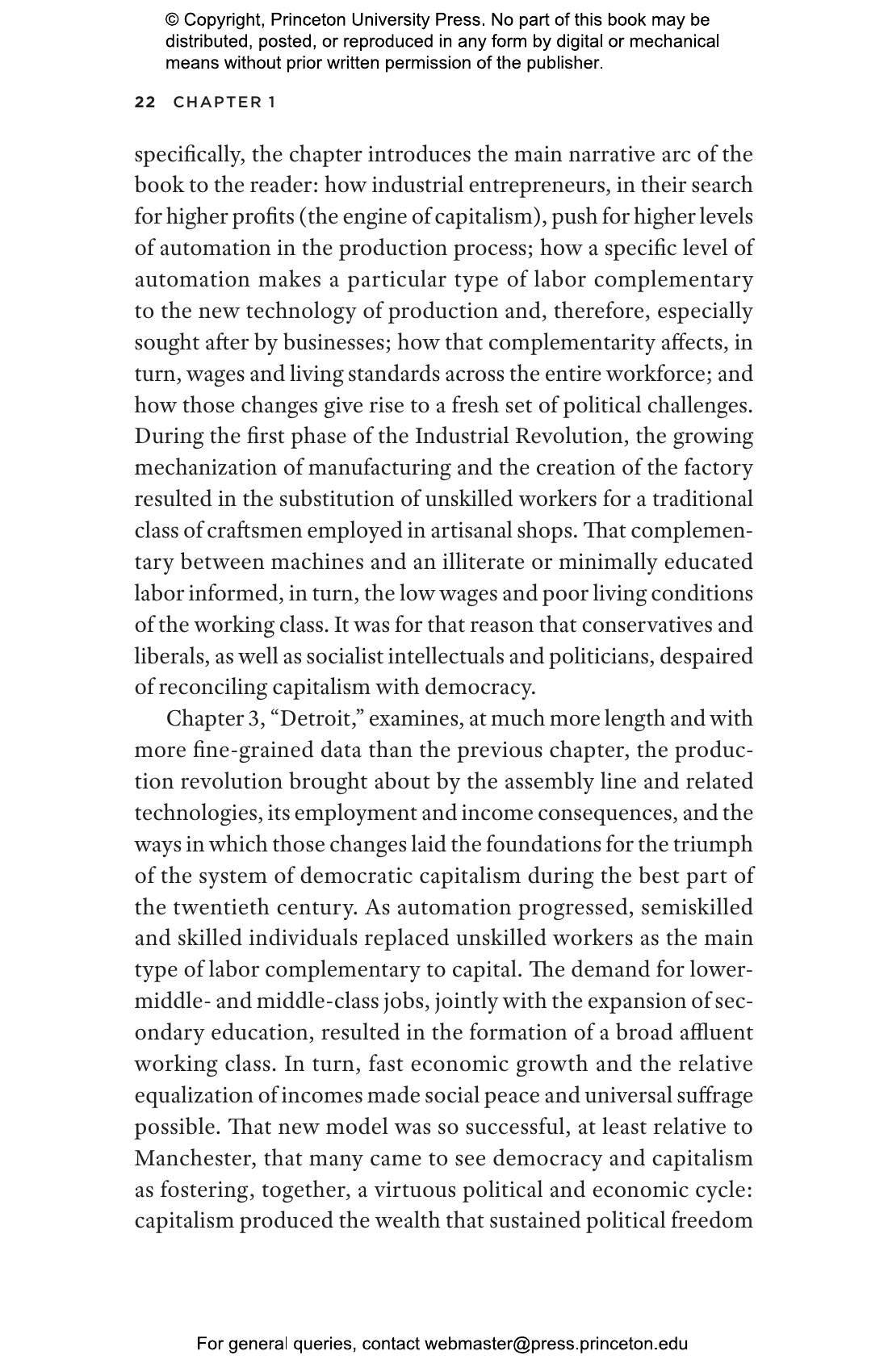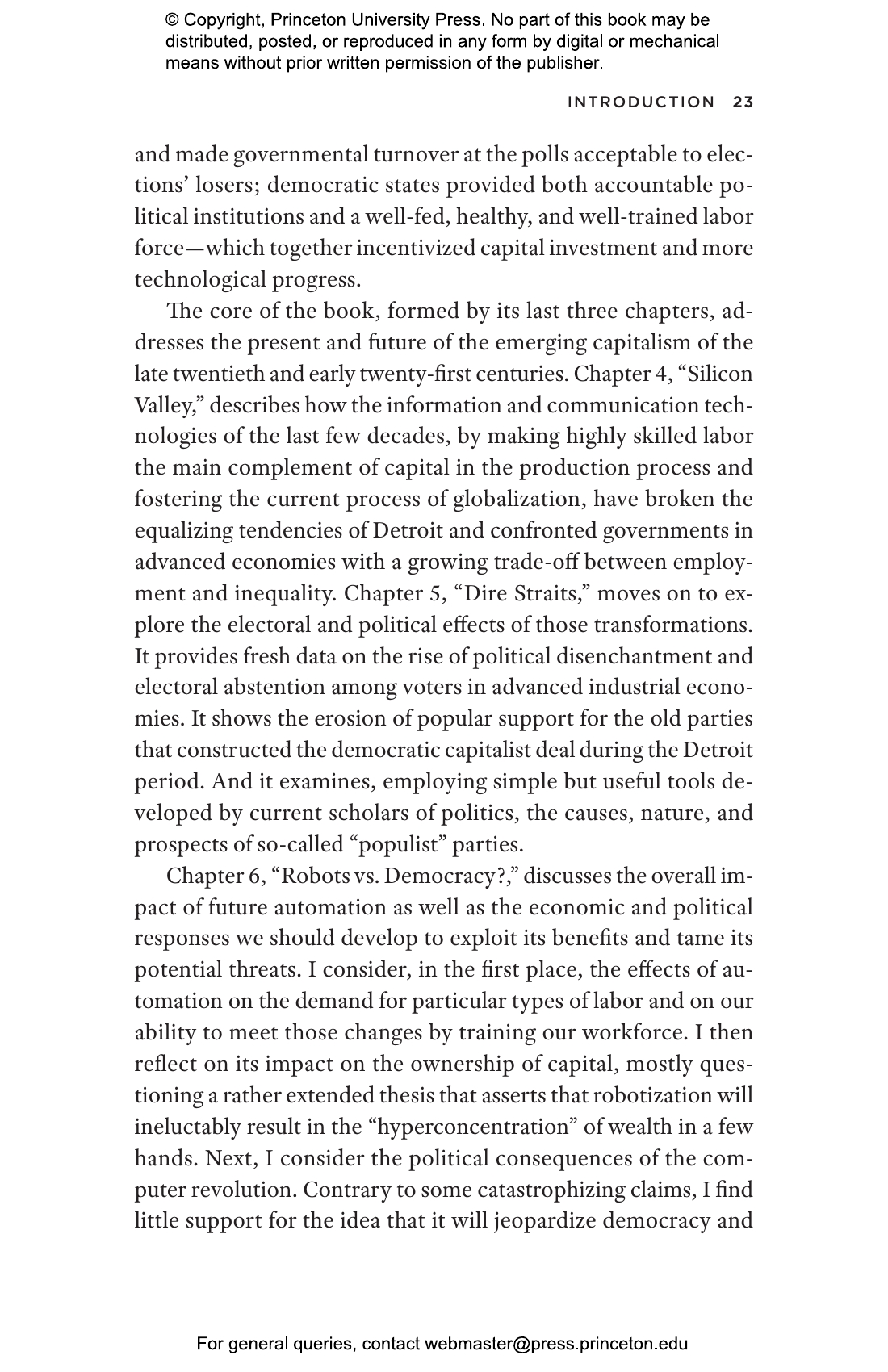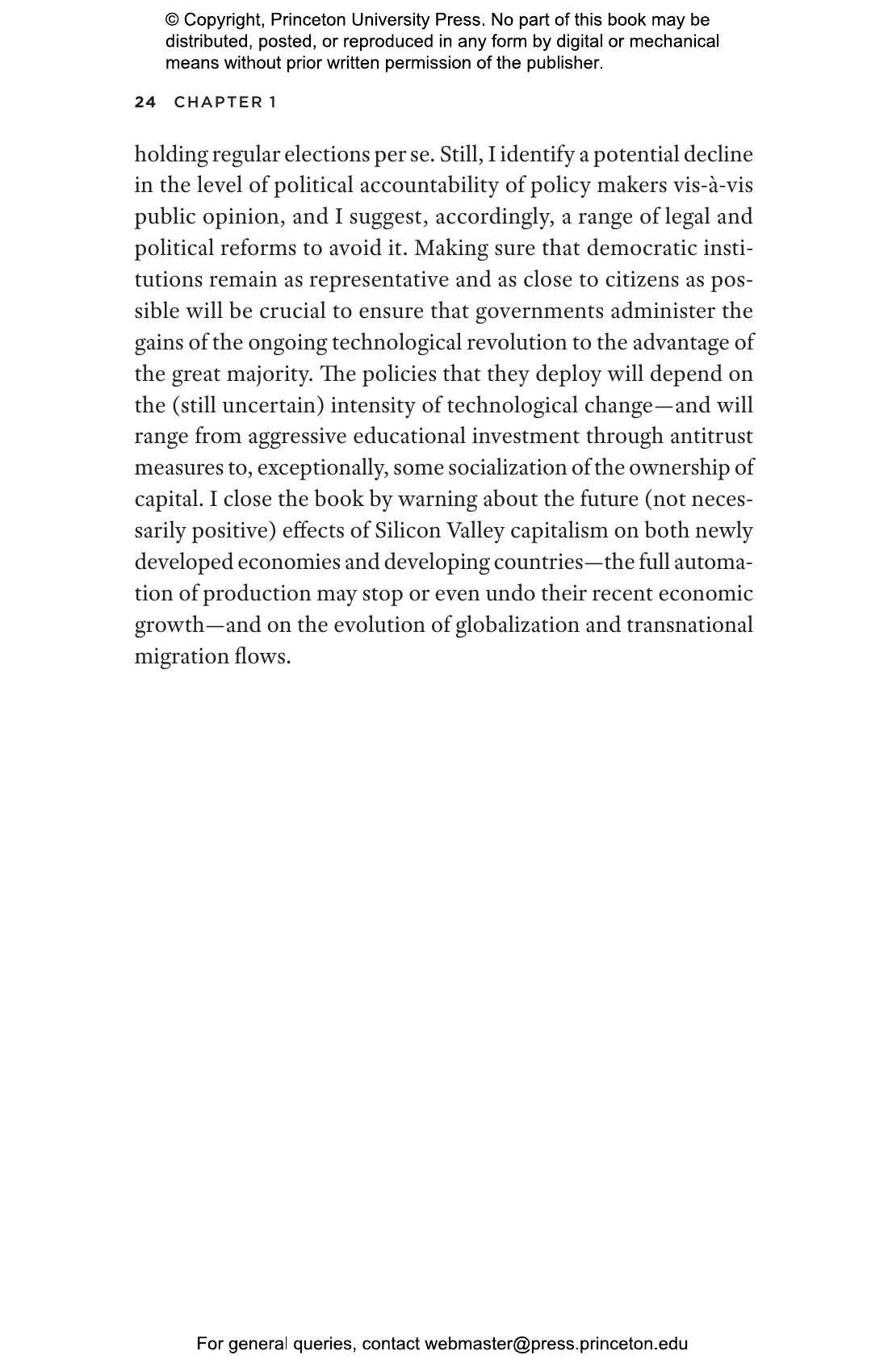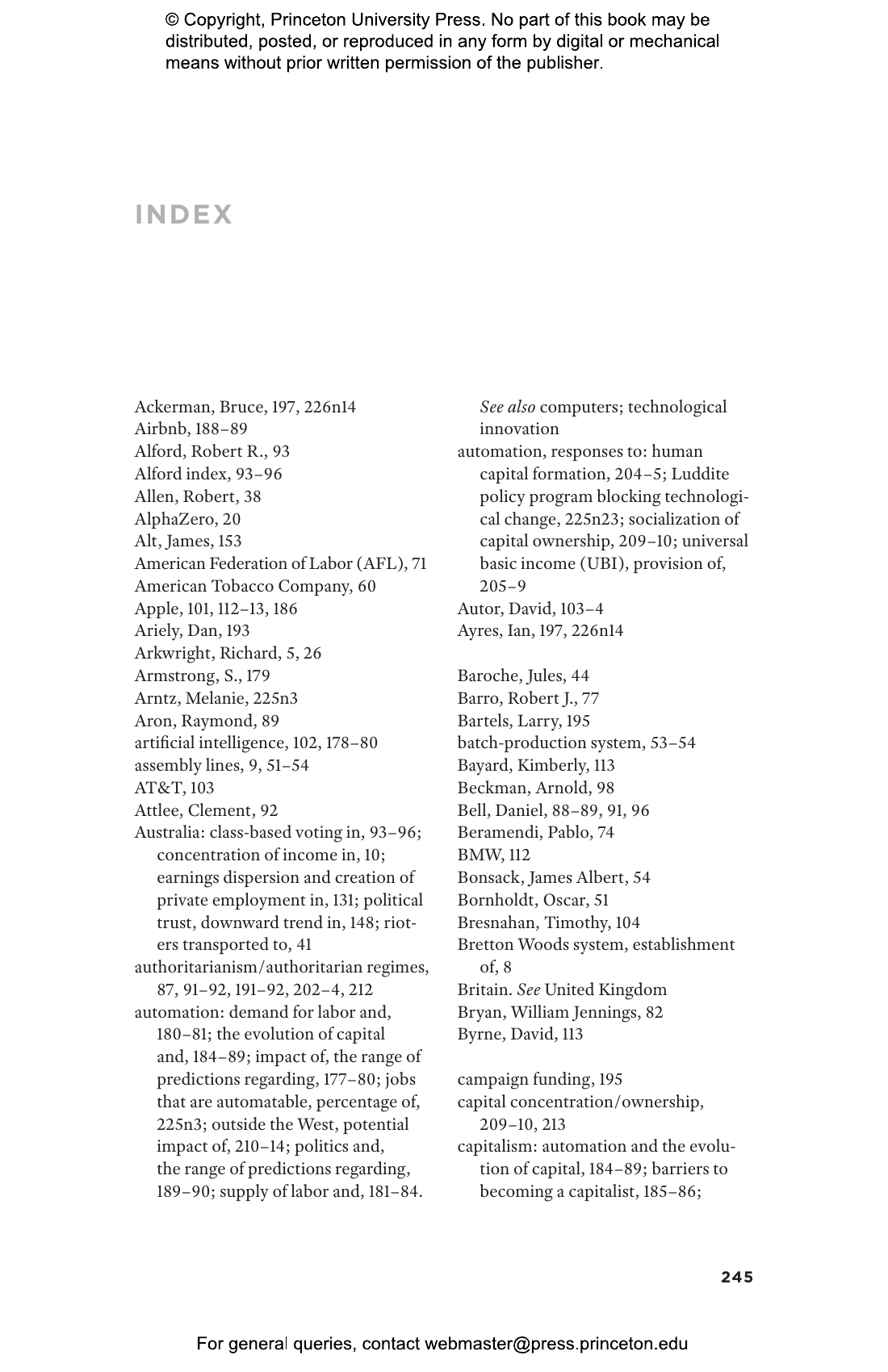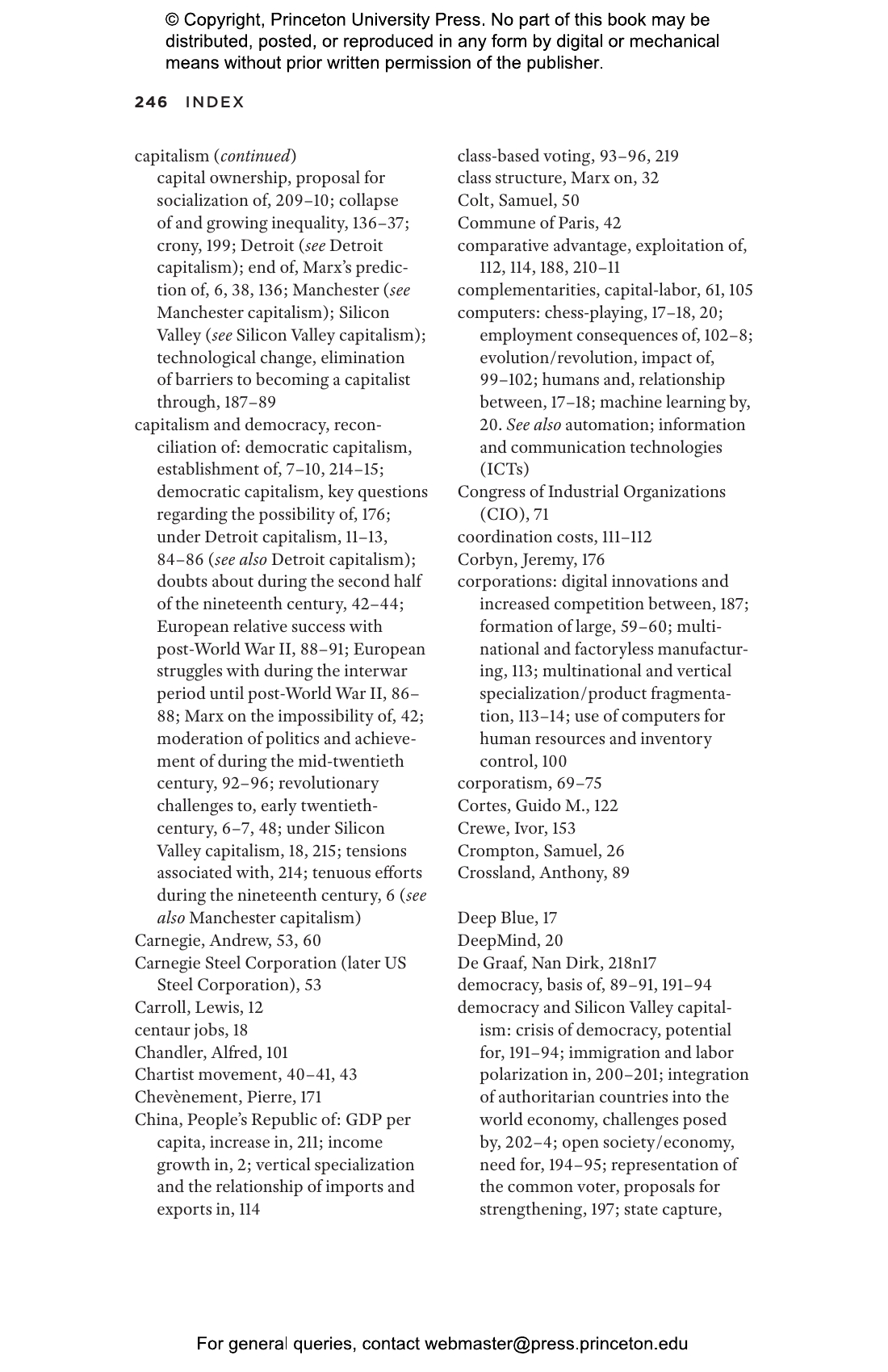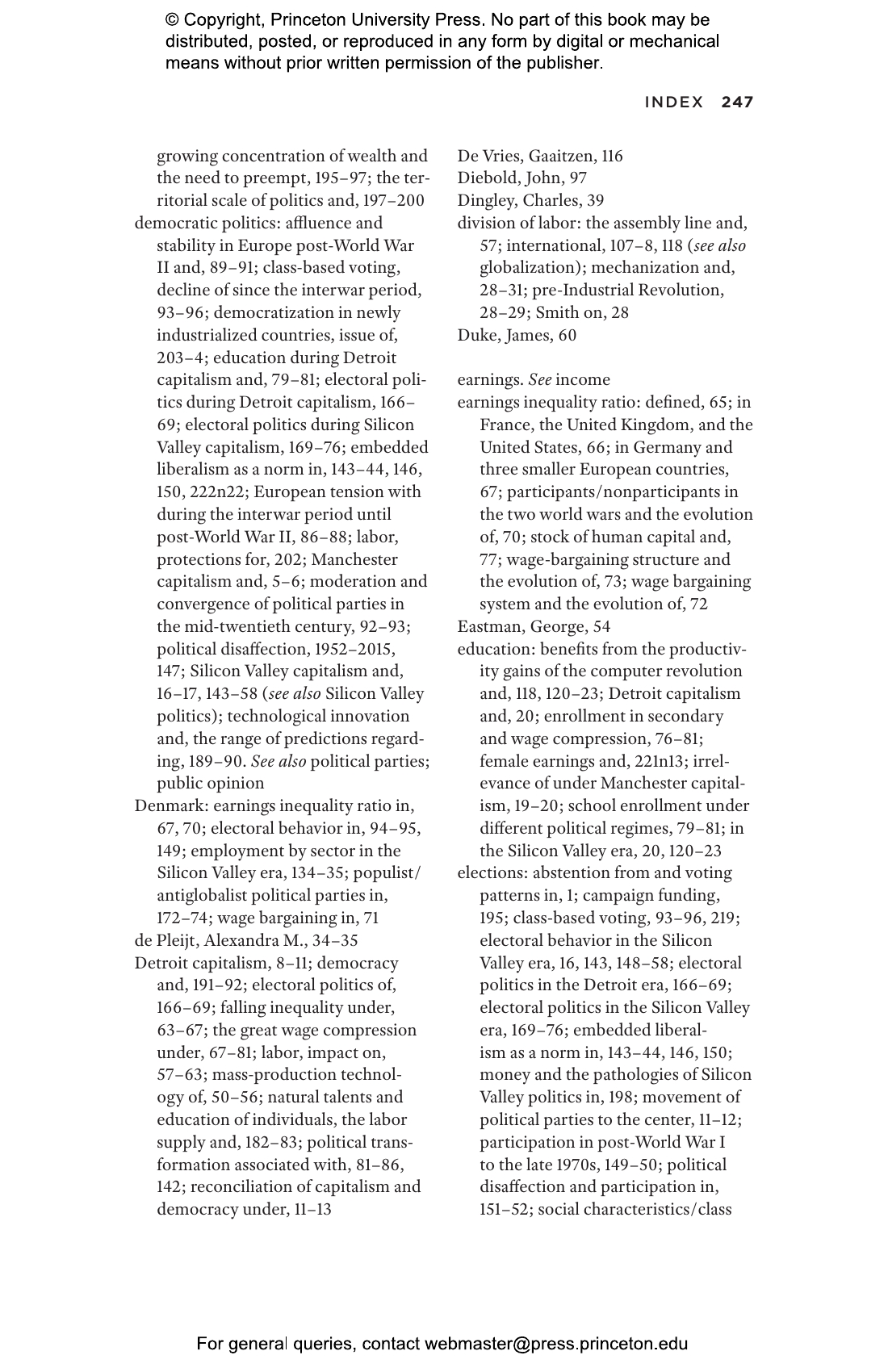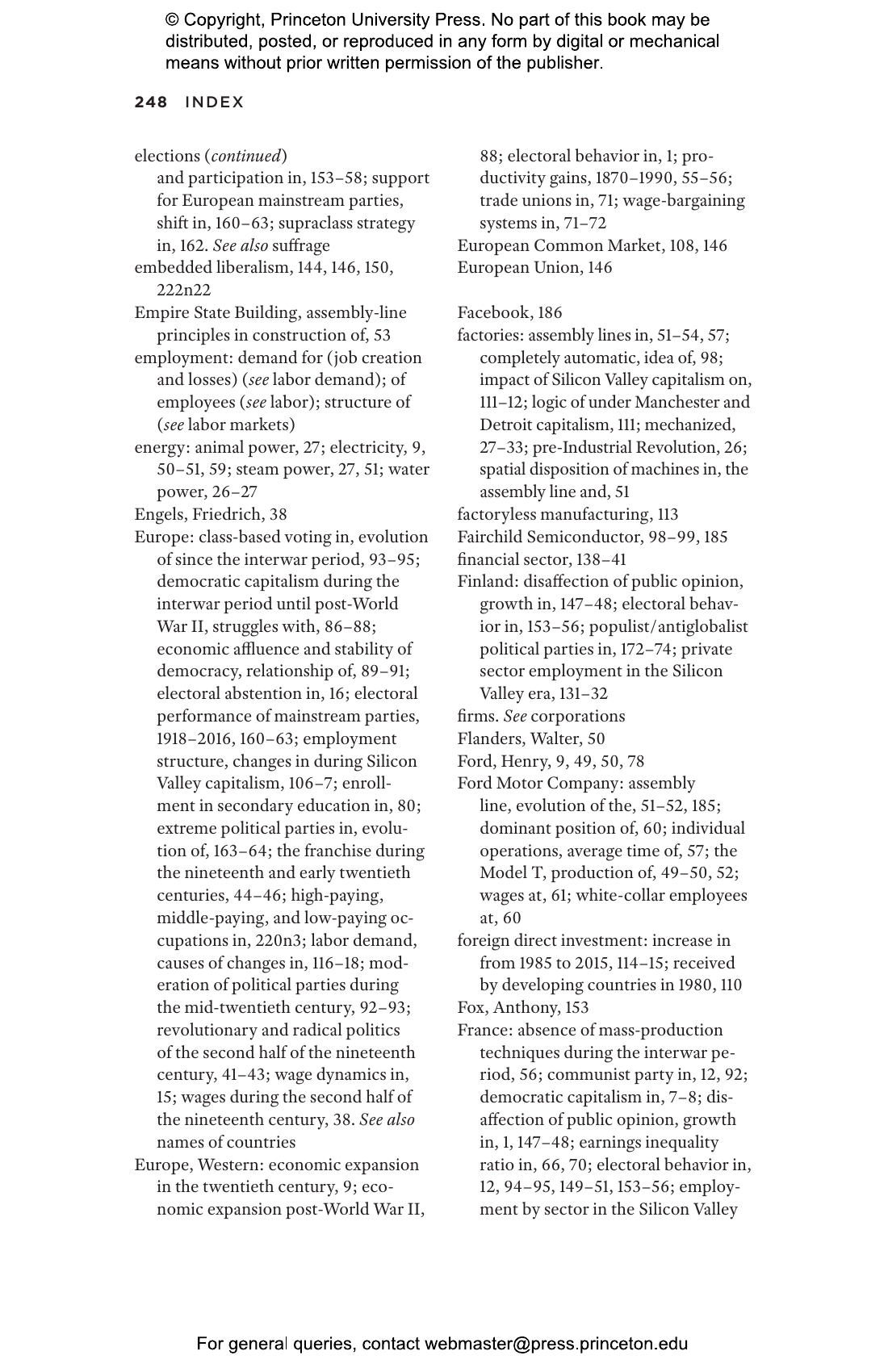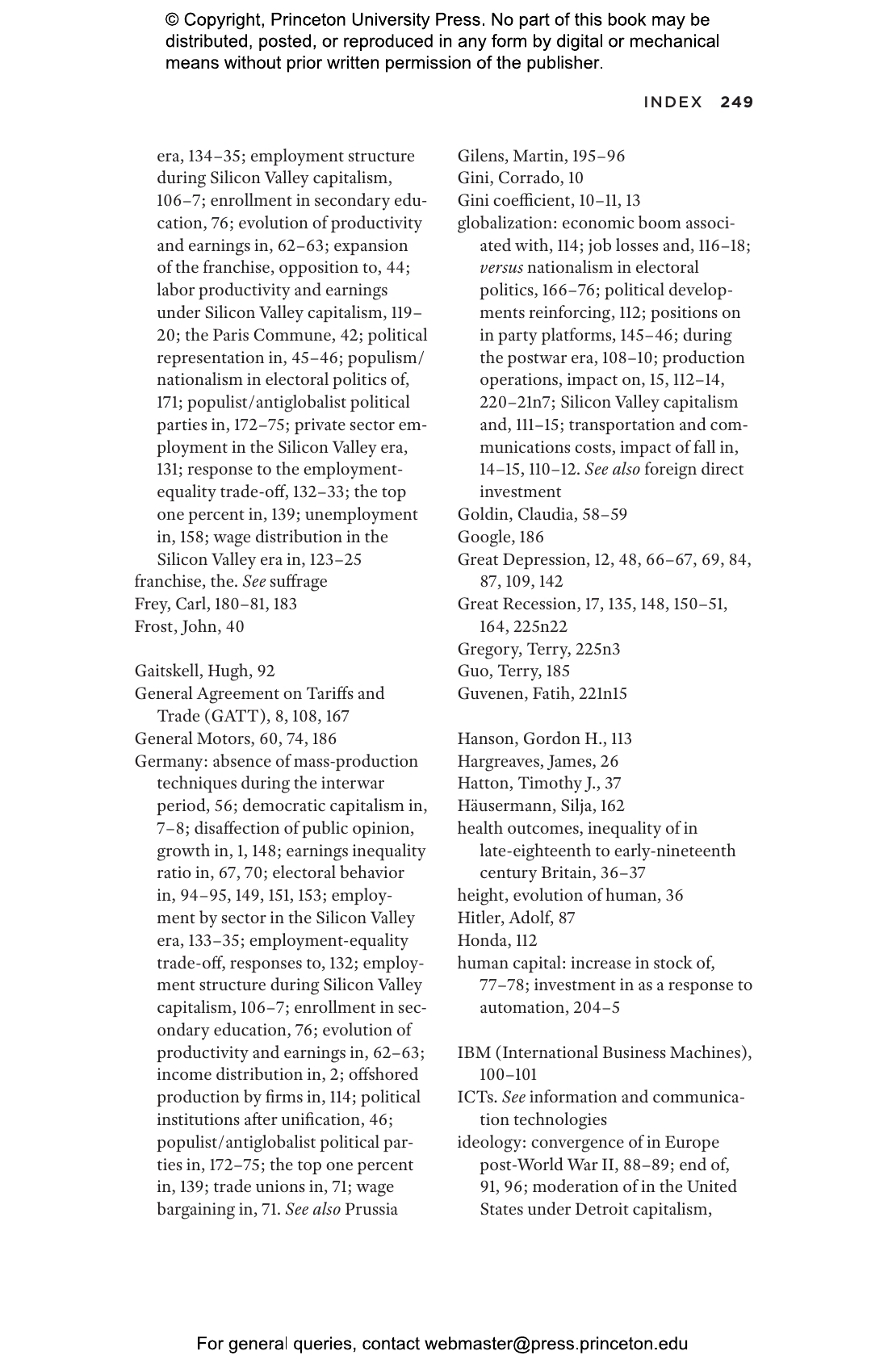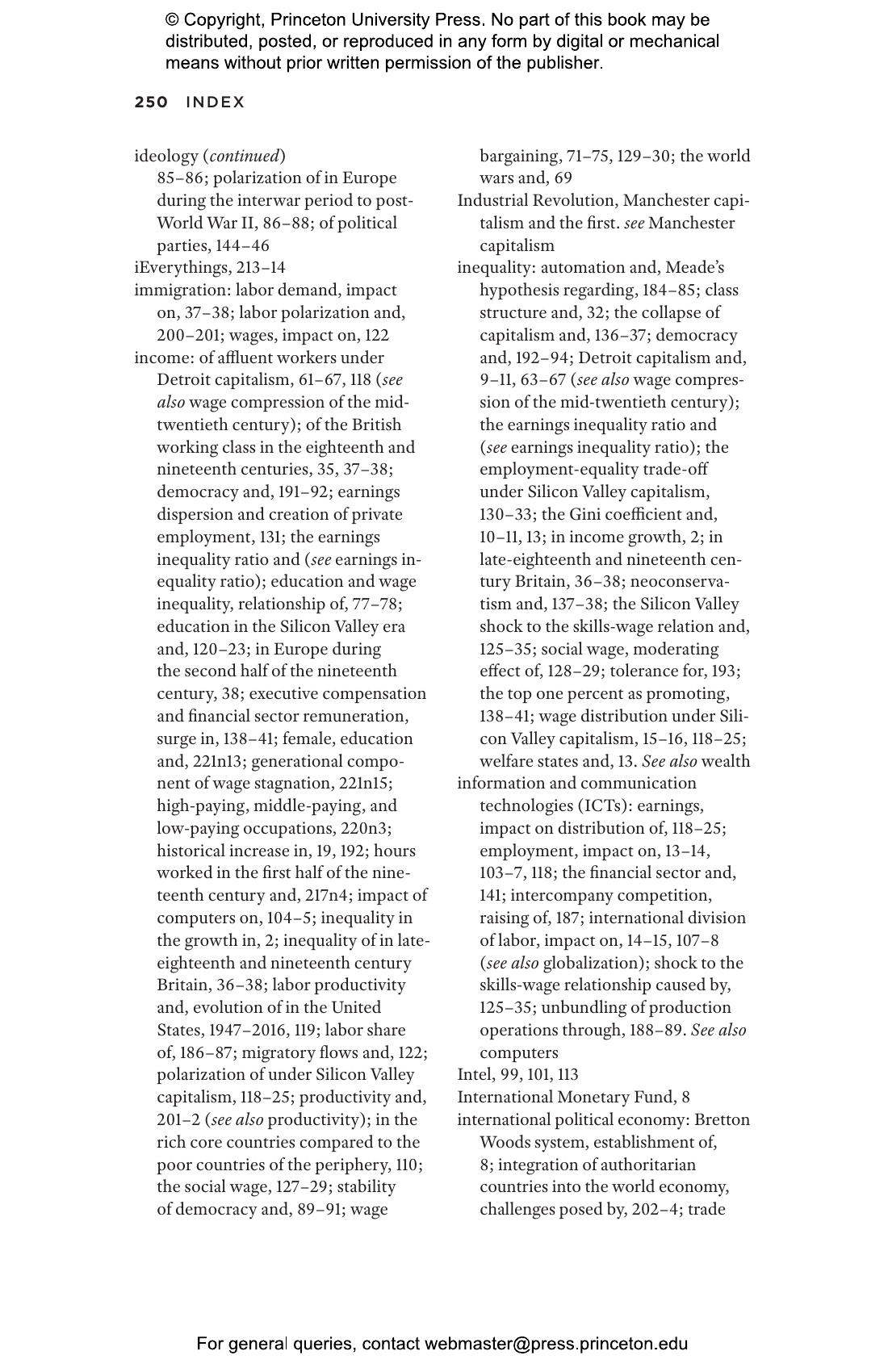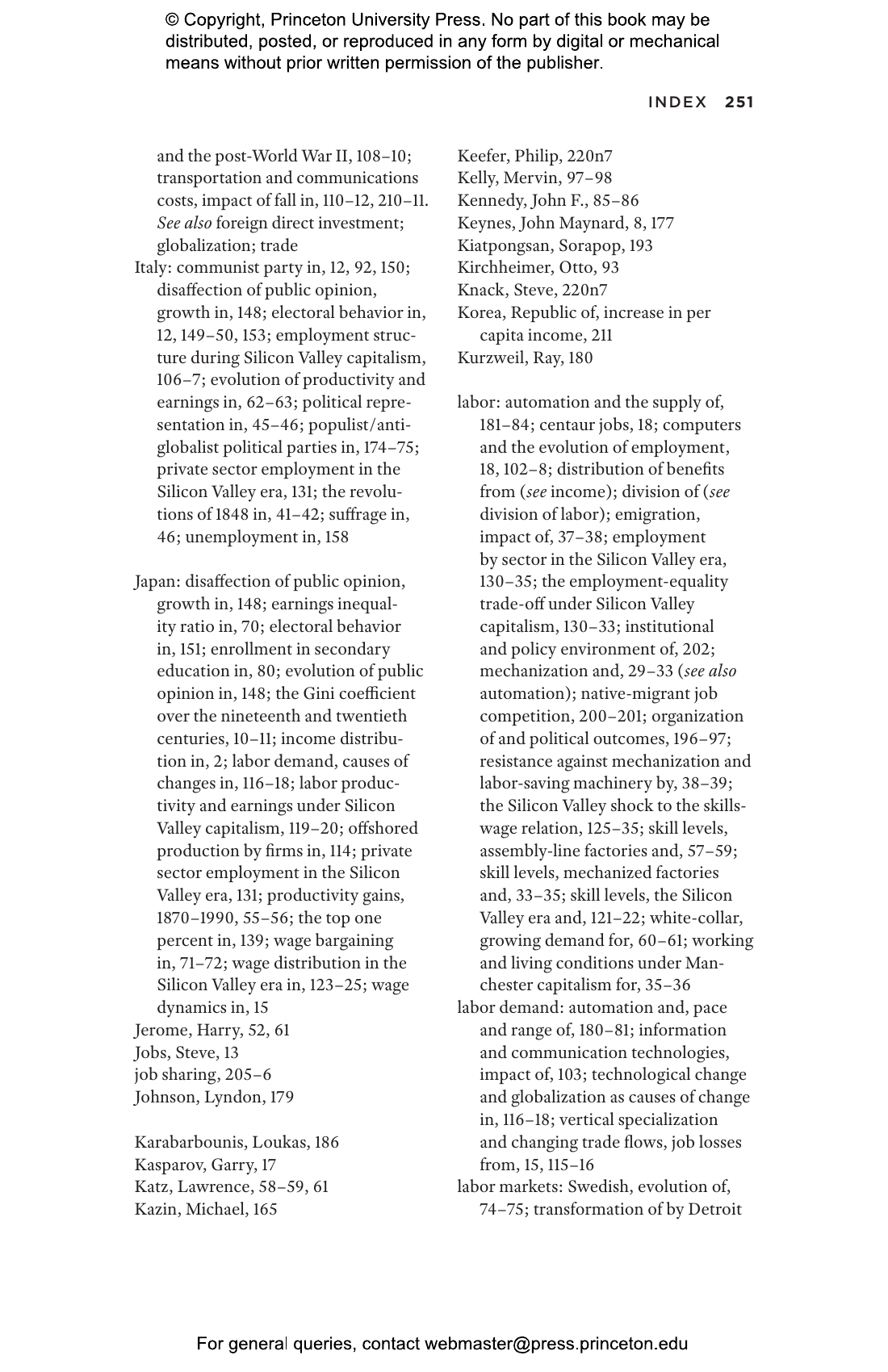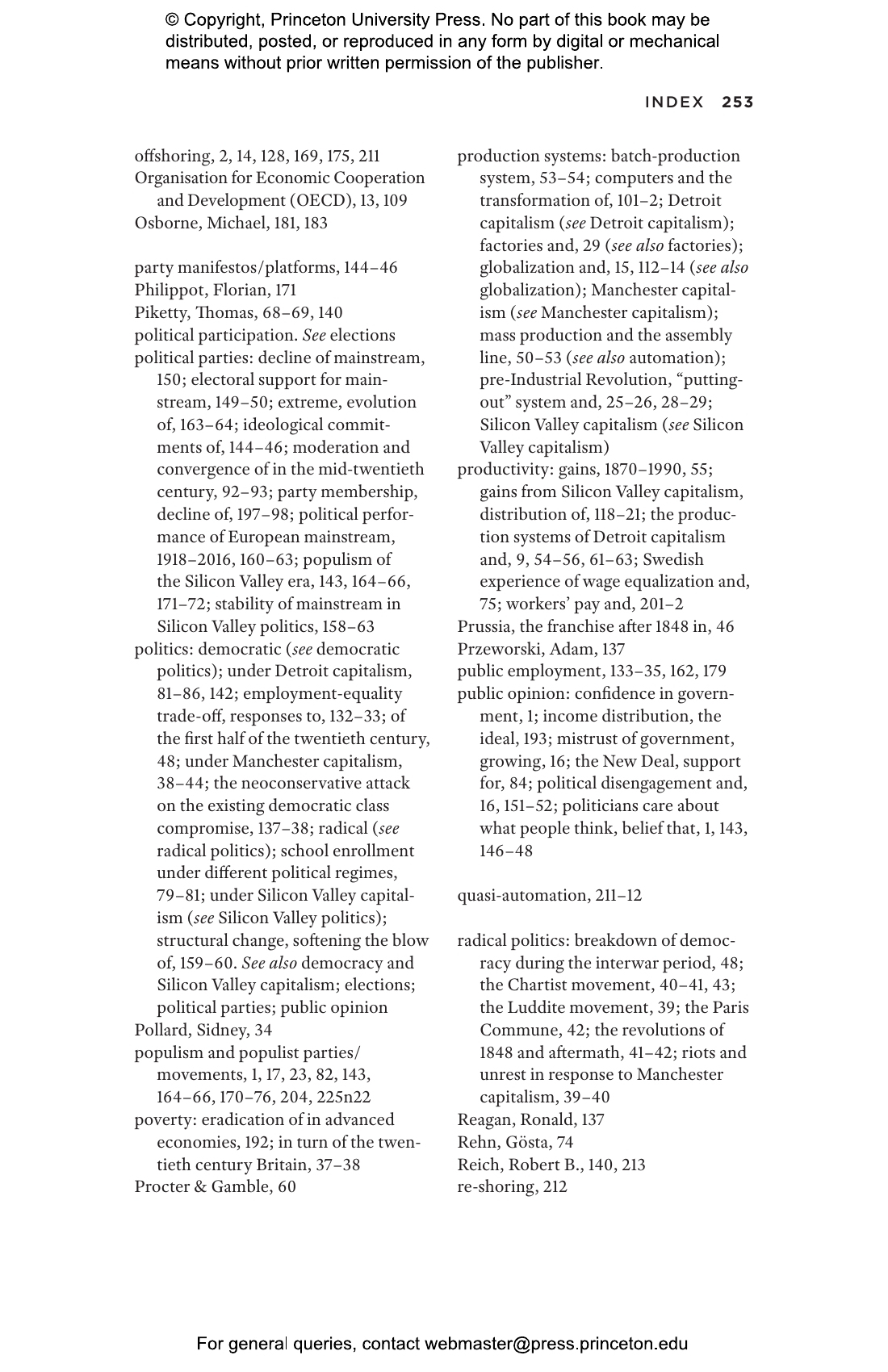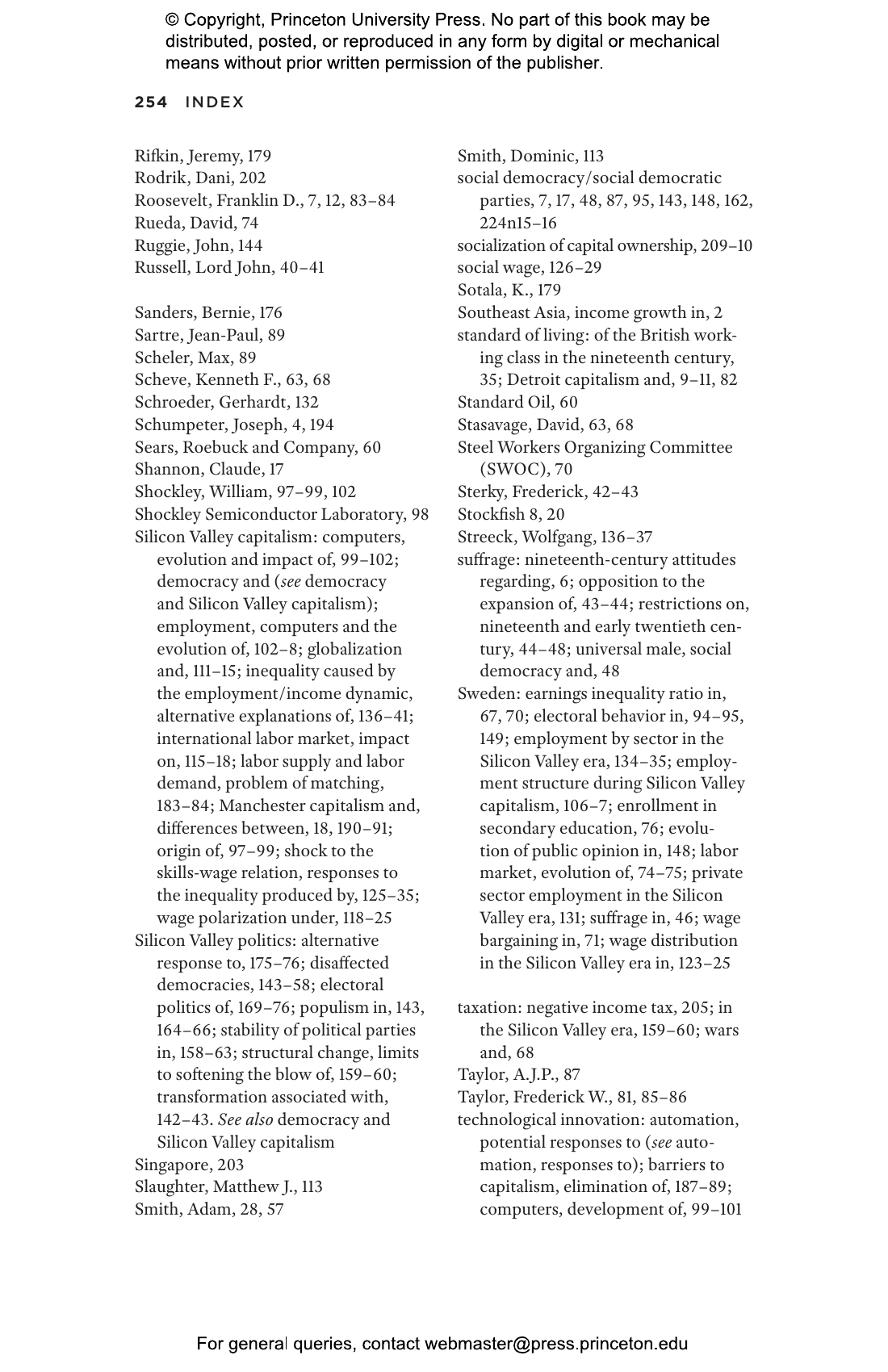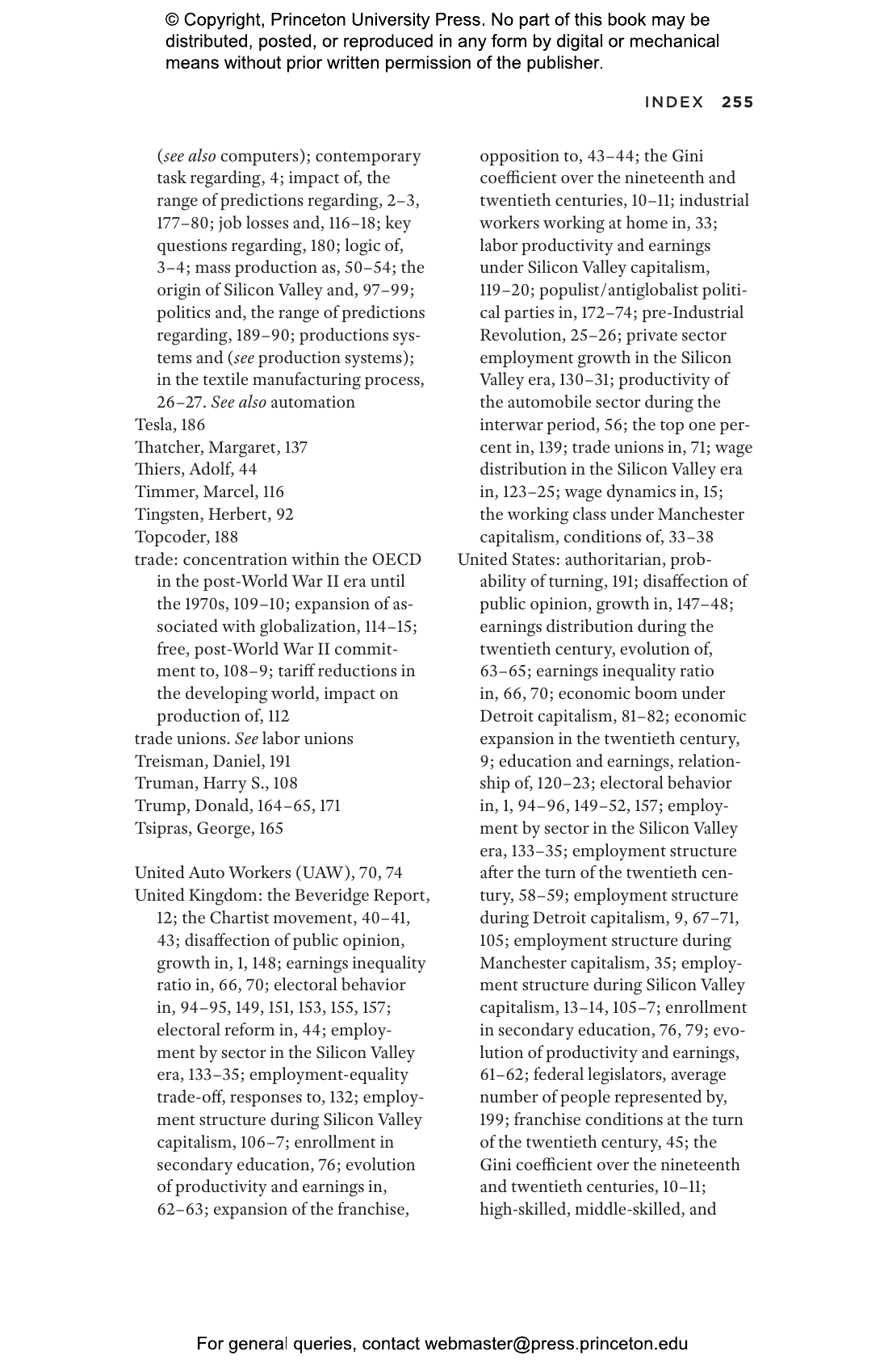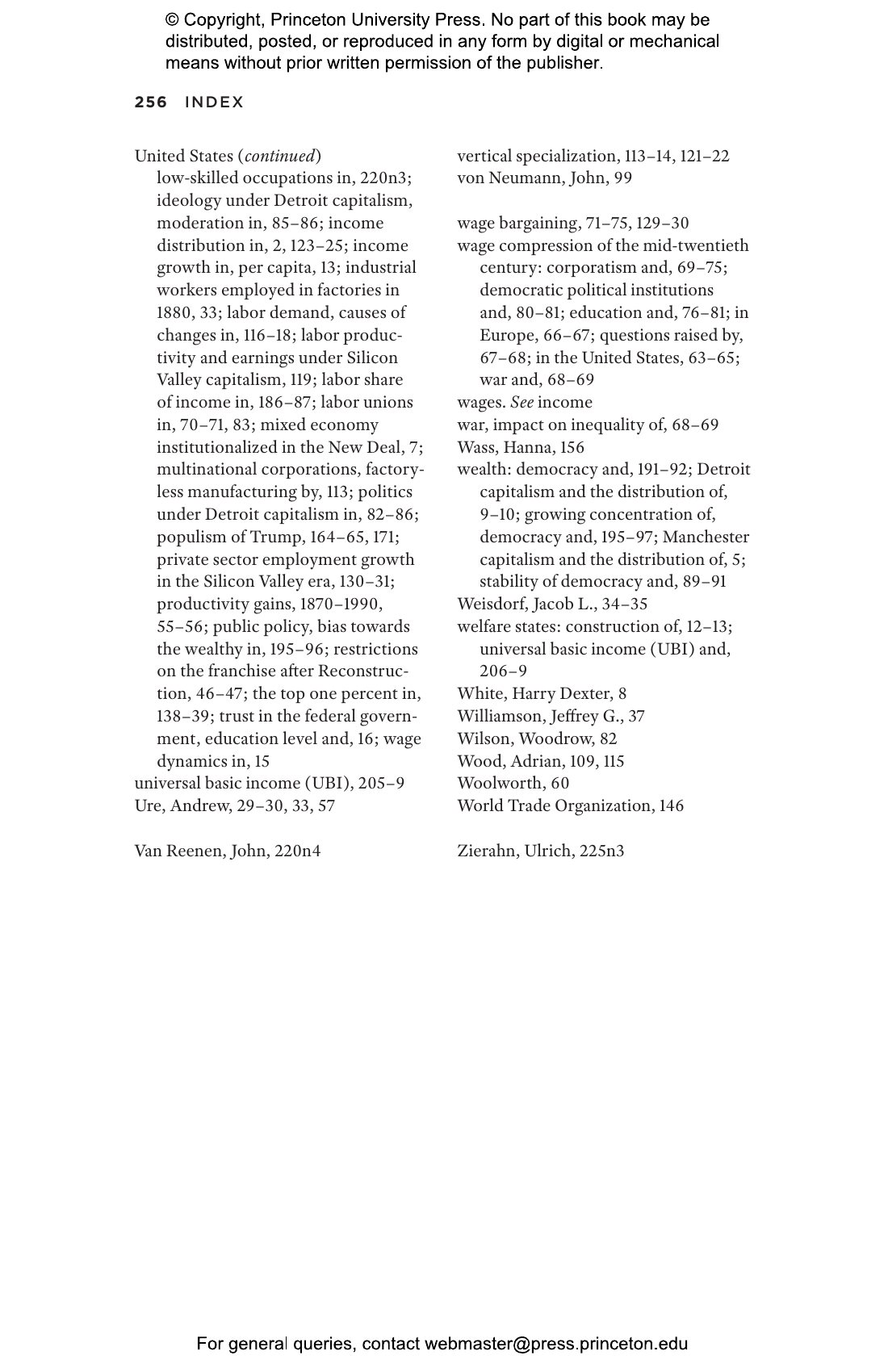The twentieth century witnessed the triumph of democratic capitalism in the industrialized West, with widespread popular support for both free markets and representative elections. Today, that political consensus appears to be breaking down, disrupted by polarization and income inequality, widespread dissatisfaction with democratic institutions, and insurgent populism. Tracing the history of democratic capitalism over the past two centuries, Carles Boix explains how we got here—and where we could be headed.
Boix looks at three defining stages of capitalism, each originating in a distinct time and place with its unique political challenges, structure of production and employment, and relationship with democracy. He begins in nineteenth-century Manchester, where factory owners employed unskilled laborers at low wages, generating rampant inequality and a restrictive electoral franchise. He then moves to Detroit in the early 1900s, where the invention of the modern assembly line shifted labor demand to skilled blue-collar workers. Boix shows how growing wages, declining inequality, and an expanding middle class enabled democratic capitalism to flourish. Today, however, the information revolution that began in Silicon Valley in the 1970s is benefitting the highly educated at the expense of the traditional working class, jobs are going offshore, and inequality has risen sharply, making many wonder whether democracy and capitalism are still compatible.
Essential reading for these uncertain times, Democratic Capitalism at the Crossroads proposes sensible policy solutions that can help harness the unruly forces of capitalism to preserve democracy and meet the challenges that lie ahead.
Carles Boix is the Robert Garrett Professor of Politics and Public Affairs at Princeton University and director of the Institutions and Political Economy Research Group at the University of Barcelona. His books include Political Order and Inequality and Democracy and Redistribution. He lives in Princeton and Barcelona. Twitter @boixserra
"[Carles Boix] helps us see change in a comparative and historical context."—Michael Cornfield, The Guardian
"Democratic Capitalism at the Crossroads . . . takes a political science perspective on . . . deep trends in technology . . . Coming from a different perspective, Boix provides new-to-me insights, and particularly about similarities between the successive technological revolutions."—Diane Coyle, Enlightened Economist
"The book initiates discussion on an important, underresearched and relevant subject. Lucidly written, it is well-informed and rich with tables and figures. Readers of political economy, social and economic history, management
and business studies would benefit from this book."—Sujay Ghosh, Democratization
"Democracy is dying. Inequality is out of control. Technical progress, which is supposed to make us better off, is tearing us apart. What to do? Start by remembering that we have been here before. In this indispensable book, Carles Boix takes us from nineteenth-century Manchester to present-day Silicon Valley to show us how the dance of democracy, inequality, and technology has played out on other stages, each with lessons for today."—Angus Deaton, author of The Great Escape: Health, Wealth, and the Origins of Inequality
"Carles Boix puts our current predicament with technology's unequalizing effects in a historical context. His account places technology in the driver's seat, yet resolutely avoids technological determinism. As he reminds us, the consequences of technological transformations depend on our choices and the response of our political institutions. A splendid, richly textured, and hopeful book, it fills a gaping void at a time when liberal democracy seems to be waning."—Dani Rodrik, author of Straight Talk on Trade: Ideas for a Sane World Economy
"Carles Boix offers a compelling and meticulously documented account of the ways that capitalism and democracy have and have not fit together over the past two centuries. He shows us how technology, economics, and politics intersect, drawing on his extensive knowledge of other advanced industrial economies to highlight how political and economic choices can drive societies along very different paths. A concise and timely tour de force!"—Anne-Marie Slaughter, CEO, New America
